
|
TORAH PORTIONS
bsyw
VAY-YEYSHEV (And Dwelt)
Genesis 37:1-40:23
There are 50 Aleph-Tavs in this week's Torah portion
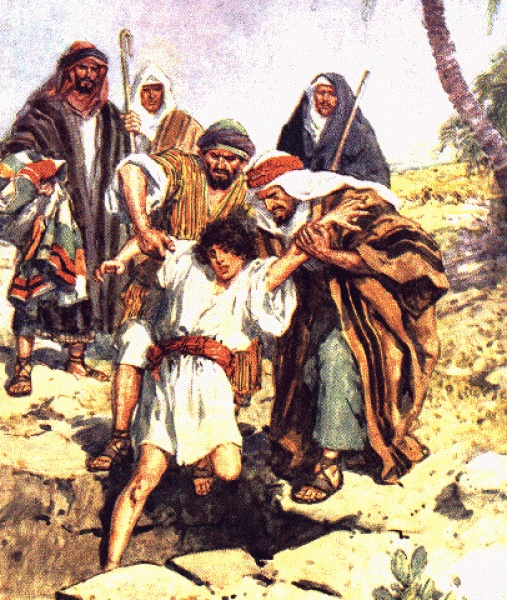
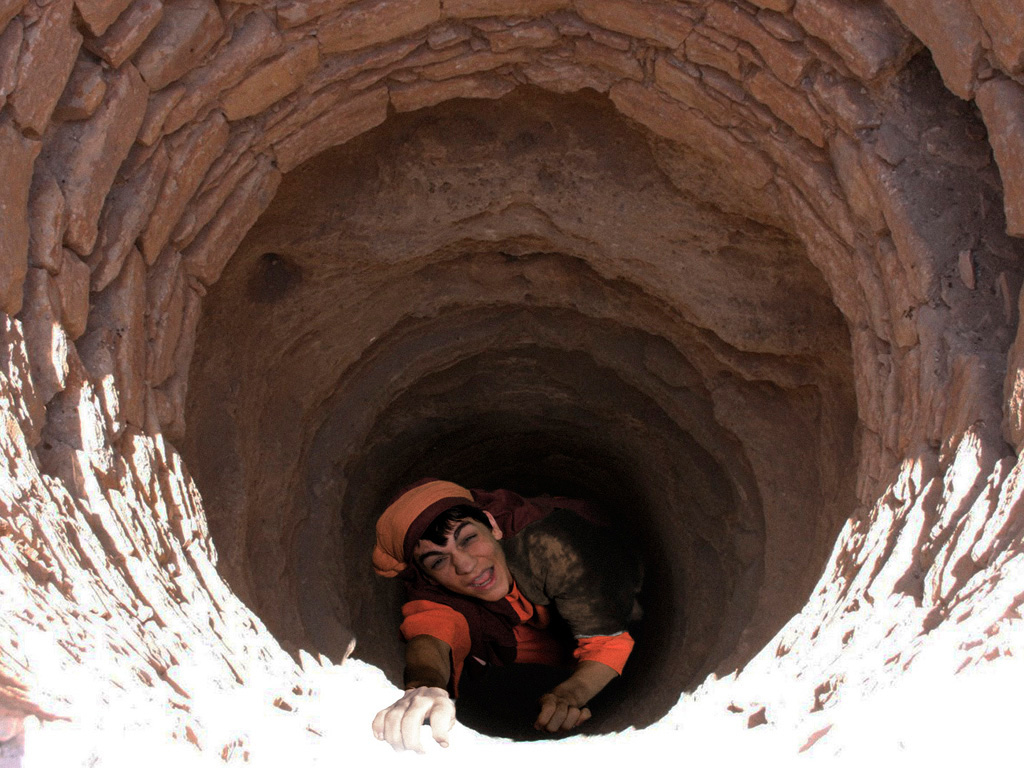
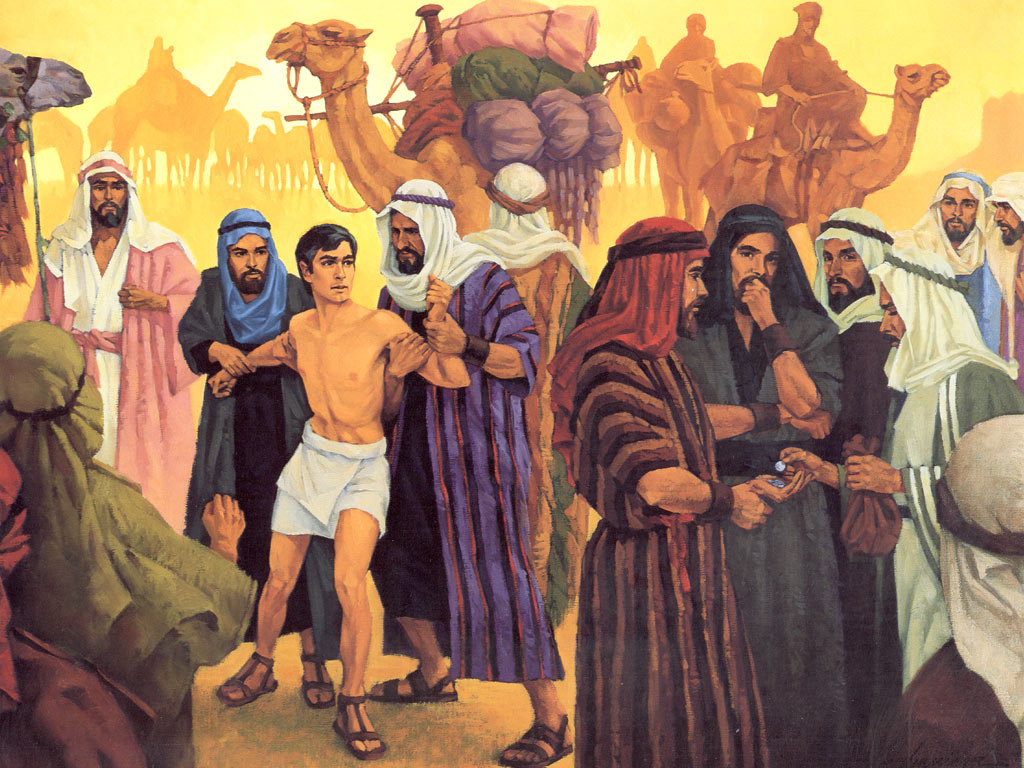
One could nickname it, "ALL IN THE FAMILY"
Note: you will need the oldheb.ttf (old Hebrew) and the SGreek Mediuim fonts to see the Hebrew and Greek text, as well as the three English fonts: Cooper Black, Impact and Frontlight MT Light. Right click the links and choose "Save Target As". Then go to the file, and either right click them and choose "install", or drag them into the font page.
oldheb.ttf
SGreek Medium
Cooper Black
Impact
Frontlight MT Light
NOTE: All of the yous and yours underlined as "you" and "your" indicates that the you and the your are plural. Also any of the words that are in bold pink lettering as "you" refers to the feminine gender, but it is only applied when it does not commonly refer to a woman. This only is applied to this week's Torah portion text at this time.
CHAPTER 37
Genesis 37:1-36
Gen 37:1 And Jacob dwelled in the land of the sojournings of his father in the land of Canaan. 2 These are the birthings (generations) of Jacob. Joseph, a son of seven ten (seventeen) years, was tending among the flock of ta-his brothers; and he was a young man at ta-the sons of Bilhah, and ta-the sons of Zilpah, the wives of his father: and Joseph brought their slander (defamation, evil report) to their father. 3 And Israel loved ta-Joseph than all of his sons, for he was a son of his old age to him: and did (made) for him a long coat (robe) at the sole. 4 And his brothers saw for their father loved him than all of his brothers, and they hated him, and they were not able at speaking to peace at him [(speak of him for peace)].
5 And Joseph calm-dreamed a calm-dream, and told (declared) to his brothers: and they still added at hating him [(and they hated him yet more (addingly, still))]. 6 And said to them, Hear now of this calm-dream which I have calm-dreamed: 7 And behold, we were with binding bundles (sheaves) in the midst of the field, and behold, my bundle (sheaf) arose and also stood; and behold, your bundles (sheaves), they came around, and they bowed to my bundle (sheaf). 8 And his brothers, they said to him, That reigning, you shall reign upon us? If ruling, you shall rule among us? And they still added at hating him [(and they hated him yet more (addingly, still))] upon his calm-dreams and upon his words.
9 And dreamed still (yet) another dream, and accounted (scribed, enumerated, enrolled, scrolled) him to his brothers, and said, Behold, I have still (still have) calm-dreamed a calm-dream; and behold, the sun and the moon and the one ten (oneteen, eleven) stars were bowing to me. 10 And was accounted (scribed, enumerated, enrolled, scrolled) to his father, and to his brothers: and his father rebuked (reproved) against him, and said to him, What is this calm-dream which you have calm-dreamed? That coming, I and your mother and your brothers, we shall come to bow to you to the Earth? 11 And his brothers, they envied (were envious, were jealous, were zealous) against him; and his father guarded (kept, observed, heeded) ta-the word.
12 And his brothers, they went to tend (shepherd) the ta-flocks of their father in Shechem. 13 And Israel said to Joseph, That your brothers are not tending (shepherding) in Shechem? Come, and I will send you to them. And said to him, Behold I. 14 And said to him, Go now, see ta-the peace (welfare) of your brothers, and ta-the peace (welfare) of the flocks; and return me word. And sent him from the Deep Valley of Hebron (Emek Hebron), and came to Shechem. 15 And a man found him, and behold, was wandering in the field: and the man asked him, to say, What do you seek? 16 And said, I am seeking ta-My brothers: Tell (Declare) now, where are they tending (shepherding)? 17 And the man said, They pulled up (journeyed) from this (here); for I heard them say, We will go to Dothan. And Joseph went after his brothers, and found them in Dothan.
18 And they saw him from afar off and before coming near to them, and they conspired (deceived, dealt subtly at) him for the death of him [(for his death, to have him die, to have him dead)]. 19 And they said a man to his brother, Behold, the master of the calm-dreams, yonder this, comes. 20 And come now, and we will kill him, and we will cast (throw, send) him in one of the bore-wells, and we will say, An evil beast has eaten him: And we shall see what they shall become of his calm-dreams. 21 And Reuben heard (listened), and delivered him from their hands; and said, We will not strike (slaughter) a soul! 22 And Reuben said to them, Do you not shed (gush out, spill) blood! Cast (Throw, Send) him to this bore-well which is in the wilderness, and you do not send (cast, stretch forth, send forth) a hand on him; by that, shall deliver [(at delivering)] him from their hands to return him to his father.
23 And was, as the which Joseph came to his brothers, and they stripped ta-Joseph out of ta-his long coat (robe), ta-the long coat (robe) at the sole which was upon him; 24 And they took, and they cast (threw, sent) him to the bore-well: and the bore-well was empty. Water was not in him. 25 And they sat (dwelled) to eat bread: and they lifted up their eyes, and looked, and behold, a travelled caravan of Ishmaelim coming from Gilead, and their camels were going to descend (take down) to Egypt were bearing spices and balm and ladanum. 26 And Judah said to his brothers, What shall profit (gain) for we would kill of ta-our brother and we would conceal ta-his blood? 27 Come, and we will sell him to the Ishmaelim, and our hand, she shall not be against him; for he is our brother of our flesh. And his brothers, they listened.
28 And men, Midianim, merchant (trading) men, they came over; and they drew, and they ascended ta-Joseph from the bore-well, and they sold ta-Joseph to the Ishmaelim in twenty of silver: and they brought (made go) ta-Joseph to Egypt.
29 And Reuben returned to the bore-well; and behold, Joseph was not in the bored-well; and rented ta-his garment. 30 And returned to his brothers, and said, The lad (boy), he is not; and I, where shall I go? 31 And they took ta-the long coat (robe) of Joseph, and they slaughterd a goat of the kids, and they dipped ta-the long coat (robe) in the blood;
32 And they sent ta-the long coat (robe) that was at the sole, and they came to their father; and they said, We have found this: Discern now the long coat (robe), is she of your son, if not. 33 And knew her, and said, The long coat (robe) of my son! An evil beast has eaten him! Torn, Joseph is torn! 34 And Jacob rented his clothes, and put sackcloth on his loins, and bewailed (lamented) upon his son multiple days. 35 And all of his sons and all of his daughters, they arose to comfort him; and refused to be comforted of them (to their comforting); and said, For I will descend to my son bewailing (lamenting) to Sheol [(I will descend (go down) to Sheol bewailing (lamenting) for my son)]. And his father wept of him. 36 And the Midianim, they sold him to Egypt to Potiphar, an officer (eunich) of Pharaoh, Prince of the Executioners.
(NOTE: Not all verses will have comments)
Verses one and two
1 And Jacob dwelled in the land of the sojournings of his father in the land of Canaan. 2 These are the birthings (generations) of Jacob. Joseph, a son of seven ten (seventeen) years, was tending among the flock of ta-his brothers; and he was a young man at ta-the sons of Bilhah, and ta-the sons of Zilpah, the wives of his father: and Joseph brought their slander (defamation, evil report) to their father.
Notice it did not say that Joseph was with the sons of Leah. Why was that? It sounds like there was a riff between the brothers of Leah and the brothers of Rachel, in other words "sibling rivalry".
Recalling from last week's Torah portion of Vay-Yishlakh, Jacob was 91 years old when Joseph was born, and Joseph was about six years old when the family returned to the land. That put Jacob-Israel at 97 years old. Based on the account that Benjamin was born, which would be within a year after returning to the land, they returned to Hebron about a year later, putting Jacob-Israel at 98 years old and Joseph at seven years old.
This is a chart revealing the year of mankind and the ages of Joseph's relatives when Joseph was seventeen years old
six old
| YEAR OF MAN WHEN JOSEPH WAS 17 YEARS OLD | NAME OF JOSEPH'S RELATIVE | AGE OF JACOB'S RELATIVES WHEN JOSEPH WAS 17 YEARS OLD | AGE OF DEATH OF JOSEPH'S RELATIVES |
| 2216 YEARS OF MANKIND | Isaac | 168 years old | 180 years old |
| 2216 YEARS OF MANKIND | Jacob | 108 years old | 147 years old |
| 2216 YEARS OF MANKIND | Esau | 108 years old | (unknown) |
| 2216 YEARS OF MANKIND | Reuben | about 24 years old | (unknown) |
| 2216 YEARS OF MANKIND | Simeon | about 23 years old | (unknown) |
| 2216 YEARS OF MANKIND | Levi | about 23 years old | 137 years old |
| 2216 YEARS OF MANKIND | Judah | about 22 years old | (unknown) |
| 2216 YEARS OF MANKIND | Dan | about 21 years old | (unknown) |
| 2216 YEARS OF MANKIND | Naphtali | about 21 years old | (unknown) |
| 2216 YEARS OF MANKIND | Gad | about 20 years old | (unknown) |
| 2216 YEARS OF MANKIND | Asher | about 20 years old | (unknown) |
| 2216 YEARS OF MANKIND | Issachar | about 19 years old | (unknown) |
| 2216 YEARS OF MANKIND | Zebulun | about 19 years old | (unknown) |
| 2216 YEARS OF MANKIND | Dinah | about 18 years old | (unknown) |
| 2216 YEARS OF MANKIND | Benjamin | about 8 or 10 years old | (unknown) |
If the calculation is correct, this would take the time line to about 1784 BC.
That means that Joseph met and knew his grandfather Isaac for a maximum of ten years in this chapter's account, because based on verse fourteen, they were dwelling at or near Isaac's location in Hebron before he went to look for his brothers. The family has lived in Canaan at this time for a total of eleven years. That means Jacob-Israel dwelt near, or with, his father, Isaac, after their return from Padan Aram, for a total of twenty two years before Isaac's death. I would not be surprised if Isaac knew about the rumored tragedy of Joseph's death and hearing his son, Jacob-Israel mourning for him.
By the time that Joseph was seventeen years old, according to Wikipedia, based on the time line, the Pharaoh who ruled in Egypt at the time was Yakbim Skhaenre (or Yakbmu) who ruled from 1805-1780 BC of the Fourteenth Dynasty, in the Second Intermediate Period. This is what Wikipedia says regarding Yakbim Skhaenre:
"Sekhaenre Yakbim or Yakbmu was a ruler during the Second Intermediate Period of Egypt. Although his dynastic and temporal collocation is disputed, Danish Egyptologist Kim Ryholt believes that he likely was the founder of the Levantine-blooded Fourteenth Dynasty, while in older literature he was mainly considered a member of the Sixteenth Dynasty.
His name never appears inside a cartouche, which was a pharaonic prerogative; nevertheless, on his seals he is usually called "the good god, Sekhaenre" (or simply "Sekhaenre") and "the son of Ra, Yakbim".
There is no direct evidence that Yakbim's throne name was Sekhaenre. This theory is based on stylistic features of the seals and was proposed by William Ayres Ward and later elaborated on by Ryholt;[6] Daphna Ben-Tor disputed this identification, pointing out that the seals of the several rulers living during this period are too similar to make such correlations on the basis of mere design features.
Assuming that Ward was right, Sekhaenre Yakbim is attested by a remarkable 123 seals, second only – for this period – to the 396 of Sheshi. Based on that, Ryholt estimated for him a reign length of around 25 years, in the interval 1805–1780 BCE.".
This are the only images pertaining to Yakbim Skhaenre
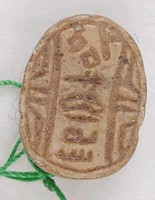
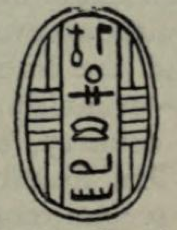
Realize that all of Jacob's children were born after the first seven years Jacob served Laban originally for Rachel, and all of the children were born by the end of Jacob's second seven years which he served for Laban. Mark Biltz of El Shaddai Ministries put out a chart of his version of the ages between Jacob's children
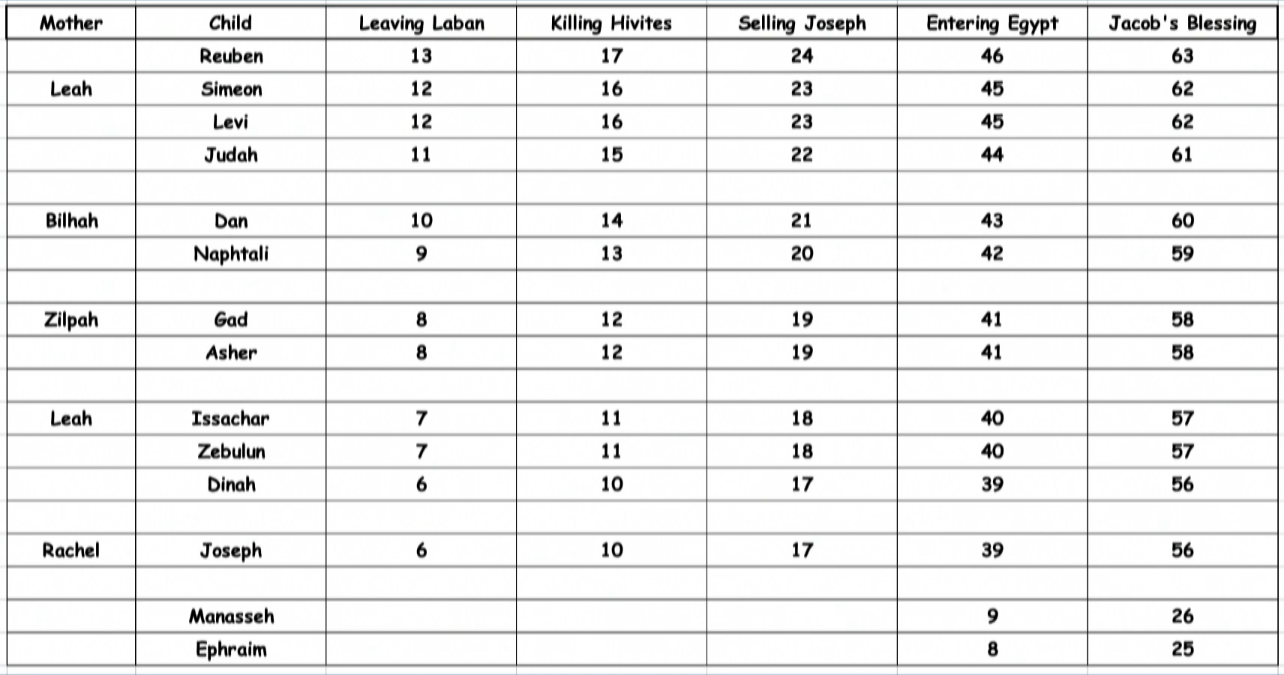
Verses three and four
3 And Israel loved ta-Joseph than all of his sons, for he was a son of his old age to him: and did (made) for him a long coat (a long robe) at the sole. 4 And his brothers saw for their father loved him than all of his brothers, they hated him, and they were not able at speaking to peace at him [(speak of him for peace)].
Ever heard of one of the Smothers Brothers famous statement when the younger brother said to his older brother "Mom loved you best!". This was a similar matter, but it was more meaningful to Jacob because he was very old when Joseph was born.
Looking at the words:
LONG COAT (ROBE)
The Hebrew word for coat is "k'toh-neth"- Kaph, Tav, Nun, Tav (tntk). It is from Strong's Concordance number 3801, and its definition
From an unused root meaning to cover (compare H3802); a shirt: - coat, garment, robe.
SOLE
The Hebrew word for sole is "pahs"- Peh, Samek (op). It is from Strong's Concordance number 6446, and its definition
From H6461; properly the palm (of the hand) or sole (of the foot), (compare H6447); by implication (plural) a long and sleeved tunic (perhaps simply a wide one; from the original sense of the root, that is, of many breadths): - (divers) colours.
from 6461 "pah-sahs" (oop), and its definition
A primitive root; probably to disperse, that is, (intransitively) disappear: - cease.
In other words, this was a long coat that was more of an appearance, as the appearance of a leader, or a king. This is commonly translated as "many colors". I didn't use this translation, because there isn't strong enough proof of this as many colors.
This is what a typical shepherd would wear
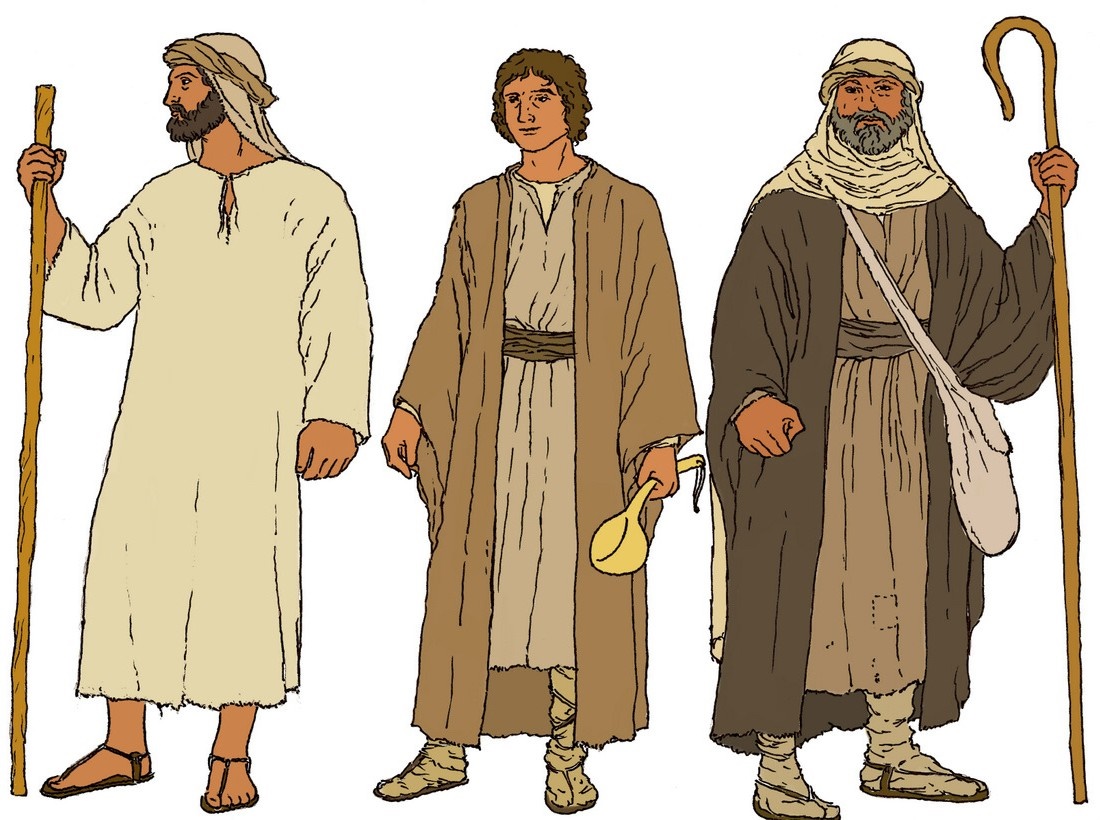
Notice the bottom of their dress attire is above their ankles. Compare it to the coat Israel made for Joseph with the edge down to the floor, this is an example of one that goes to the sole of this person's foot
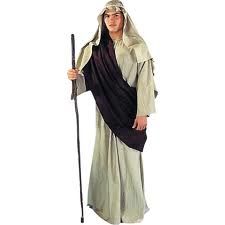
In my opinion, it could have had the emphasis to what a person of high status would wear.
Verses five through eight
5 And Joseph calm-dreamed a calm-dream, and told (declared) to his brothers: and they still added at hating him [(and they hated him yet more (addingly, still), and they still hated him)]. 6 And said to them, Hear now of this calm-dream which I have calm-dreamed: 7 And behold, we were with binding bundles (sheaves) in the midst of the field, and behold, my bundle (sheaf) arose and also stood; and behold, your bundles (sheaves), they came around, and they bowed to my bundle (sheaf). 8 And his brothers, they said to him, That reigning, you shall reign upon us? If ruling, you shall rule among us? And they still added at hating him [(and they hated him yet more (addingly, still), and they still hated him)] upon his calm-dreams and upon his words.
The first dream's main item used is the sheaves of grain. This dream does not include his father or the mothers.
By the time Joseph dreamed his first dream, Benjamin was only ten years old.
This also means that the sheaves symbolize the people of the earth. Each sheaf of each of the twelve brothers represent the descendants of the "physical" twelve tribes, because each grain and stalk in a bundle represents a descendant of that brother.
Looking at the word CALM-DREAM
The Hebew word for calm-dream is "khoh-lohm"- Khet, Lamed, Vav, Mem Sophit (Mwlx). It is from Strong's Concordance number 2472, and its definition
From H2492; a dream: - dream (-er).
from 2492 "khah-lahm" (Mlx), and its definition
A primitive root; properly to bind firmly, that is, (by implication) to be (causatively to make) plump; also (through the figurative sense of dumbness) to dream: - (cause to) dream (-er), be in good liking, recover.
This is where we get our modern English word "calm", because our dreams are "calm".
Verses nine and ten
9 And dreamed still (yet) another dream, and accounted (scribed, enumerated, enrolled, scrolled) him to his brothers, and said, Behold, I have still (still have) calm-dreamed a calm-dream; and behold, the sun and the moon and the one ten (oneteen, eleven) stars were bowing to me. 10 And was accounted (scribed, enumerated, enrolled, scrolled) to his father, and to his brothers: and his father rebuked (reproved) against him, and said to him, What is this calm-dream which you have calm-dreamed? That coming, I and your mother and your brothers, we shall come to bow to you to the Earth?
First, why did Jacob say that Joseph's mother will come to bow to him to the earth? Joseph's mother, Rachel, is dead. Was Joseph adopted to one of the other mothers? I don't have an answer to that.
The second dream bear the symbols of the sun, the moon and the stars. The symbols that were used were the sun (the father), the moon (the mother) and the stars (the brothers). This is a short term prophecy that the whole family will be bowing down to Joseph.
These symbols also refer to the kingdom of heaven where believers who do not know of their tribal heritage will be grafted into one the stars- one of the twelve brothers, and are grafted into the Israelite branch.
This also represents the woman, who is the symbol of Israel, that the dragon wants to destroy, which is noted in the book of Revelation
Revelation 12:1 And there appeared a great wonder in the heavens; a woman clothed with the sun, and the moon under her feet, and upon her head a crown of twelve stars: 2 And she being with Child cried, travailing in birth, and pained to be delivered. 3 And there appeared another wonder in the heavens; and behold a great red dragon, having seven heads and ten horns, and seven crowns upon his heads. 4 And his tail drew the third part of the stars of the heavens, and did cast them to the earth: and the dragon stood before the woman which was ready to be delivered, for to devour her Child as soon as It was born. 5 And she brought forth a Man Child, who was to rule all nations with a rod of iron: and her Child was caught up unto hwhy, and to His Throne. 6 And the woman fled into the wilderness, where she hath a place prepared of hwhy, that they should feed her there a thousand two hundred and threescore days. 7 And there was war in the heavens: Michael and his angels fought against the dragon; and the dragon fought and his angels, 8 And prevailed not; neither was their place found any more in the heavens. 9 And the great dragon was cast out, that old serpent, called the Devil, and Satan, which deceiveth the whole world: he was cast out into the earth, and his angels were cast out with him. 10 And I heard a loud voice saying in the heavens, Now is come salvation, and strength, and the Kingdom of our Elohim, and the power of His Messiah: for the accuser of our brethren is cast down, which accused them before our Elohim day and night. 11 And they overcame him by the Blood of the Lamb, and by the word of their testimony; and they loved not their lives unto the death. 12 Therefore rejoice, ye heavens, and ye that dwell in them. Woe to the inhabiters of the earth and of the sea! for the devil is come down unto you, having great wrath, because he knoweth that he hath but a short time. 13 And when the dragon saw that he was cast unto the earth, he persecuted the woman which brought forth the Man Child. 14 And to the woman were given two wings of a great eagle, that she might fly into the wilderness, into her place, where she is nourished for a time, and times, and half a time, from the face of the serpent. 15 And the serpent cast out of his mouth water as a flood after the woman, that he might cause her to be carried away of the flood. 16 And the earth helped the woman, and the earth opened her mouth, and swallowed up the flood which the dragon cast out of his mouth. 17 And the dragon was wroth with the woman, and went to make war with the remnant of her seed, which keep the Commandments of hwhy, and have the Testimony of Yeshua Messiah.
Yeshua is connected with this woman, symbolized the woman bearing the sun, moon and stars, originally revealed by Joseph's dream.
The apostle Paul explains the natural branches of the descendants of Jacob and those who are "grafted in" to the Israelite branch, which is noted in his letter to the assembly in Rome.
Romans 11:1 I say then, Hath hwhy cast away His People? Let it not be. For I also am an Israelite, of the seed of Abraham, of the tribe of Benjamin. 2 hwhy hath not cast away His People which He foreknew. Wot ye not what the Scripture saith of Elias? how he maketh intercession to hwhy against Israel, saying, 3 Lord, they have killed Thy prophets, and digged down Thine altars; and I am left alone, and they seek my life. 4 But what saith the answer of hwhy unto him? I have reserved to Myself seven thousand men, who have not bowed the knee to the image of Baal. 5 Even so then at this present time also there is a remnant according to the election of grace. 6 And if by grace, then is it no more of works: otherwise grace is no more grace. But if it be of works, then is it no more grace: otherwise work is no more work. 7 What then? Israel hath not obtained that which he seeketh for; but the election hath obtained it, and the rest were blinded 8 (According as it is written, hwhy hath given them the spirit of slumber, eyes that they should not see, and ears that they should not hear;) unto this day. 9 And David saith, Let their table be made a snare, and a trap, and a stumblingblock, and a recompence unto them: 10 Let their eyes be darkened, that they may not see, and bow down their back alway. 11 I say then, Have they stumbled that they should fall? Let it not be: but rather through their fall salvation is come unto the Gentiles, for to provoke them to jealousy. 12 Now if the fall of them be the riches of the world, and the diminishing of them the riches of the Gentiles; how much more their fulness? 13 For I speak to you Gentiles, inasmuch as I am the apostle of the Gentiles, I magnify mine office: 14 If by any means I may provoke to emulation them which are my flesh, and might save some of them. 15 For if the casting away of them be the reconciling of the world, what shall the receiving of them be, but life from the dead? 16 For if the firstfruit be Holy, the lump is also Holy: and if the root be Holy, so are the branches. 17 And if some of the branches be broken off, and thou, being a wild olive tree, wert graffed in among them, and with them partakest of the root and fatness of the olive tree; 18 Boast not against the branches. But if thou boast, thou bearest not the Root, but the Root thee. 19 Thou wilt say then, The branches were broken off, that I might be graffed in. 20 Well; because of unbelief they were broken off, and thou standest by faith. Be not highminded, but fear: 21 For if hwhy spared not the natural branches, take heed lest he also spare not thee. 22 Behold therefore the goodness and severity of hwhy: on them which fell, severity; but toward thee, goodness, if thou continue in His goodness: otherwise thou also shalt be cut off. 23 And they also, if they abide not still in unbelief, shall be graffed in: for hwhy is able to graff them in again. 24 For if thou wert cut out of the olive tree which is wild by nature, and wert graffed contrary to nature into a good olive tree: how much more shall these, which be the natural branches, be graffed into their own olive tree? 25 For I would not, brethren, that ye should be ignorant of this mystery, lest ye should be wise in your own conceits; that blindness in part is happened to Israel, until the fullness of the Gentiles be come in. 26 And so all Israel shall be saved: as it is written, There shall come out of Sion the Deliverer, and shall turn away ungodliness from Jacob: 27 For this is My Covenant unto them, when I shall take away their sins.
Verse eleven
11 And his brothers, they envied (were jealous, were zealous) against him; and his father guarded (kept, observed, watched) ta-the word.
Mary, Yeshua's mother, also kept a word, which is noted in the Gospel of Luke
Luke 2:8 And there were in the same country shepherds abiding in the field, keeping watch over their flock by night. 9 And, lo, the Messenger of hwhy came upon them, and the Glory of hwhy shone round about them: and they were sore afraid. 10 And the Messenger said unto them, Fear not: for, behold, I bring you good tidings of great joy, which shall be to all people. 11 For unto you is born this day in the City of David a Saviour, which is Messiah hwhy. 12 And this shall be a sign unto you; Ye shall find the Babe wrapped in swaddling clothes, lying in a manger. 13 And suddenly there was with the Messenger a multitude of the heavenly host praising hwhy, and saying, 14 Glory to hwhy in the highest, and on earth peace, good will toward men. 15 And it came to pass, as the angels were gone away from them into the heavens, the shepherds said one to another, Let us now go even unto Bethlehem, and see this thing which is come to pass, which hwhy hath made known unto us. 16 And they came with haste, and found Mary, and Joseph, and the Babe lying in a manger. 17 And when they had seen It, they made known abroad the saying which was told them concerning this Child. 18 And all they that heard it wondered at those things which were told them by the shepherds. 19 But Mary kept all these things, and pondered them in her heart.
Mary kept the words the shepherds said to her, as Jacob-Israel kept the words Joseph said to him.
Both times in these dreams, the brothers, except for Benjamin, expressed their hatred for Joseph. This will be a preparation for what is going to happen to Joseph.
When Joseph spoke both of his dreams to his family, he picked up on his father's "blabber-mouthing" trait. Jacob blabber mouthed to Laban of his matters when he was in Padan Aram, so did Joseph to his family twice in Hebron. Like father, like son. Joseph being hated by his brothers was comparable to Yeshua being hated by his Jewish brothers, which ultimately result in His crucifixion.
Verses twelve through fourteen
12 And his brothers, they went to tend (shepherd) the ta-flocks of their father in Shechem. 13 And Israel said to Joseph, That your brothers are not tending (shepherding) in Shechem? Come, and I will send you to them. And said to him, Behold I. 14 And said to him, Go now, see ta-the peace (welfare) of your brothers, and ta-the peace (welfare) of the flocks; and return me word....
This is a similar pattern used by the prophet Isaiah, which is noted in his book
Isaiah 6:6 Then flew one of the seraphims unto me, having a live coal in his hand, which he had taken with the tongs from off the altar: 7 And he laid it upon my mouth, and said, Lo, this hath touched thy lips; and thine iniquity is taken away, and thy sin purged. 8 Also I heard ta-the voice of Adonai, saying, Whom shall I send, and who will go for us? Then said I, Behold I; send me. 9 And he said, Go, and tell this people, Hear ye indeed, but understand not; and see ye indeed, but perceive not.
Looking at the word SHECHEM
The Hebrew word for Shechem is "Sh'khehm"- Shin, Kaph, Mem Sophit (Mks). It is from Strong's Concordance number 7927, and its definition
The same as H7926; ridge; Shekem, a place in Palestine: - Shechem.
from 7926 "sh'khehm" (Mks) and its definition
From H7925; the neck (between the shoulders) as the place of burdens; figuratively the spur of a hill: - back, X consent, portion, shoulder.
from 7925 "shah-khahm" (Mks), and its definition
A primitive root; properly to incline (the shoulder to a burden); but used only as denominative from H7926; literally to load up (on the back of man or beast), that is, to start early in the morning: - (arise, be up, get [oneself] up, rise up) early (betimes), morning.
Shechem means "Shoulder".
Shechem is the same location where Mount Gerizim and Mount Ebal are located where the sons of Israel are to say the blessings and the cursings, which is noted in the Torah portion of Ki Thavo, in the book of Deuteronomy
Deuteronomy 27:11 And Moses commanded ta-the People on that day, to say, 12 These, they shall stand to bless ta-the People upon Mount Gerizim in your going over ta-the Jordan; Simeon, and Levi, and Judah, and Issachar, and Joseph, and Benjamin: 13 and these, they shall stand upon the despisement (curse) on Mount Ebal; Reuben, Gad, and Asher, and Zebulun, Dan, and Naphtali.
Bill Cloud of Shoreshim Ministries realized this verse, which is noted in the book of the porophet Isaiah
Isaiah 9:6 For a Child was birthed to us, a Son was given to us: and the government, she shall be upon His Shoulders: and His Name shall be called Wonderful, Counsellor, the Mighty El, the Everlasting Father, the Prince of Peace.
Bill Cloud realized that this was Yeshua, the future High Priest, but also Mount Gerizim and Mount Ebal were the "shoulders" of "Shechem".
Back in this week's Torah portion passage, looking at the map below, one can see the most probable route that Joseph took to get to Shechem
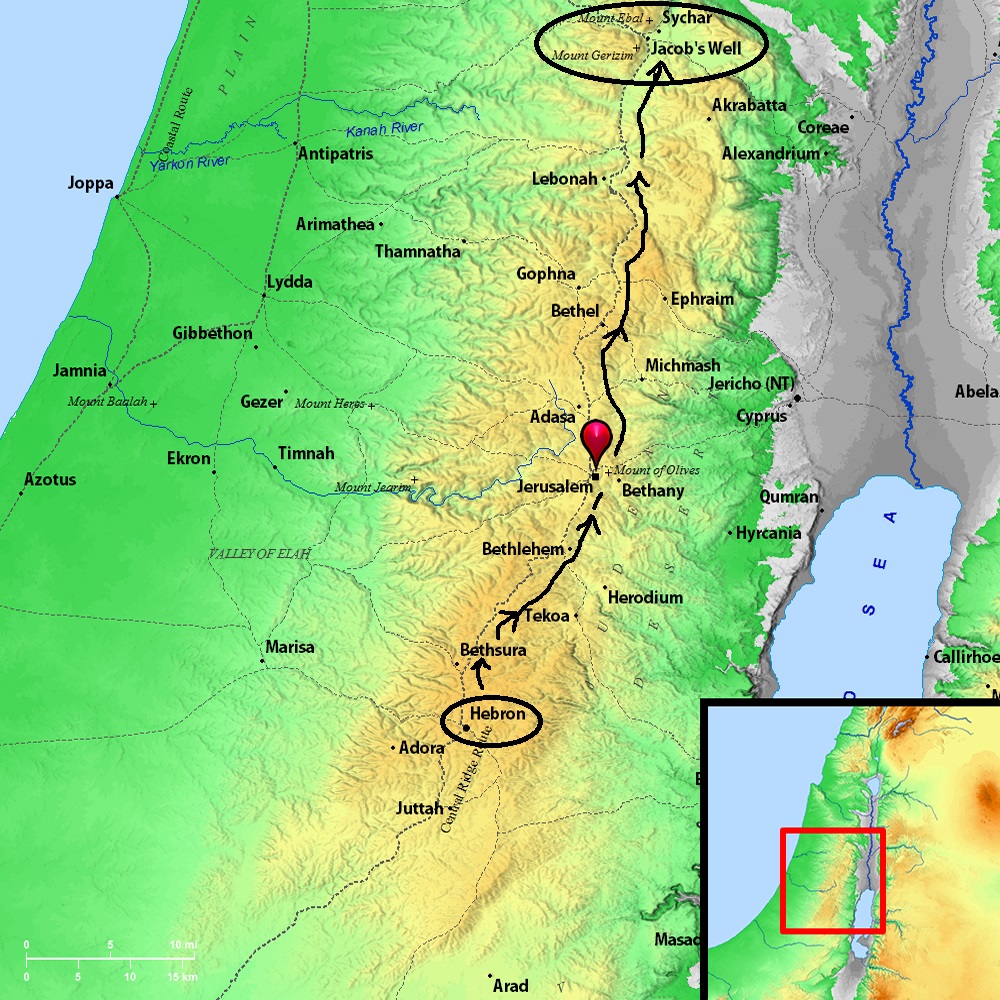
As one can see, Joseph's journey was not a hop, skip and a jump away, but about a "fifty mile journey" from his home. That was for a seventeen year old boy traveling by himself? How would you like to send your teenager on a far away distance walk, by himself, in the wilderness, without knowing what could potentially happen to him. Was Jacob that nieve to send his son by himself in the wilderness? What was he thinking?
This is a panorama view of the location of Shechem, modern day Nablus, with Mount Gerizim and Mount Ebal where Joshua had six of each of the twelve tribes of Israel stood to say the blessings and curses


This is an image comparing the high priest's shoulder pieces to the two mountains at Shechem

This is a topical view of Shechem and the two mountains
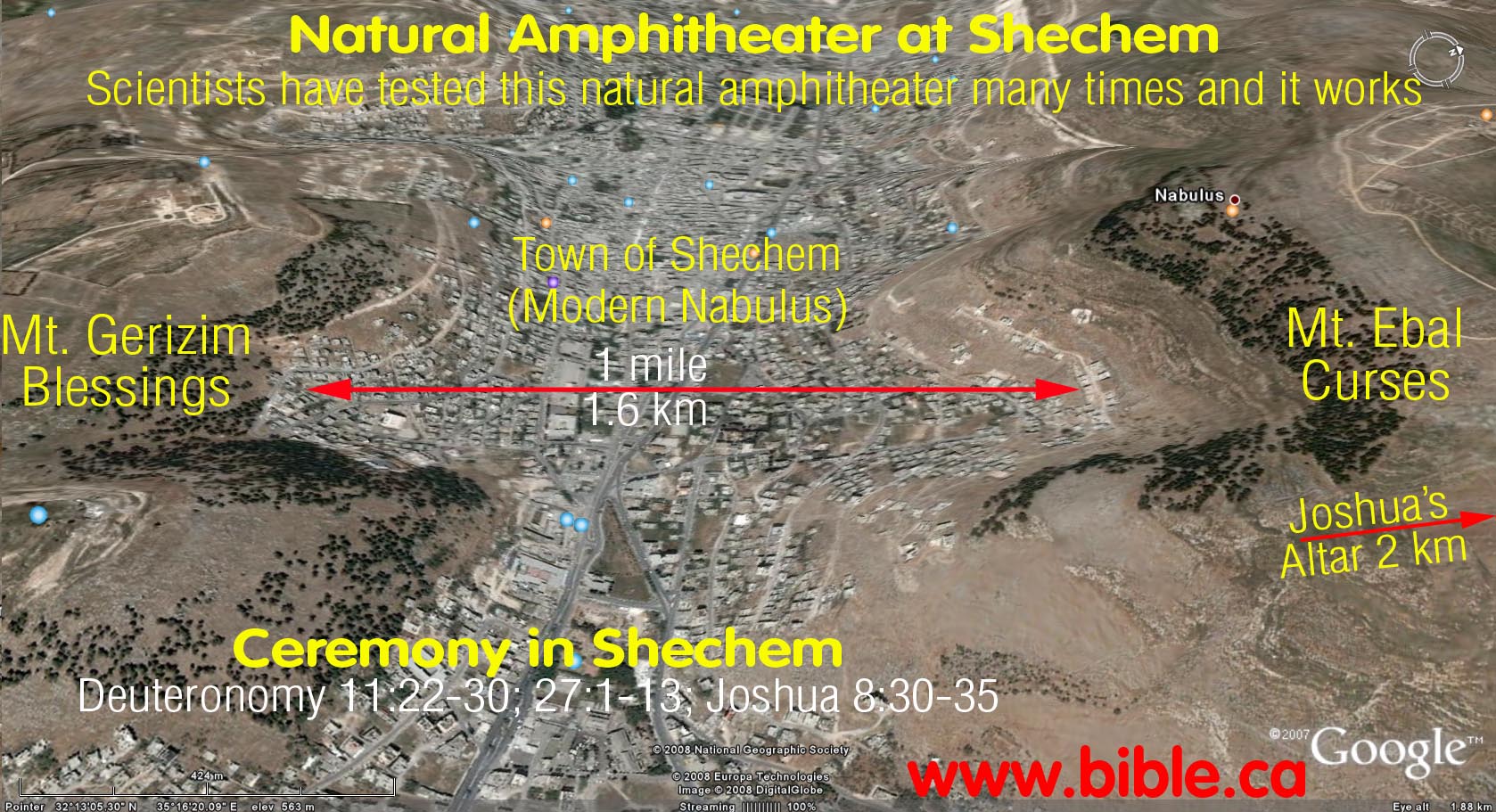
This is a topical sketch
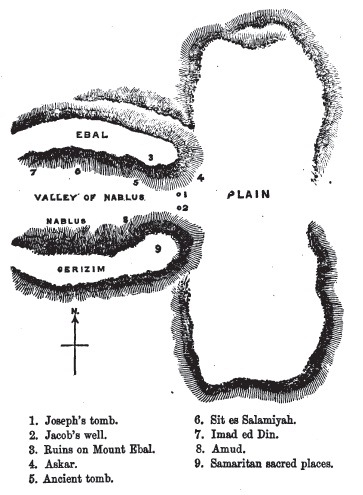
Based on these views, it is shaped like a natural ampitheater. They are also shaped like a major entrance. hwhy brought Abram to the major entrance to the promise land that he and his descendants were going to inherit, Jacob and his went through here in his return from . The Israelites followed after their ancestor's footsteps to "enter" to inherit the land. As the majority of the Hebraic Roots teachers say "History repeats itself".
This is also the same location that Joshua build an altar to hwhy, which is noted in the book of Joshua
Joshua 8:30 Then Joshua built an altar unto hwhy Elohim of Israel in mount Ebal, 31 As Moses the servant of hwhy commanded ta-the Sons of Israel, as it is written in the book of the Torah of Moses, an altar of whole stones, over which no man hath lift up any iron: and they elevated Elevation Offerings unto hwhy, and sacrificed peace offerings. 32 And he wrote there upon the stones ta a copy of the Torah of Moses, which he wrote in the presence of the Sons of Israel.
Looking at verse twelve of this week's Torah portion passage, part of the phrase says "...the ta-flocks...". In the Hebrew text, the Aleph-Tav has dots above each of the two letters
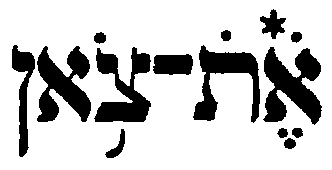
Monte Judah of Lion and Lamb Ministries in his July 2004 Yavoh magazine, in his artice "The Jots and Tittles of Moses", regarding the dots above the Aleph-Tav noted regarding the dots:
"As I mentioned in the previous instance, the jots have to do with Jacob's family. This text is particularly profound as it the beginning of the story of Joseph (the start of the story of redemption). This is the beginning point for the Passover. This is the beginning point for explaining the Messiah's work".
It means the Aleph-Tav Flock is Joseph's physical brothers, as well as those who are grafted into the Israelite branch through Yeshua our Messiah, because Yeshua became the symbolic Joseph as "Yeshua, son of Joseph" who came to save His flock- past, present and future, and to those who are not of the physical flock but are grafted into it through His Blood.
Notice in verse fourteen in this week's that Jacob's name was "Israel" who told Joseph to bring back word to him. This week's Torah portion passage will play out at a future date in the next couple of Torah portions. To be continued.
Verses fourteen through seventeen
14 ...And sent him from the Broad Valley of Hebron (Emek Hebron), and came to Shechem. 15 And a man found him, and behold, was wandering in the field: and the man asked him, to say, What do you seek? 16 And said, I am seeking ta-My brothers: Tell (Declare) now, where are they tending (shepherding)? 17 And the man said, They pulled up (journeyed) from this (here); for I heard them say, We will go to Dothan. And Joseph went after his brothers, and found them in Dothan.
First of all, who was this man that came out of nowhere? Was this person a Messenger of hwhy? There have been instances where believers have seen angel unawares, in different dress forms. It has been told at times that they have been dressed in a sweater and khakis. I'm also speculating that this was Yeshua.
Looking at the word DOTHAN
The Hebrew word for Dothan is "Doh-thah-yeen" and "Dothahn"- Dalet, Tav, (Ayin), Nun Sophit (Nytd and Ntd). It is from Strong's Concordance number 1886, and its defintiion
Of uncertain derivation; Dothan, a place in Palestine: - Dothan.
It is possible that it comes from the Hebrew word "dath" (td), from Strong's Concordance number 1882. This is its definition
(Chaldee); corresponding to H1881; decree, law.
from 1881 "dath" (td), and its definition
Of uncertain (perhaps foreign) derivation; a royal edict or statute: - commandment, commission, decree, law, manner
Dothan means "Decree".
Based on the context, it looks like this was "Joseph's Decree" by the Messenger of hwhy- Yeshua- to see his brothers for the upcoming events that will happen to him in his life.
Both Hebrew versions of Dothan are used in verse seventeen. The first Dothan includes the Yod, but the second one doesn't
17 And the man said, They pulled up (journeyed) from this (here); for I heard them say, We will go to Dothan (Nytd). And Joseph went after his brothers, and found them in Dothan (Ntd).
The first Dothan with the Yod, which is a Paleo-Hebrew picture of a hand, implies that "hwhy's Hand" was involved when He was telling Joseph that they were in Dothan. When the Yod was removed after Joseph's arrival, hwhy removed His "Hand" away to allow the upcoming circumstances to occur.
This map below shows two possible routes Joseph and his brothers would have taken to get to Dothan
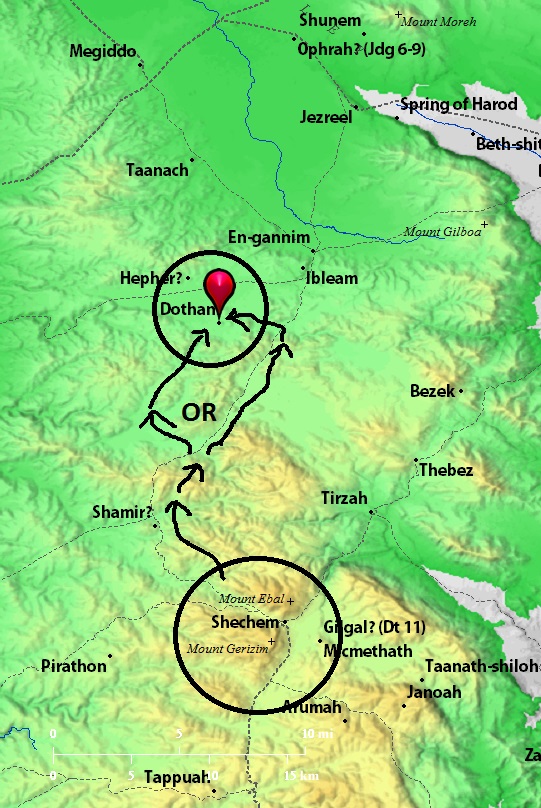
Notice that in order for Joseph and his brothers to get to Dothan, they had to go through the "Natural Entrance" between Mount Gerizim and Mount Ebal, as if they were "officially" entering into the promise land.
These are images of the area of Dothan today, modern day Dotan
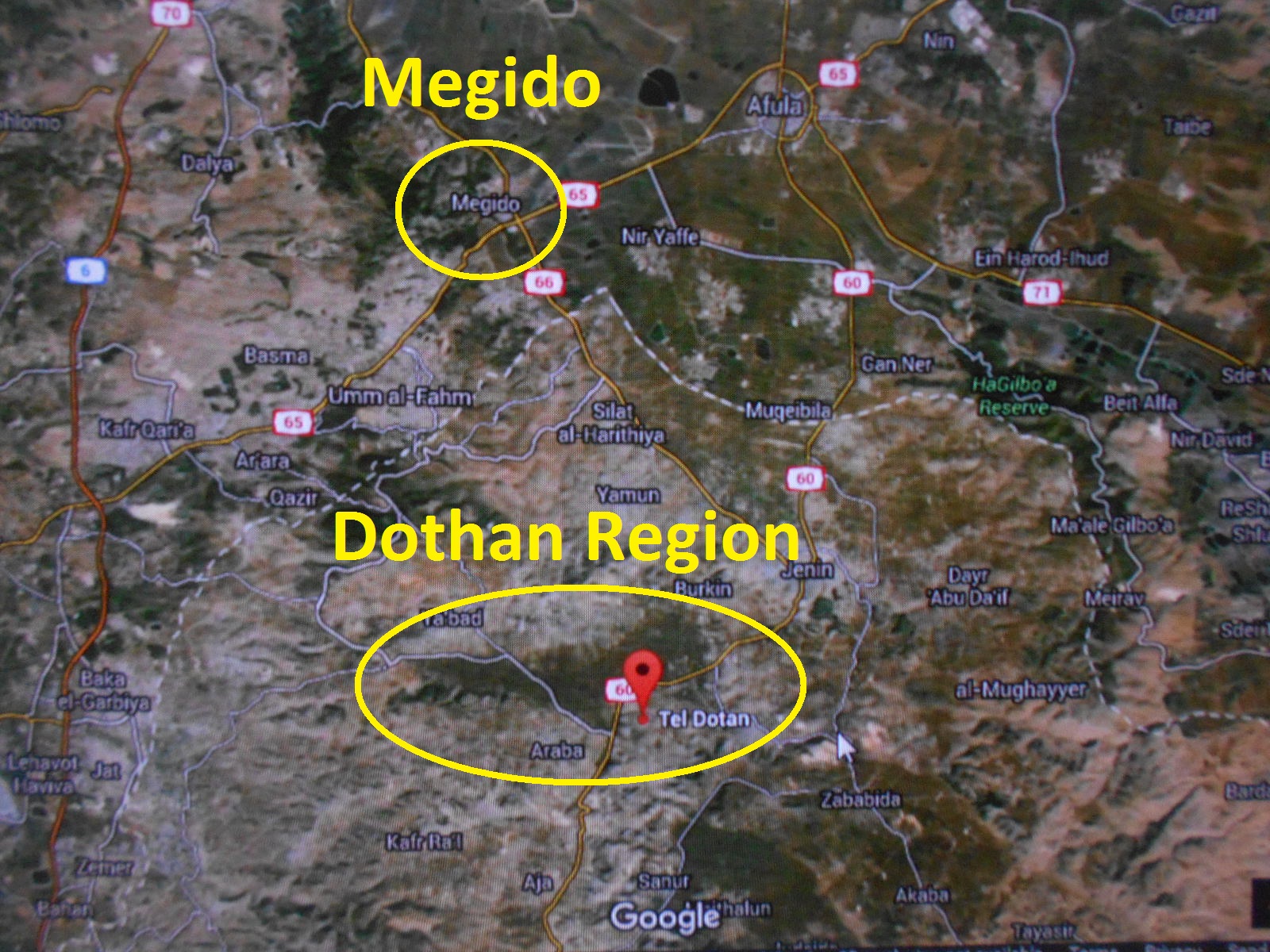
This is a street view of Tel Dothan looking southward
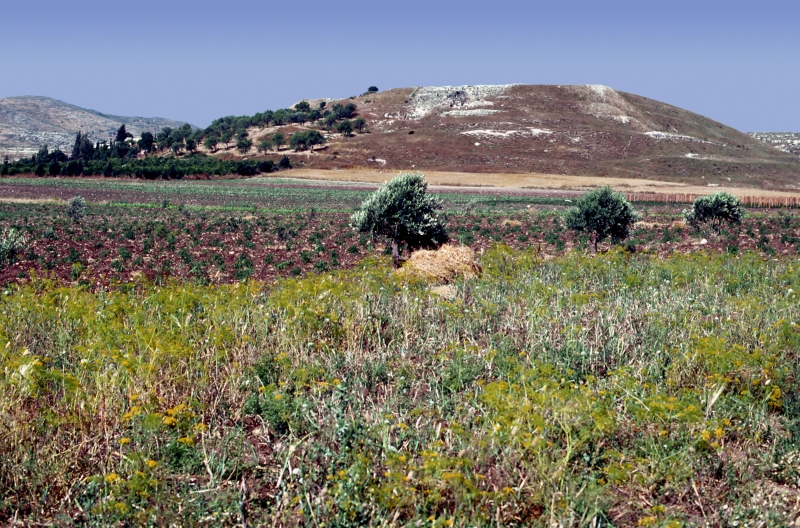
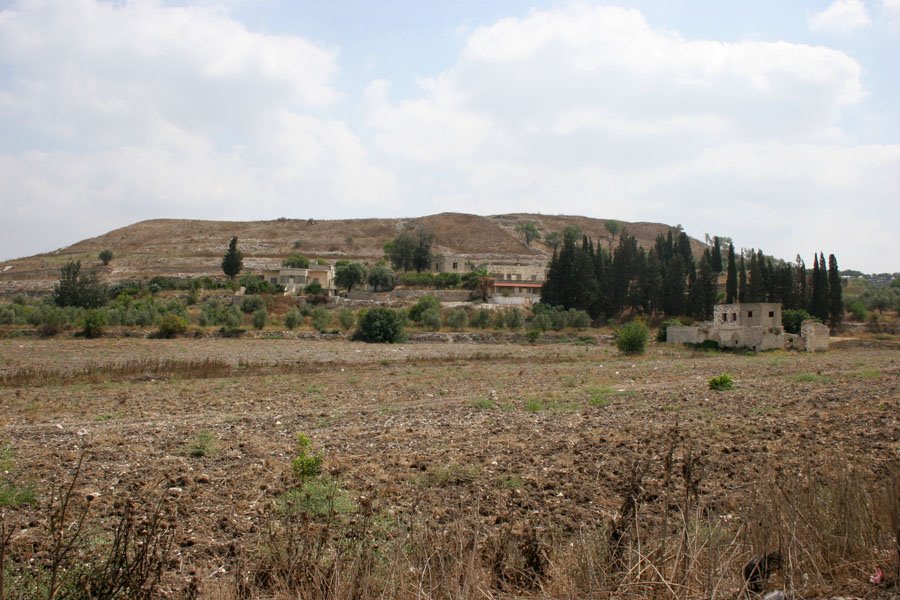
This is an excavating site at Tel Dothan looking northward
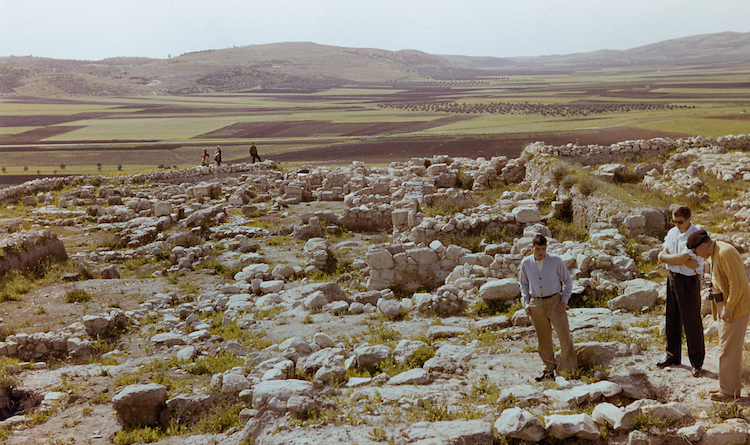
These are satellite images of Mevo Dothan (Dothan's approach) not far off from Tel Dothan
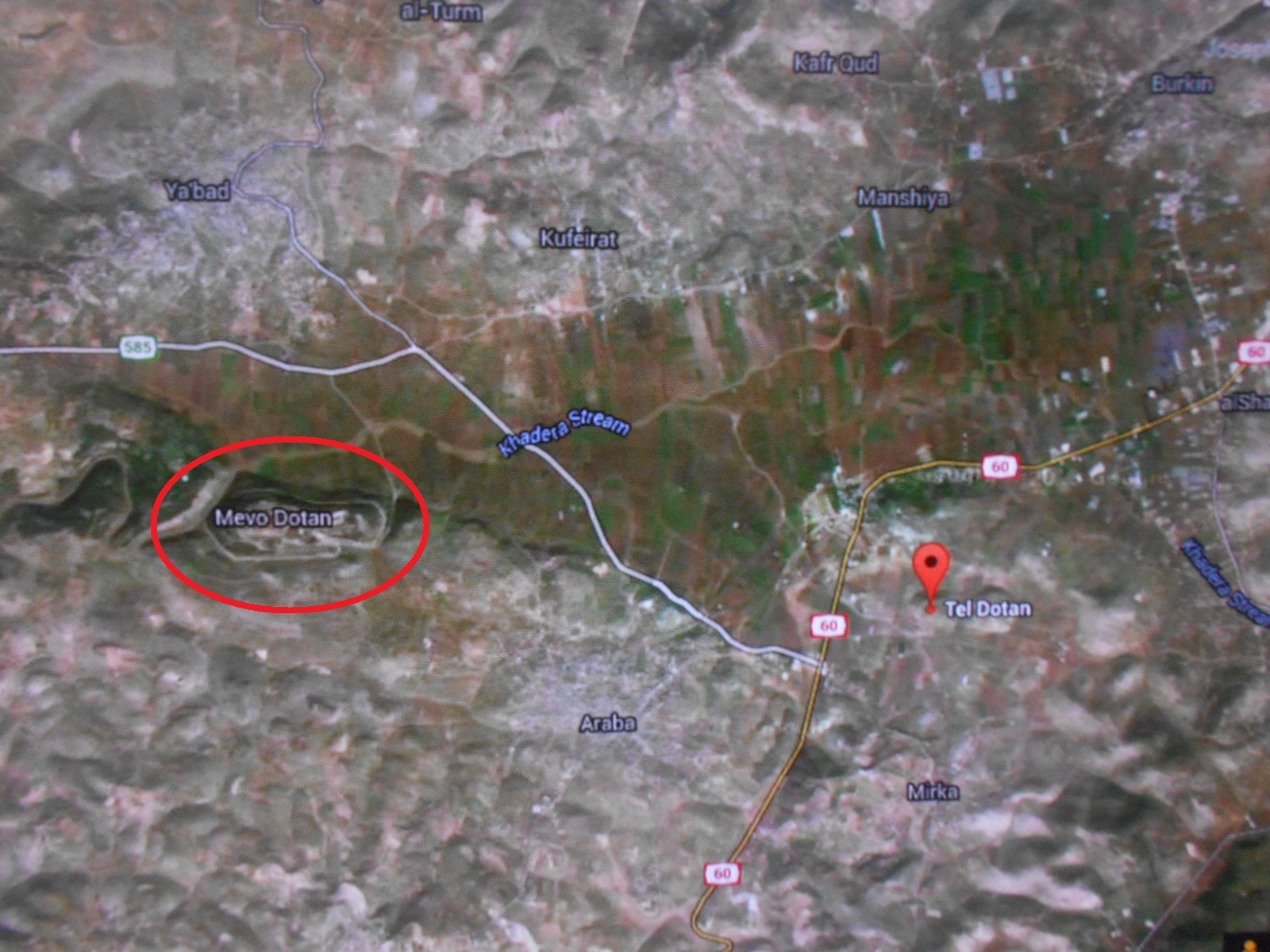
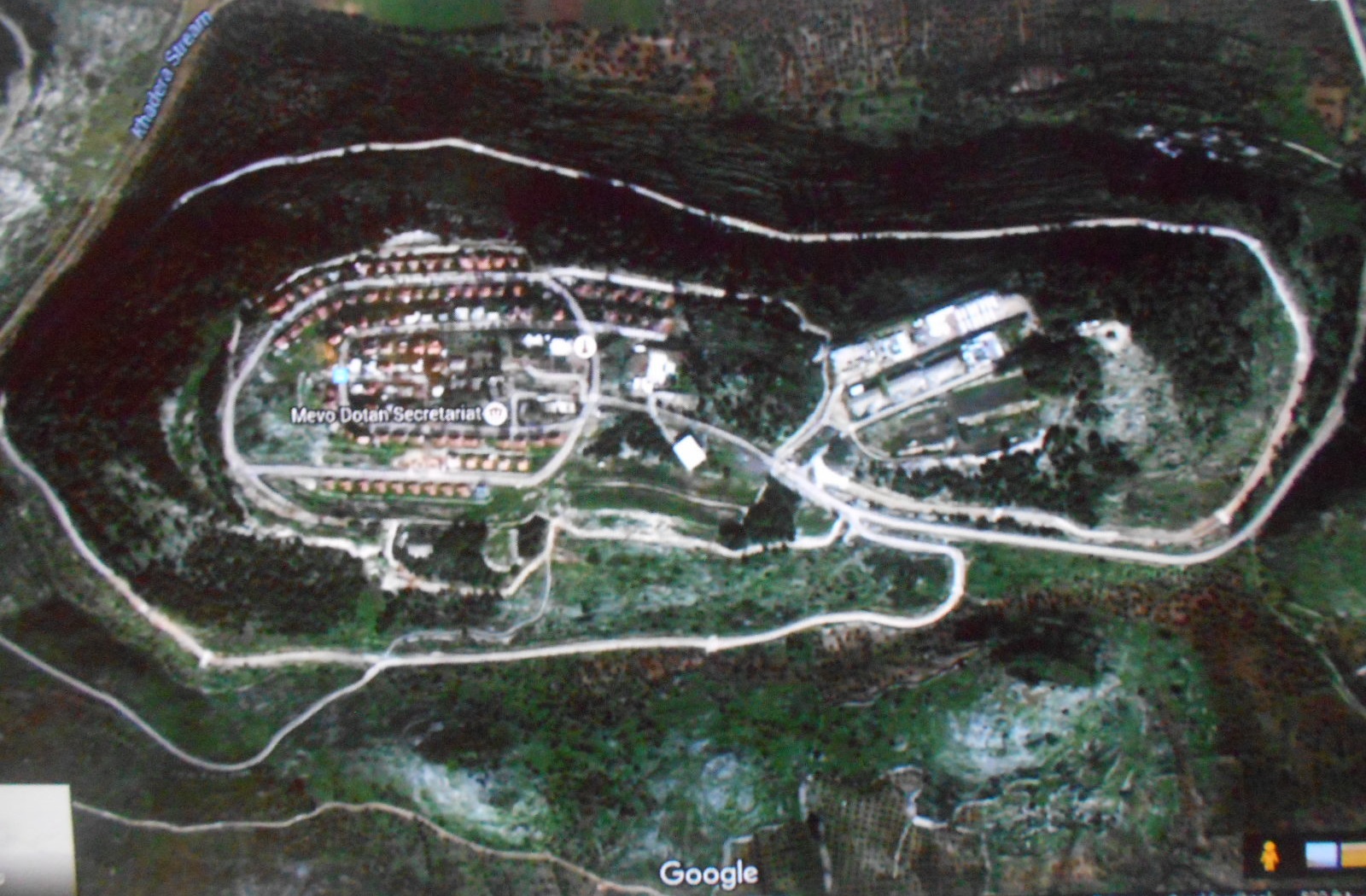
This is a street view of Mevo Dothan from Tel Dothan looking westward
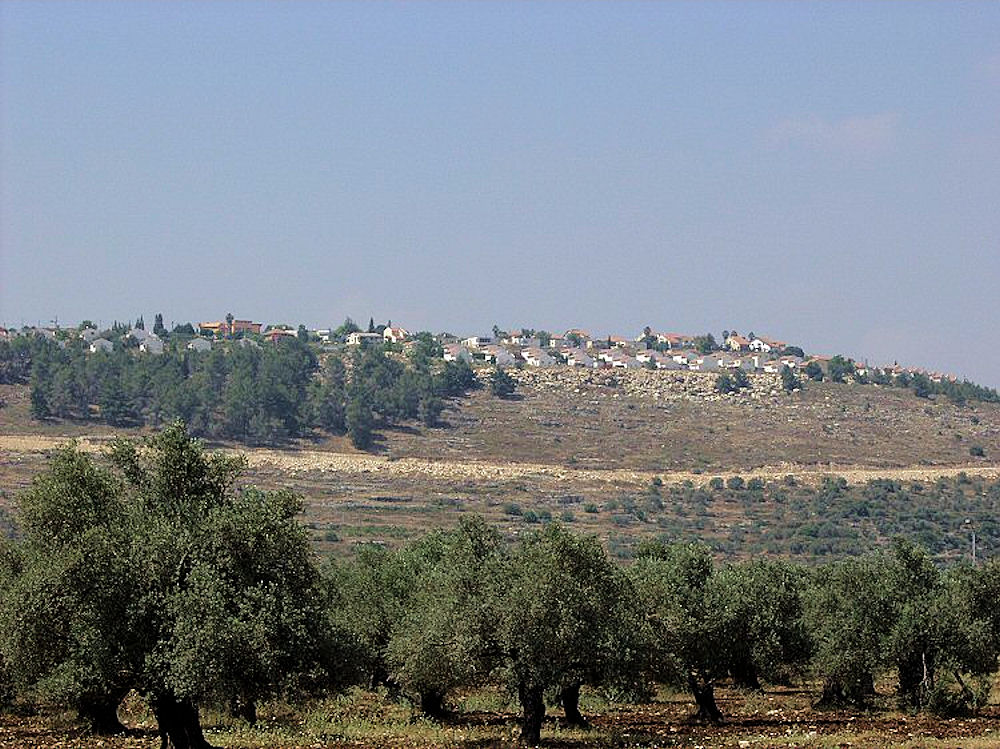
This is Mevo Dothan looking at the Dothan valley
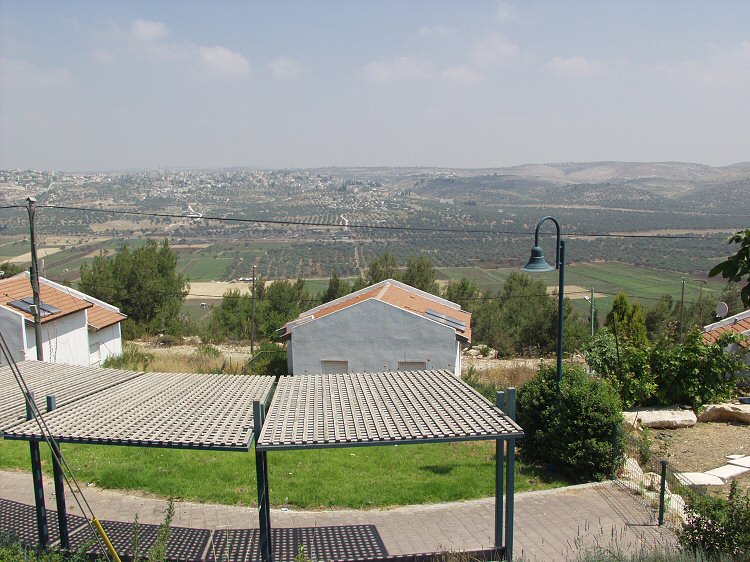
There was another account of Dothan, which was noted in the book of the Kings
2 Kings 6:8 Then the king of Syria warred against Israel, and took counsel with his servants, saying, In such and such a place shall be my camp. 9 And the man of the Elohim sent unto the king of Israel, saying, Beware that thou pass not such a place; for thither the Syrians are come down. 10 And the king of Israel sent to the place which the man of the Elohim told him and warned him of, and saved himself there, not once nor twice. 11 Therefore the heart of the king of Syria was sore troubled for this thing; and he called his servants, and said unto them, Will ye not shew me which of us is for the king of Israel? 12 And one of his servants said, None, my lord, O king: but Elisha, the prophet that is in Israel, telleth the King of Israel ta-the words that thou speakest in thy bed chamber. 13 And he said, Go and spy where he is, that I may send and fetch him. And it was told him, saying, Behold, he is in Dothan. 14 Therefore sent he thither horses, and chariots, and a great host: and they came by night, and compassed the city about. 15 And when the servant of the man of the Elohim was risen early, and gone forth, behold, an host compassed ta-the city both with horses and chariots. And his servant said unto him, Alas, my master! how shall we do? 16 And he answered, Fear not: for they that be with us are more than they that be with them. 17 And Elisha prayed, and said, hwhy, I pray thee, open ta-his eyes, that he may see. And hwhy opened ta-the eyes of the young man; and he saw: and, behold, the mountain was full of horses and chariots of fire round about Elisha. 18 And when they came down to him, Elisha prayed unto hwhy, and said, Smite ta-this people, I pray thee, with blindness. And he smote them with blindness according to the word of Elisha. 19 And Elisha said unto them, This is not the way, neither is this the city: follow me, and I will bring you to the man whom ye seek. But he led them to Samaria. 20 And it came to pass, when they were come into Samaria, that Elisha said, hwhy, open ta-the eyes of these men, that they may see. And hwhy opened ta-their eyes, and they saw; and, behold, they were in the midst of Samaria. 21 And the king of Israel said unto Elisha, when he saw them, My father, shall I smite them? Shall I smite them? 22 And he answered, Thou shalt not smite them: wouldest thou smite those whom thou hast taken captive with thy sword and with thy bow? Set bread and water before them, that they may eat and drink, and go to their master. 23 And he prepared great provision for them: and when they had eaten and drunk, he sent them away, and they went to their master. So the bands of Syria came no more into the land of Israel.
Verses eighteen through twenty
18 And they saw him from afar off and before coming near to them, and they conspired (deceived, dealt subtly at) him for the death of him [(for his death, to have him die, make him dead)]. 19 And they said a man to his brother, Behold, this is the beyond master (husband) of the calm-dreams comes. 20 And come now, and we will kill (smite) him, and we will cast (throw, send) him in one of the bore-wells, and we will say, An evil beast has eaten him: And we shall see what they shall become of his calm-dreams.
The brothers' anger that has been built up for some time is finally going to get the best of them.
The brothers said to say to their father in verse twenty that an "evil beast has eaten him". These words will come to pass, but not the way that it will be conventionally produced, as we will see later in this week's Torah portion chapter.
Also, Mark Biltz of El Shaddai Ministries noted that the brother who led the idea to slay Joseph, and based this notion of an account, which is noted in the Torah portion of Mikeyts, in the book of Genesis
Genesis 42:17 And gathered (added) them for keeping (guarding) of three days. 18 And Joseph said to them in the third day, This do, and live; I revere (give awe, fear) ta-The Elohim: 19 If you are honest, one of your brothers shall be imprisoned in the house of your keeping (guarding): and go of you, bring shever-grain at the famine of your houses: 20 And you will bring ta-your brother, the youngest, to me; and your words shall be confirmed (verified), and you shall not die. And they did so. 21 And they said each to his brother, Truly, we are guilty (shamed) upon our brother whom we saw the anguish (pain) of his soul in his beseeching (imploring) to us, and we did not listen; upon thus, this distress (anguish, pain) has come to us. 22 And Reuben answered them, to say, That not (to him) I say to you, to say, Do you not sin against the child; and you did not listen? And also behold, his blood is required. 23 And they did not know not that Joseph heard them; for the interceder was between them. 24 And turned from upon them, and wept; and returned to them, and spoke to them, and took from them ta-Simeon, and bound (imprisoned) him to their eyes.
Joseph let the brothers were let go except Simeon. The reason he was still imprisoned, because it is well determined that he was the one that made the suggestion to kill him. He was the one that was named by Leah, because she saw Jacob's hatred against her, which is noted in the Torah portion of Vay-Yeytsey, in the book of Genesis.
Genesis 29:31 And hwhy saw that Leah was hated, and opened ta-her womb: and Rachel was barren.... 33 And she conceived still, and she birthed a son; and she said, For hwhy had heard for I am hated, and has given to me ta-this one: And she called his name, Simeon.
Hence that spirit of hatred was passed onto him
Reuben's made the statement regarding Simeon, which is noted in the Torah portion of Mikeyts, in the book of Genesis
Genesis 42:22 And Reuben answered them, to say, That not (to him) I say to you, to say, Do you not sin against the child; and you did not listen?...
Mark Biltz noted that Simeon's name means "hear". Joseph put "Hear" in prison, because they did not "hear" Reuben back in Canaan to not harm Joseph. Hence, their "hearing" was imprisoned, and it was manifested by putting Simeon or "Hearing" in prison. Thank you Mark.
Verses twenty-one and twenty two
21 And Reuben heard (listened), and delivered him from their hands; and said, We will not strike (slaughter) a soul! 22 And Reuben said to them, Do you not shed (gush out, spill) blood! Cast (Throw, Send) him to this bore-well which is in the wilderness, and you do not send (cast, stretch forth, send forth) a hand on him; by that, shall deliver [(at delivering)] him from their hands to return him to his father.
Reuben was doing the right thing, but he did it with an ulterior motive by trying to get brownie points with his father to make up for what he did with his Bilhah, Rachel's female servant, also one of Jacob's wives, by laying with her. He wasn't doing it for Joseph, Jacob's favorite son, but for himself, and if Reuben saved Joseph, he presumed that he would get favor with his father as a step of restoration.
Verses twenty three and twenty four
23 And was, as the which Joseph came to his brothers, and they stripped ta-Joseph out of ta-his long coat (robe), ta-the long coat (robe) at the sole which was upon him; 24 And they took, and they cast (threw, sent) him to the bore-well: and the bore-well was empty. Water was not in him.
When the brothers stripped Joseph of his long coat, they stripped him of his authority, but they did not only had attacked Joseph, but also indirectly their father, Jacob, who had that coat made for Joseph. This is symbolically what the Jews and Romans did to Yeshua and to hwhy by stripping Yeshua of His Garments when they crucified Him on the cross. This could also apply to us as believers in which we could spiritually stripped of our authority, whether through our employment, our position in authority, or in our spiritual walk.
This incident against Joseph was making Joseph "hitting rock bottom" literally and spiritually by being thrown down into a dry bore-well. That dry well is a symbol of a believer of Yeshua who's well, or spirit, is dry. What Joseph experienced is how we as believers went through, or are going through, or could go through, as we hit rock bottom and we feel that we are helpless and there is no way out.
The only way that Joseph could look for help is up, but he knows that his brothers who are there, won't help him. Like us as believers, we can look up to our Abba Father, but our prayers are not heard.
These are images of a well that is located at Tel Dothan, which is presumably Joseph's well:
These images were taken in 1900
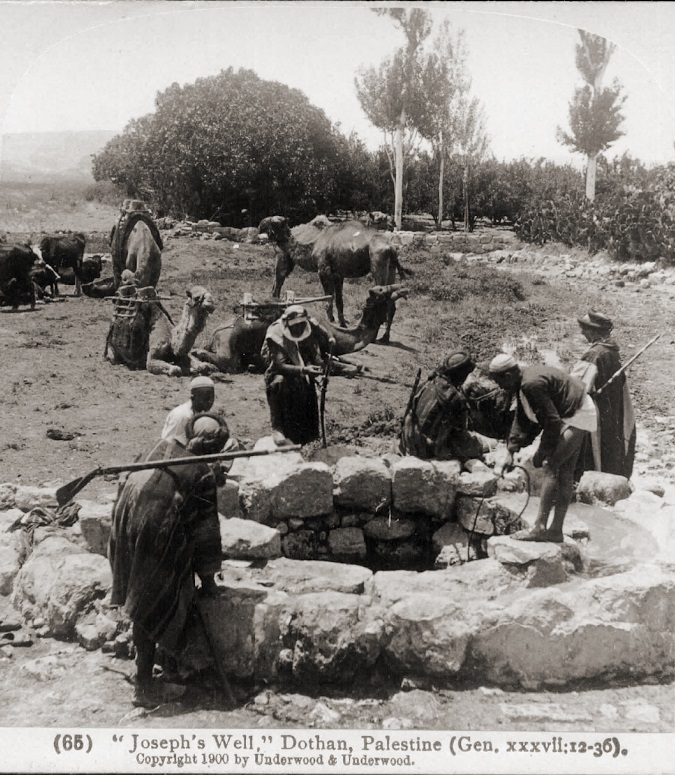
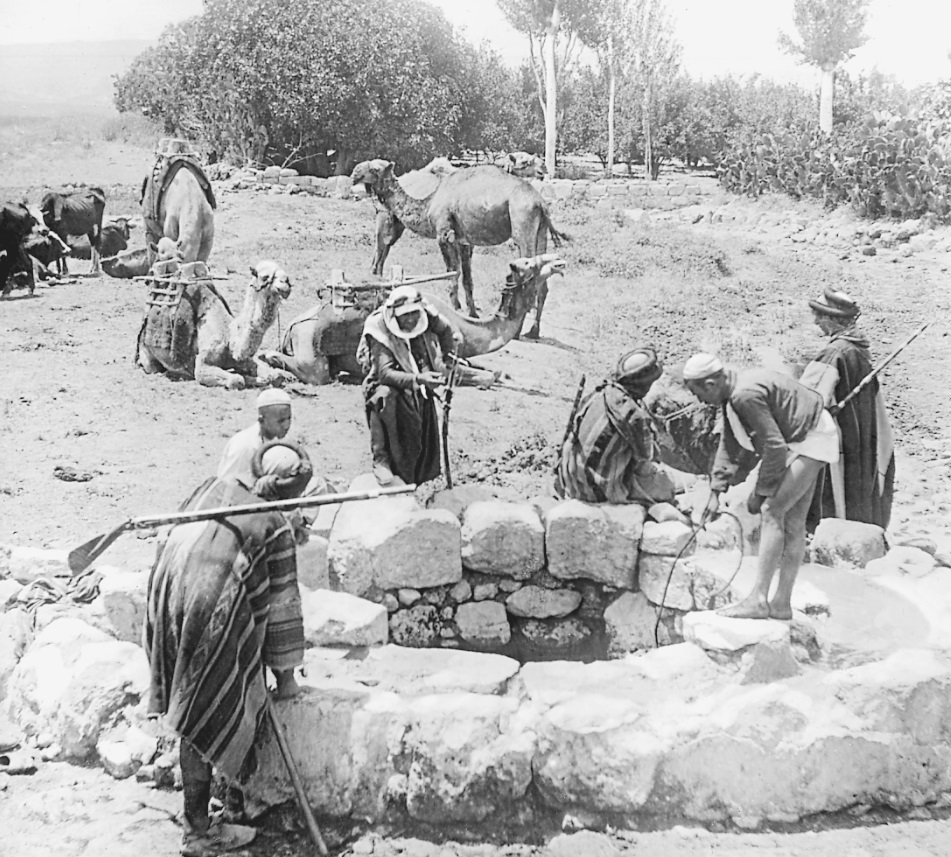
These images were taken between 1898 and 1914
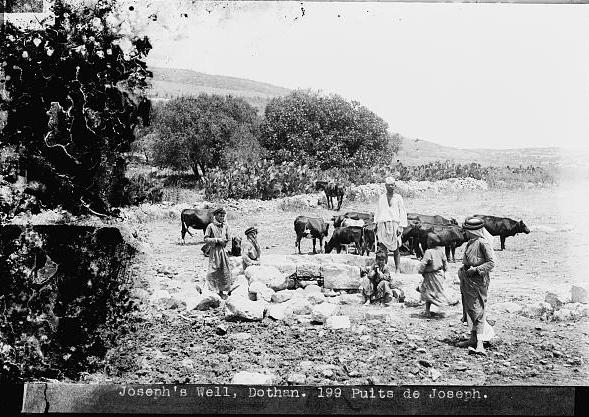
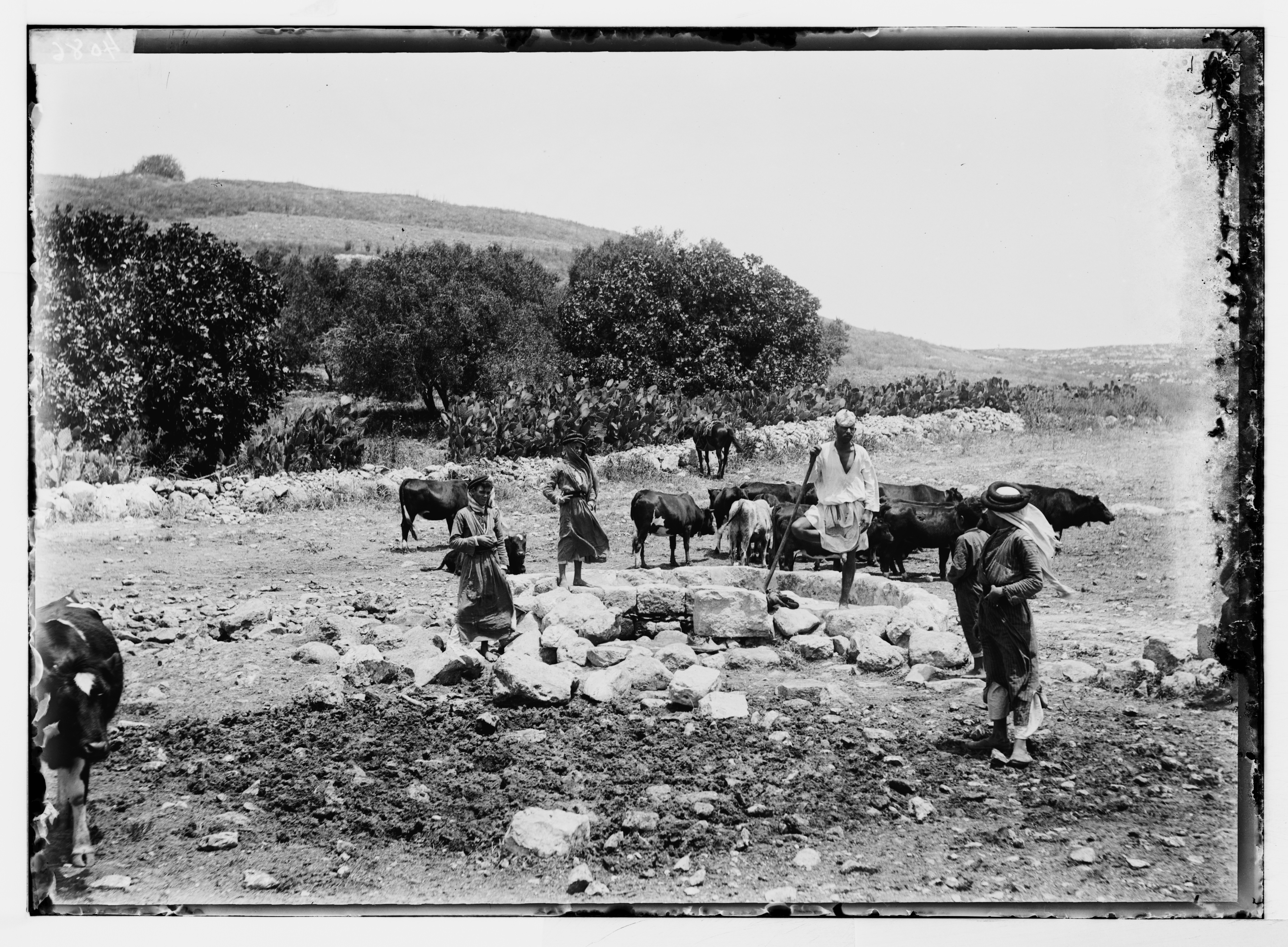
This image was taken in 1900
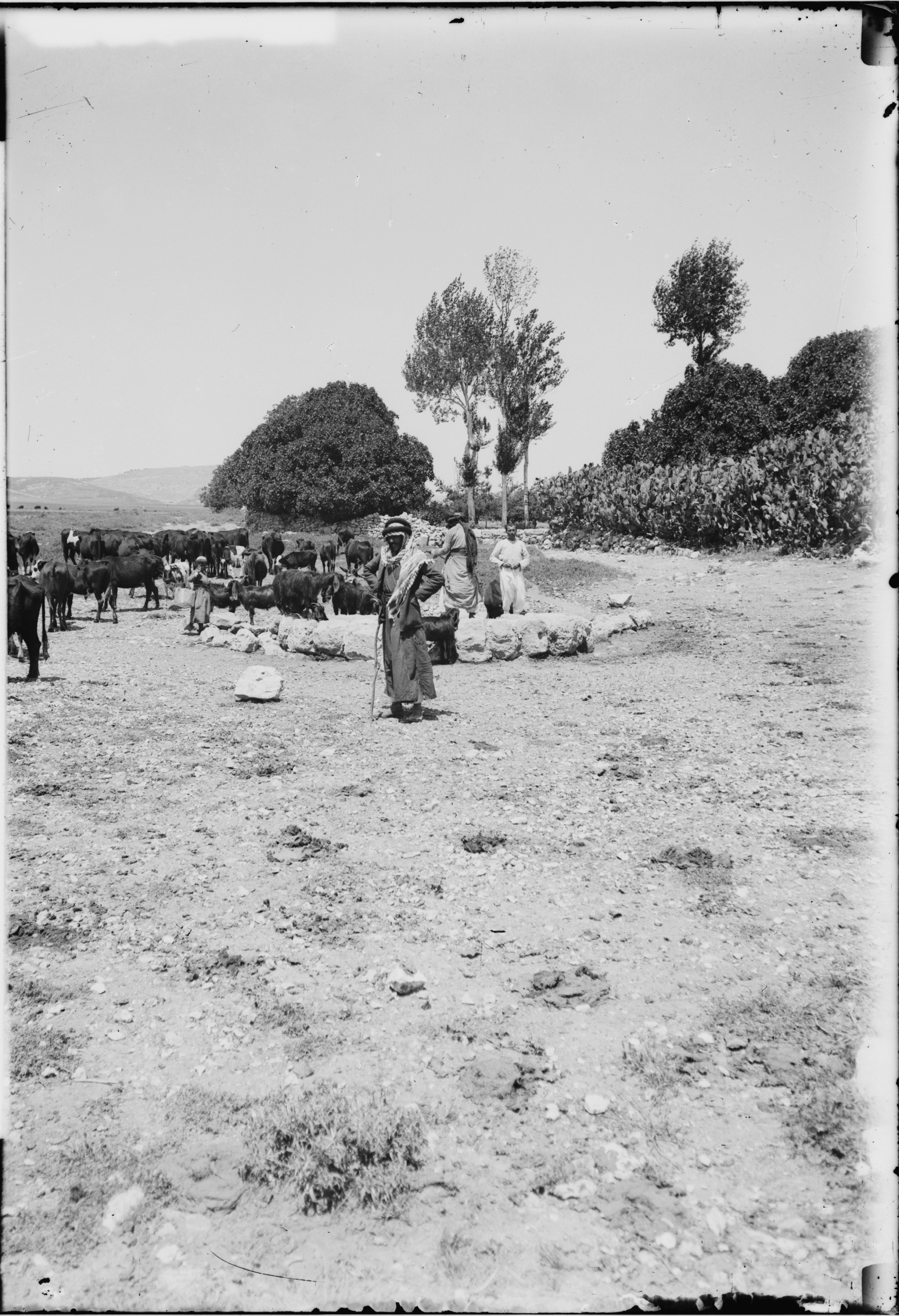
Verses twenty five through twenty seven
25 And they sat (dwelled) to eat bread: and they lifted up their eyes, and looked, and behold, a travelled caravan of Ishmaelim coming from Gilead, and their camels were going to descend (take down) to Egypt were bearing spices and balm and ladanum. 26 And Judah said to his brothers, What shall profit (gain) for we would kill (smite) of ta-our brother and conceal ta-his blood? 27 Come, and we will sell him to the Ishmaelim, and our hand, she shall not be against him; for he is our brother of our flesh. And his brothers, they listened.
After their cruel act of throwing their brother down callously into a dry well, the first thing they did in verse twenty five is to eat bread. Whether the brothers realized it or not, they have made a Food Covenant together that they would not kill Joseph, and that cannot be broken. As I noted in past Torah portions, a Food Covenant is the final act to seal an agreement, a covenant, or a vow, and once this Food Covenant is taken and eaten, it cannot be reversed or broken.
The Ismaelim are the descendants of Ishmael, Isaac's brother, in which they are also Isaac's nephews.
Also, when Judah said to his brothers to sell Joseph to the Ishmaelim, It is probable that Joseph most likely heard what they said, and he must have been scared to death. Also, Ephraim Judah of Lion and Lamb Ministries noted that in relation to ulterior motives, like Reuben for favor gain, Judah had an ulterior motive by selling Joseph for "monetary gain". If one noticed, the Jews are dominant in the monetary society. Has anyone heard of the Vanderbuilts? They are Jews, if not descendants of Judah, that are one of the powerful banking industries. Even about 3,500 years later, there are some Jews today that do things for "monetary gain". The act of Judah's idea to sell Joseph can be compared to Judah's descendants selling items at the Temple, which is noted in the Gospel of John
John 2:13 And the Jews' Passover was at hand, and Yeshua went up to Jerusalem, 14 And found in the Temple those that sold oxen and sheep and doves, and the changers of money sitting: 15 And when He had made a scourge of small cords, He drove them all out of the Temple, and the sheep, and the oxen; and poured out the changers' money, and overthrew the tables; 16 And said unto them that sold doves, Take these things hence; make not My Father's House an house of merchandise.
What Judah's did in his ulterior motives which was initiated in Joseph had passed down to his descendants, and those ulterior motives were manifested during Yeshua's time on earth, as in the example of the Jewish money exchangers which they used "offerings for "money"". See how many of the Jewish people still do it to this very day.
This is a map marking the Ishmaelim Caravan route passing through Dothan

This is a view of Dothan valley area where Joseph's brothers might have seen the Ishmaelim caravan
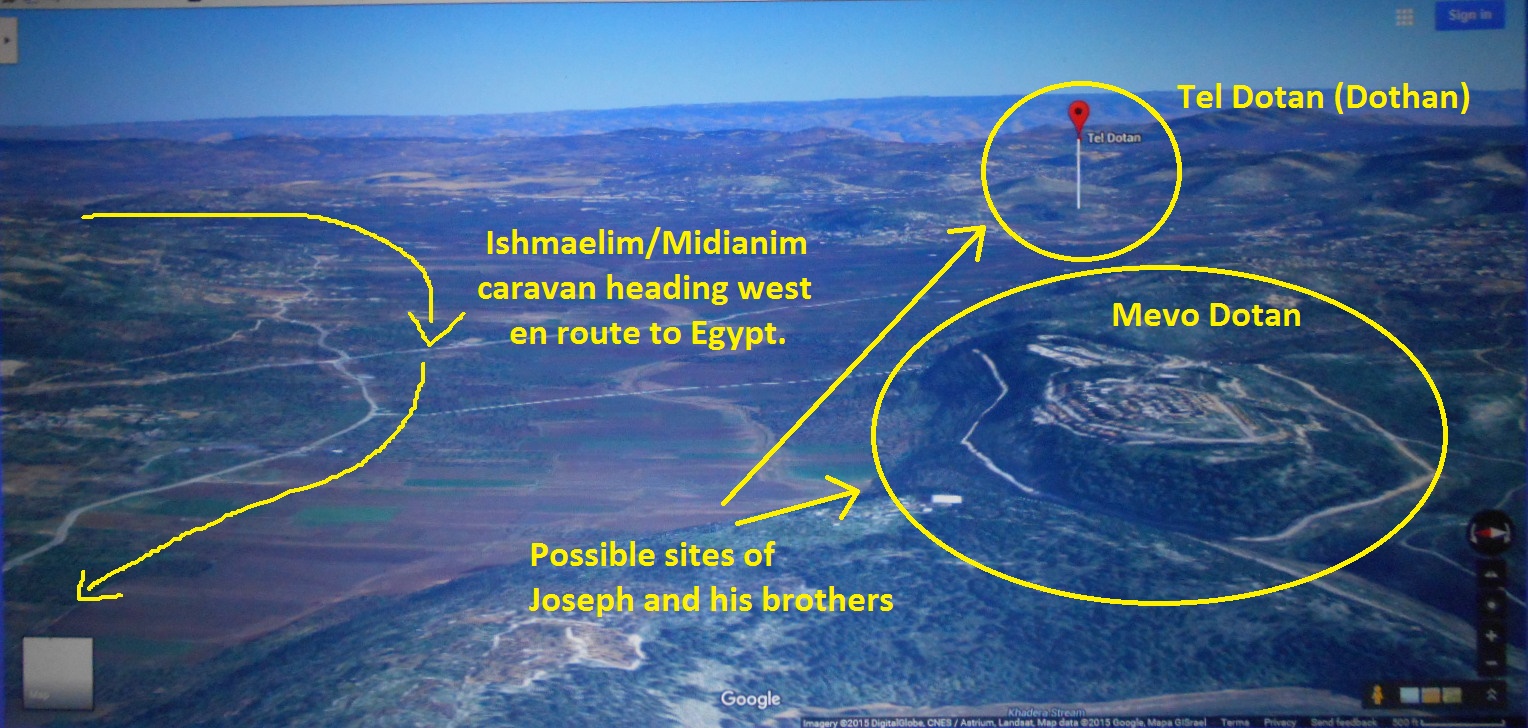
This is an image of Mevo Dothan view looking northward

Verse twenty eight
28 And men, Midianim, merchant (trading) men, they came over; and they drew, and they ascended ta-Joseph from the bore-well, and they sold ta-Joseph to the Ishmaelim in twenty of silver: and they brought (made go) ta-Joseph to Egypt.
Wait a minute! It was just mentioned that they were Ishmaelim, but the Midianim were not descendants of Ishmael, but of Abraham's third wife, Keturah, which is noted in the Torah portion of Khai-yey Sarah, in the book of Genesis
Genesis 25:1 And Abraham added and took a woman (wife) [(And was the adding of Abraham and the taking of a woman (wife))], and her name was Keturah. 2 And she birthed to him ta-Zimran, and ta-Jokshan, and ta-Medan, and ta-Midian, and ta-Ishbak, and ta-Shuah.
How did descendants of Midian get involved with the descendants of Ishmael? They somehow had to have known that they were relatives through their father Abraham and joined forces together. The descendants of Ishmael would provide the transportation for the merchandise and the descendants of Midian would provide the merchant expertise.
This was a "family act" against Joseph by his brothers and by his cousins. Like Yeshua was betrayed by his own brothers---> the Jews.
This act against Joseph was a prophetic act to what happened to Yeshua when Judas Iscariot sold Him for thirty pieces of silver, which is noted in the Gospel of Matthew
Matthew 26:14 Then one of the twelve, called Judas Iscariot, went unto the Chief Priests, 15 And said unto them, What will ye give me, and I will deliver Him unto you? And they covenanted with him for thirty pieces of silver. 16 And from that time he sought opportunity to betray Him.
It is ironic that Judas was his first name, the same name of Joseph's brother, Judah, who suggested in verse twenty six and twenty seven to sell Joseph.
Verses twenty three through twenty eight of this week's Torah portion is a scene, in the negative effect, compared to Eliezer and Rebekah, Jacob and Rachel, and Moses and the daughters of Midian.
Also, in another perspective, the fact that the brothers hated Joseph was part of hwhy's plan in Joseph's life to fulfill His ultimate goal for him to be the Viceroy of Egypt. We as believers in Messiah also are doing His will. Yeshua stated in the Gospels of John and Luke
John 15:18 If the world hate you, ye know that it hated Me before it hated you.
Luke 21:17 And ye shall be hated of all men for My Name's sake.
Luke 14:26 If any man come to Me, and hate not his father, and mother, and wife, and children, and brethren, and sisters, yea, and his own life also, he cannot be My disciple.
The apostle Stephen gave testimony of this week's Torah portion passage, which is noted in the book of the Acts
Acts 7:8 And he gave him the covenant of circumcision: and so Abraham begat Isaac, and circumcised him the eighth day; and Isaac begat Jacob; and Jacob begat the twelve patriarchs. 9 And the patriarchs, moved with envy, sold Joseph into Egypt: but hwhy was with him,
Verse twenty nine
29 And Reuben returned to the bore-well; and behold, Joseph was not in the bored-well; and rented ta-his garment.
Reuben's action to ripping his garment could have been a precursor for the Levitical High Priest not to rend his garment, which is noted in the Torah portion of Emor, in the book of Leviticus
Leviticus 21:10 And the Great (High) Priest from his brethren which has the Oil of the Anointing poured on his head, and has ta-his hand filled (consencrated) has clothed on ta-the Garments, shall not loose (uncover) ta-his head, and shall not rent his Garments;
When the High Priest rented his High Priest garment, he nullifies his Priesthoodship. The example of that is when Caiaphus, the High Priest at the time of Yeshua, rented his garment in front of Yeshua, which noted in the Gospel of Matthew
Matthew 26:60 But found none: yea, though many false witnesses came, yet found they none. At the last came two false witnesses, 61 And said, This Fellow said, I am able to destroy the Temple of hwhy, and to build it in three days. 62 And the High Priest arose, and said unto Him, Answerest Thou nothing? What is it which these witness against Thee? 63 But Yeshua held His Peace. And the High Priest answered and said unto him, I adjure thee by the Living Elohim, that Thou tell us whether Thou be the Messiah, the Son of Elohim. 64 Yeshua saith unto him, Thou hast said: nevertheless I say unto you, Hereafter shall ye see the Son of Man sitting on the Right Hand of Power, and coming in the clouds of the heavens. 65 Then the High Priest rent his clothes, saying, He hath spoken blasphemy; what further need have we of witnesses? behold, now ye have heard His blasphemy.
When Caiaphas rented his High Priest garment, he nullified his High Priesthoodship. Yeshua was next in line to the High Priesthood, because He bore a garment without a seam. It could be possible that Joseph's long coat was also without seam. That would make his long coat more unique.
When Reuben rented his garment, whether he knew it or not, he nullified his firstborn right through that renting, and by Biblical rights, the next born, in Jacob's family would be the next firstborn by his other wife, Rachel, and the firstborn in her family was----> Joseph! Also, in Rebuen renting his garment, he nullified his premise and ulterior motives in getting Joseph out of the bore-well.
Also, Reuben's plan did not work, because as mentioned prior that he had an ulterior motive, and hwhy did not honor his ulterior motive.
Verse thirty
30 And returned to his brothers, and said, The lad (boy), he is not; and I, where shall I go?
One can play from the movie scene "Gone With The Wind" by the brothers replying "Frankly, Reuben, we don't give a damn".
Verse thirty-one
31 And they took ta-the long coat (robe) of Joseph, and they slaughterd a goat of the kids, and they dipped ta-the long coat (robe) in the blood;
This could be compared to Yeshua whose Body was slaughtered and had been covered completely in blood at the cross.
Verse thirty two
32 And they sent ta-the long coat (robe) that of the sole, and they came to their father; and they said, We have found this: Discern now the long coat (robe), is she of your son, if not.
Notice the brothers said to their father "your son" instead of "our brother", like as if they alienated themselves from Joseph being part of "their family" or "their sibling" or "Joseph". Very "Labanesque" in how they carefully worded their intent.
Verse thirty three
33 And knew her, and said, The long coat (robe) of my son! An evil beast has eaten him! Torn, Joseph is torn!
Notice that Jacob said the same words that the brothers spoke in verse twenty in this week's Torah portion chapter
Genesis 37:20 And come now, and we will kill (smite) him, and we will cast (throw, send) him in one of the bored-wells, and we will say, An evil beast has eaten him: And we shall see what shall become of his calm-dreams.
Looking at the words:
Brothers: 20 ...An evil beast has eaten him:
Jacob: 33 ...an evil beast has eaten him!
The bread that the brothers ate after they threw Joseph into the dry well was a Food Covenant. The words they spoke was part of that Food Covenant. The brothers reaped what they sowed by having their father speak the exact same words they said in which they were going to say to their father.
Verse thirty four
33 And knew her, and said, The long coat (robe) of my son! An evil beast has eaten him! Torn, Joseph is torn!
Jacob's renting of his clothes for his beloved son was a type and shadow of the account between hwhy, the Heavenly Father, and Yeshua, which are noted in the Gospels of Mark and Luke
Mark 15:37 And Yeshua cried with a loud Voice, and gave up the Spirit. 38 And the Veil of the Temple was rent in twain from the top to the bottom.
Luke 23:44 And it was about the sixth hour, and there was a darkness over all the earth until the ninth hour. 45 And the sun was darkened, and the Veil of the Temple was rent in the midst. 46 And when Yeshua had cried with a loud Voice, He said, Father, into Thy Hands I commend My Spirit: and having said thus, He gave up the Spirit.
What Jacob did for his beloved son, Joseph, was symbolic to hwhy, the Heavenly Father, who was residing in the Temple, and when Yeshua died, the Heavenly Father mourned for His Beloved Son's death, by symbolically renting His Garment via the Veil of His Temple.
Verse thirty five
35 And all of his sons and all of his daughters, they arose to comfort him; and refused to be comforted of them (to their comforting); and said, For I will descend to my son bewailing (lamenting) to Sheol [(I will descend (go down) to Sheol bewailing (lamenting) for my son)]. And his father wept of him.
This could be compared to when the sons of Benjamin up to the age of two were killed by Herod, and the scripture saying Rachel could not comfort her sons, because they were not, which is noted in the Gospel of Matthew
Matthew 2:16 Then Herod, when he saw that he was mocked of the wise men, was exceeding wroth, and sent forth, and slew all the Sons that were in Bethlehem, and in all the coasts thereof, from two years old and under, according to the time which he had diligently enquired of the wise men. 17 Then was fulfilled that which was spoken by Jeremy the prophet, saying, 18 In Rama was there a voice heard, lamentation, and weeping, and great mourning, Rachel weeping for her sons, and would not be comforted, because they are not.
Looking at the word SHEOL
The Hebrew word for Sheol is "Sh'ohl"- Shin, Aleph, Lamed (las). It is from Strong's Concordance number 7585, and its definition
From H7592; hades or the world of the dead (as if a subterranian retreat), including its accessories and inmates: - grave, hell, pit.
from 7592 "shah'ahl" or "shah'eyl" (las), and its definition
A primitive root; to inquire; by implication to request; by extension to demand: - ask (counsel, on), beg, borrow, lay to charge, consult, demand, desire, X earnestly, enquire, + greet, obtain leave, lend, pray, request, require, + salute, X straitly, X surely, wish.
Sheol means "Grave".
This is where we our modern English word "soul". Sheol is called "the Place for the Soul".
Verse thirty six
36 And the Midianim, they sold him to Egypt to Potiphar, an officer (eunich) of Pharaoh, Prince of the Executioners.
Looking at the word POTIPHAR
The Hebrew word for Potiphar is "Poh-tee-phahr"- Peh, Tet, Yod, Peh, Resh (rpyjp). It is from Strong's Concordance number 6318, and its definition
Of Egyptian derivation; Potiphar, an Egyptian: - Potiphar.
It does not show a meaning, but looking at another name Putiel this is what we find:
The Hebrew word for Putiel is "Poo-tee-eyl", Vav, Tet, Yod, Aleph, Lamed (layjwp). It is from Strong's Concordance number 6317, and its definition
From an unused root (probably meaning to disparage) and H410; contempt of God; Putiel, an Israelite: - Putiel.
The last part of Potiphar's last name (rp) could be taken from "parar" (rrp). It is from Strong's Concordance number 6565, and its definition
A primitive root; to break up (usually figuratively, that is, to violate, frustrate): - X any ways, break (asunder), cast off, cause to cease, X clean, defeat, disannul, disappoint, dissolve, divide, make of none effect, fail, frustrate, bring (come) to nought, X utterly, make void.
Potiphar's name could potentially mean "Contempt Violation".
When Potiphar's wife lied against Joseph to her husband, Potiphar, he had Joseph in "contempt violation"- hence Potiphar's name.
I am still looking into his name, but I have a thought which will be implied later in the Torah.
Looking at the word OFFICER (EUNICH)
The Hebrew word for Officer (Eunich) is "Sah-rees"- Samek, Resh, Yod, Samek (oyro). It is from Strong's Concordance number 5631, and its definition
From an unused root meaning to castrate; a eunuch; by implication valet (especially of the female apartments), and thus a minister of state: - chamberlain, eunuch, officer. Compare H7249.
It is possible that Potiphar was castrated, which I will explain later.
Notice that Jacob's name is first mentioned as "Israel" in verse one when he was talking to Joseph, but at the end of the chapter, he is known as "Jacob" when presuming that Joseph died. This means that when he is called "Israel", it refers to the "eternal" and "kingdom" purpose, and when he is called "Jacob", it refers to the "temporal" and "wordly" purpose.
This would be the last time that Jacob was called "Israel" for a long time. I will reveal back to this account in a later Torah portion when his name goes back to Israel and why.
CHAPTER 38
Genesis 38:1-30
Gen 38:1 And was in that time, and Judah descended (went down) from ta his brothers, and bent away (inclined, stretched forth) unto an Adullamite, and his name was Hirah. 2 And Judah saw there a daughter of a Canaanite man, and his name was Shuah; and took her, and went to her. 3 And she conceived, and she birthed a son; And called ta-his name, Er. 4 And she conceived still, and she birthed a son; And she called ta-his name, Onan. 5 And she added still, and she birthed a son; And she called ta-his name, Shelah: and was in Chezib in birthing her of him.
6 And Judah took a woman (wife) for Er, his firstborn, and her name was Tamar. 7 And Er, firstborn of Judah, was evil in the Eyes of hwhy; and hwhy made him die. 8 And Judah said to Onan, Go to the woman (wife) of your brother, and shall have her of a brother-in-law role (husband-brother role) [(levirate marry her)], and raise seed for your brother. 9 And Onan knew for the seed shall not belong to him; and was, but was going in to the woman (wife) of his brother, and was wasted (spilled, ruined) to the Earth, failing at giving seed for his brother. 10 And which was done was evil in the Eyes of hwhy: and made him die also. 11 And Judah said to Tamar, his daughter-in-law, Dwell a widow at the house of your father until Shelah, my son, is grown (greatened): for had said, Lest he shall die also as his brothers. And Tamar, she went and she dwelled at the house of her father.
12 And the days, they were many, and the daughter of Shuah, woman (wife) of Judah, she died; and Judah was comforted, and ascended upon the shearers of his flock, he and Hirah, his neighbor (friend), the Adullamite, to Timnath. 13 And was told (declared) to Tamar, to say, Behold, your father-in-law is ascending to Timnath to shear his flock. 14 And she removed the garments of her widowhood from upon her, and she concealed herself in a veil, and she was veilwrapped, and she sat in the entrance of Enaim which is upon the way to Timnath; for saw for Shelah was grown (greatened), and was not given of her to him for a woman (wife). 15 And Judah saw her, and reckoned (considered, presumed) her to be a harlot (an adulterer); for had concealed her face. 16 And bent away (inclined, stretched forth) to the way to her, and said, Come (Bring) now, I will go to you; for not had known for she was his daughter-in-law. And she said, What will you give to me for you will go in to me? 17 And said, I, I will send a young goat of the kids from the flock. And she said, If you will give a pledge (exchange) until you send. 18 And said, What is the pledge (exchange) which I shall give to you? And she said, Your signet ring (seal ring), and your thread bracelet, and your staff which is in your hand. And gave to her, and gone to her, and she was conceived (pregnant) by him. 19 And she arose, and she left, and she removed her veil from upon her, and she wrapped (clothed) on the garments of her widowhood.
20 And Judah sent ta-the young goat of the kids on the hand of his neighbor (friend), the Adullamite, to take back the pledge (exchange) from the hand of the woman: and did not find her. 21 And asked ta-the men of her place, to say, Where is the sacred prostitute she was in the Enaim upon the way? And they said, She has not a sacred prostitute in this (here). 22 And returned to Judah, and said, I have not found her; and also the men of the place, they said, She has not a sacred prostitute in this (here). 23 And Judah said, she shall take for herself, lest we shall be for despisement (disrespect): behold, I sent this young goat, and you did not find her.
24 And was according to [(as of)] three renewed months, and was told (declared) to Judah, to say, Tamar, your daughter-in-law, did harlotry (adultery); and also, behold, is pregnant by whoredom (adultery). And Judah said, Bring her out, and she shall be burned. 25 She was brought out, and she was sent to her father-in-law, to say, I have been conceived (pregnant) by the man which these belong to him: And she said, Discern now to whose are these: the signet ring (seal ring), and the thread bracelet, and the staff. 26 And Judah discerned, and said, Righteous of her than me [(Her righteousness than I)]; for upon thus I did not give her to Shelah, my son. And did not add still to know her.
27 And was in the time to her birthing, and behold, twins were in her womb. 28 And was, in her birthing, and a hand gave out: and the midwife, she took, and she tied scarlet upon his hand, to say, This came out first. 29 And was, as returning (withdrawing) his hand, and behold, his brother came out: and she said, What have you breached out (broken out) upon yourself a breach (break)? And called his name, Pharez. 30 And afterward, his brother which the scarlet was upon his hand came out: And called his name, Zarah.
(NOTE: Not all verses will have comments)
Verse one
1 And was in that time, and Judah descended (went down) from ta his brothers, and bent away (inclined, stretched forth) unto an Adullamite, and his name was Hirah.
Looking at the word HIRAH
The Hebrew word for Hirah is "Khee-rah"- Khet, Yod, Resh, Heh (hryx). It is from Strong's Concordance number 2437, and its defintion
From H2357 in the sense of splendor; Chirah, an Adullamite: - Hirah.
from 2357 "khah-rahr" (rrx), and its definition
A primitive root; to blanch (as with shame): - wax pale.
Hirah means "Splendor".
Verse two
2 And Judah saw there a daughter of a Canaanite man, and his name was Shuah; and took her, and went to her.
Looking at the word SHUAH
The Hebrew word for Shuah is "Shoo-ah"- Shin, Vav, Ayin (ews). It is from Strong's Concordance number 7770, and its definition
The same as H7769; shua, a Canaanite: - Shua, Shuah.
from 7769 "shoo-ah" (ews), and its definition
From H7768; a halloo: - cry, riches.
from 7768 "shah-vah" (ews), and its definition
A primitive root; properly to be free; but used only causatively and reflexively to halloo (for help, that is, freedom from some trouble): - cry (aloud, out), shout.
Shuah means "Cry", "Shout" as well as "Free".
Judah's baby must have "cried" a lot. Also, based on Shuah's name, in Judah's circumstances, it looks like that Judah felt "free" to be away from his father, Jacob, from Jacob's continuous mourning for Joseph.
Verse three
3 And she conceived, and she birthed a son; And called ta-his name, Er.
Looking at the word ER
The Hebrew word for Er is "Eyr"- Ayin, Resh (re). It is from Strong's Concordance number 6147, and its definition
From H5782; watchful; Er, the name of two Israelites: - Er.
from 5782 "oor" (rwe), and its definition
A primitive root (rather identical with H5783 through the idea of opening the eyes); to wake (literally or figuratively): - (a-) wake (-n, up), lift up (self), X master, raise (up), stir up (self).
from 5783 "oor" (rwe), and its definition
A primitive root; to (be) bare: - be made naked.
In a way, Er's name means "Expose".
Verse four
4 And she conceived still, and she birthed a son; And she called ta-his name, Onan.
Looking at the word ONAN
The Hebrew word for Onan is "Oh-nahn"- Aleph, Vav, Nun, Nun Sophit (Nnwa) is from Strong's Concordance number 209, and its definition
A variation of H207; strong; Onan, a son of Judah: - Onan.
from 207 "oh-noh" (wnwa or wna), and its definition
From H202; strong; Ono, a place in Palestine: - Ono.
from 202 "ohn" (Nwa), and its definition
Probably from the same as H205 (in the sense of effort, but successful); ability, power, (figuratively) wealth: - force, goods, might, strength, substance.
from 205 "ah-vehn" (Nwa), and its defintion
From an unused root perhaps meaning properly to pant (hence to exert oneself, usually in vain; to come to naught); strictly nothingness; also trouble, vanity, wickedness; specifically an idol: - affliction, evil, false, idol, iniquity, mischief, mourners (-ing), naught, sorrow, unjust, unrighteous, vain, vanity, wicked (-ness.) Compare H369.
Onan means "Strong", but it could also mean "Evil", as we will see later.
Verse five
5 And she added still, and she birthed a son; And she called ta-his name, Shelah: and was in Chezib in birthing her of him.
Chezib is today Chezib (Aczib). It is about ten miles Northwest of Hebron
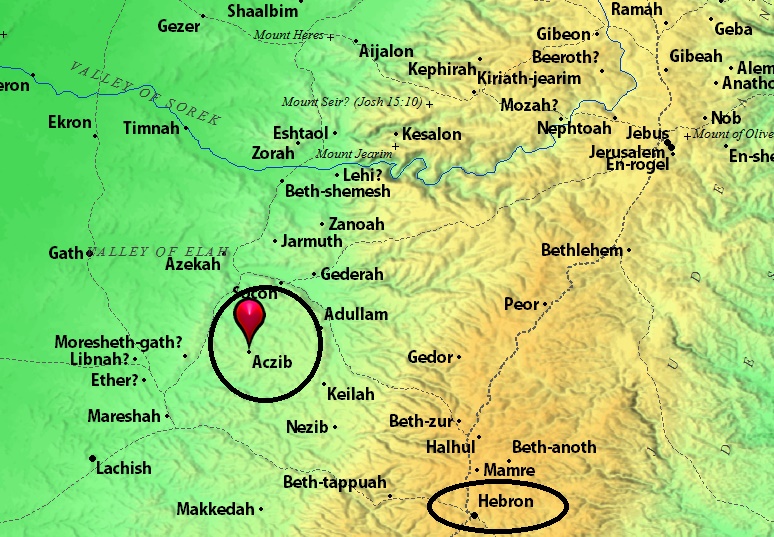
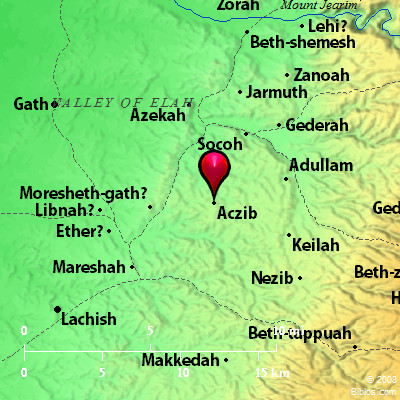
Looking at the words:
SHELAH
The Hebrew word for Shelah is "Shey-lah"- Shin, Lamed, Heh (hls). It is from Strong's Concordance number 7956, and its defintion
The same as H7596 (shortened); request; Shelah, the name of a postdiluvian patriarch and of an Israelite: - Shelah.
from 7596 "shey-lah" (hls), and its definition
From H7592; a petition; by implication a loan: - loan, petition, request.
from 7592 "sha'al" or "shah-eyl" (las), and its defintion
A primitive root; to inquire; by implication to request; by extension to demand: - ask (counsel, on), beg, borrow, lay to charge, consult, demand, desire, X earnestly, enquire, + greet, obtain leave, lend, pray, request, require, + salute, X straitly, X surely, wish.
It sounds like Judah "inquired" hwhy regarding this child.
CHEZIB
The Hebrew word for Chezib is "Kheh-zeev"- Kaph, Zayin, Yod, Bet (byzk). It is from Strong's Concordance number 3580, and its definition
From H3576; falsified; Kezib, a place in Palestine: - Chezib.
from 3576 "kah-zahv" (bzk), and its definition
A primitive root; to lie (that is, deceive), literally or figuratively: - fail, (be found a, make a) liar, lie, lying, be in vain.
Chezib means "Vain" or "Fail".
This is probably why Judah had to "inquire" his wife's pregnancy for Shelah, because they were in a "vain" location. Sounds like us as believers if we are in a vain place where we need to inquire our Heavenly Father. Also, Chezib means "decieve" which we will see in context later.
Verse six
6 And Judah took a woman (wife) for Er, his firstborn, and her name was Tamar.
Notice that it was Judah, Er's father, that became Er's matchmaker. I would not be surprised that the Jews got this tradition of matchmaking based on this verse.
Looking at the word TAMAR
The Hebrew word for Tamar is "Tah-mahr"- Tet, Mem, Resh (rmj) is from Strongs's Concordance number 8559, and its defintion
The same as H8558; Tamar, the name of three women and a place: - Tamar.
from 8558 "tah-mahr", and its definition
From an unused root meaning to be erect; a palm tree: - palm (tree).
Tamar means "Erect".
In other words, she had an "erected posture" that influence Judah to take for his son, Er for a wife. This is the same Hebrew word used for the seventy palms in Elim where the Israelites settled for a bit sometime after crossing the Sea of Reeds.
Putting all of the words of the names and places together, it makes a phrase:
"One of splendor cries out freely to expose the evil who inquire deception by one being erected"
This reveals a prophecy of Yeshua who was of splendor that cried out to expose the evil of the Jewish authorities who inquired in deceit to crucify Him on the cross.
!!!hwhy Kl dbk
Verse seven
7 And Er, firstborn of Judah, was evil in the Eyes of hwhy; and hwhy made him die.
The reason hwhy killed him, because his name means "expose", which means he is exposing things. He probably wanted to "expose" Tamar, and hwhy did not like that, and killed him for it. So in playing of his name Erhead became dead Er.
Verses eight through ten
8 And Judah said to Onan, Go to the woman (wife) of your brother, and shall have her of a brother-in-law role (husband-brother role) [(levirate marry her)], and raise seed for your brother. 9 And Onan knew for the seed shall not belong to him; and was, but was going in to the woman (wife) of his brother, and was wasted (spilled, ruined) to the Earth, failing at giving seed for his brother. 10 And which was done was evil in the Eyes of hwhy: and made him die also.
Verse eight of this week's Torah portion passage reveals to us that was the a brother-in-law act, which was most likely the culture of the day in the Middle East.
Onan's name means strong, but Judah knew that his "strong seed" will be relating to him. Notice also the searching out of his name also means "wicked" and "evil". Onan did an "evil" act by spilling his seed to the ground, and hwhy saw the "evil" Onan did, He killed him.
Verse eleven
11 And Judah said to Tamar, his daughter-in-law, Dwell a widow at the house of your father until Shelah, my son, is grown (greatened): for had said, Lest he shall die also as his brothers. And Tamar, she went and she dwelled at the house of her father.
One could say that Judah made a "Shelah Chezib" or in Hebrew "Vain Petition" to Tamar, in which Chezib, meaning "vain", was the place of Shelah's birth as noted in verse five of this week's Torah portion's chapter, where Er was born in the land of Chezib, in the Hebrew also means "deception", Judah deceived" preventing Tamar from having his third and now only son left to be her husband.
Verse twelve
12 And the days, they were many, and the daughter of Shuah, woman (wife) of Judah, she died; and Judah was comforted, and ascended upon the shearers of his flock, he and Hirah, his neighbor (friend), the Adullamite, to Timnath.
Timnath, or Timnah, is Today Tel Batash. It is about ten miles North-Northest of Cazib, modern day Achzib, and about twenty miles Nortwest of Hebron
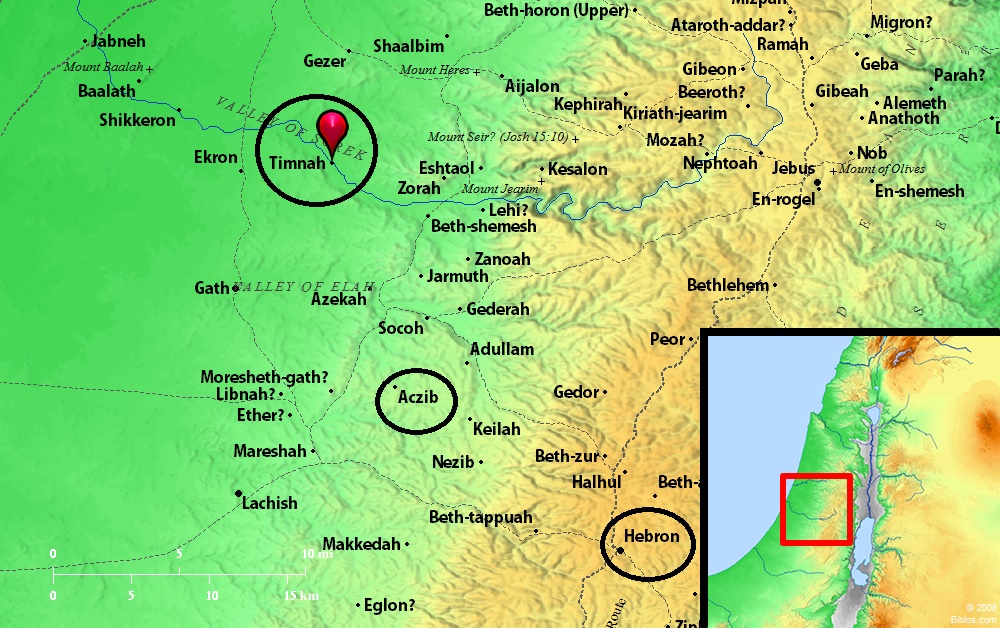
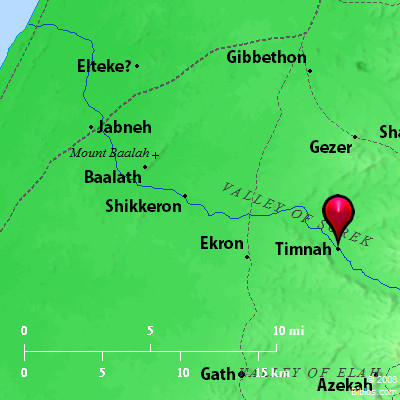
These are images of the location of remains of the buildings, walls, and olive presses at Timnath (Tel Batash)
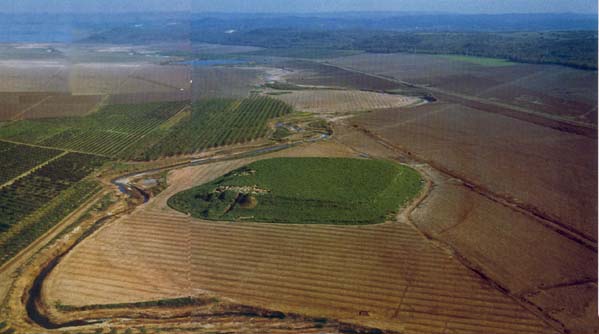
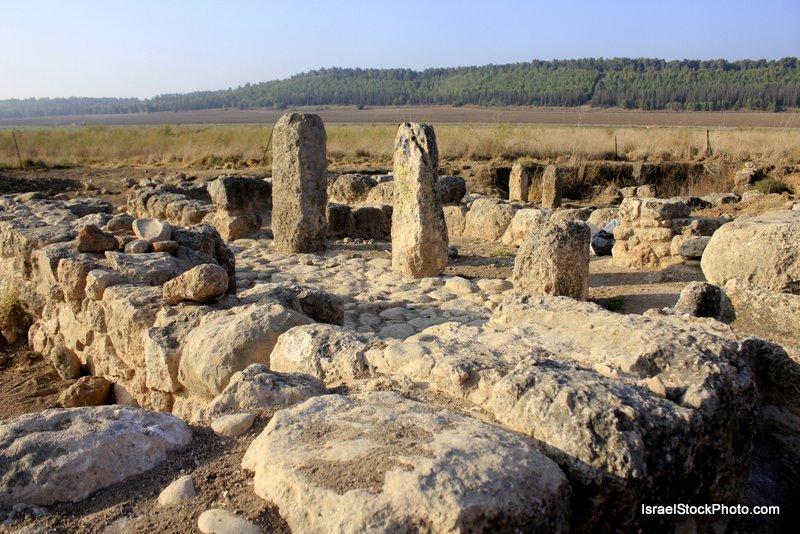
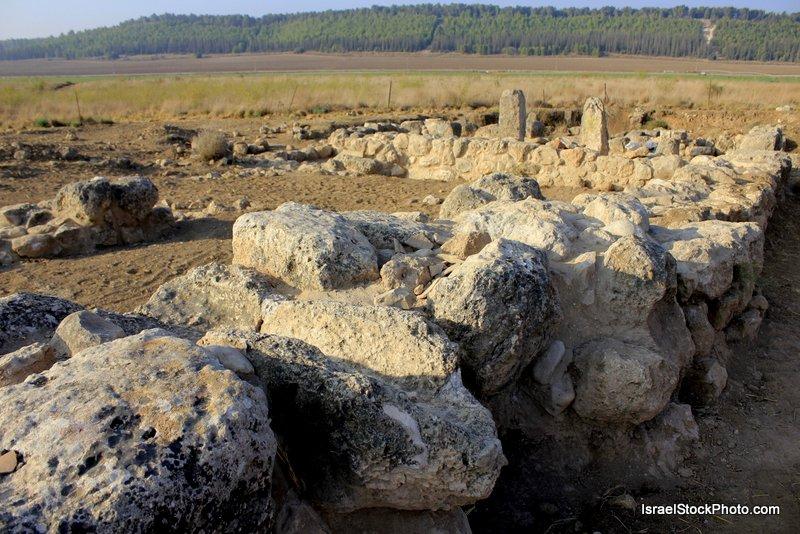
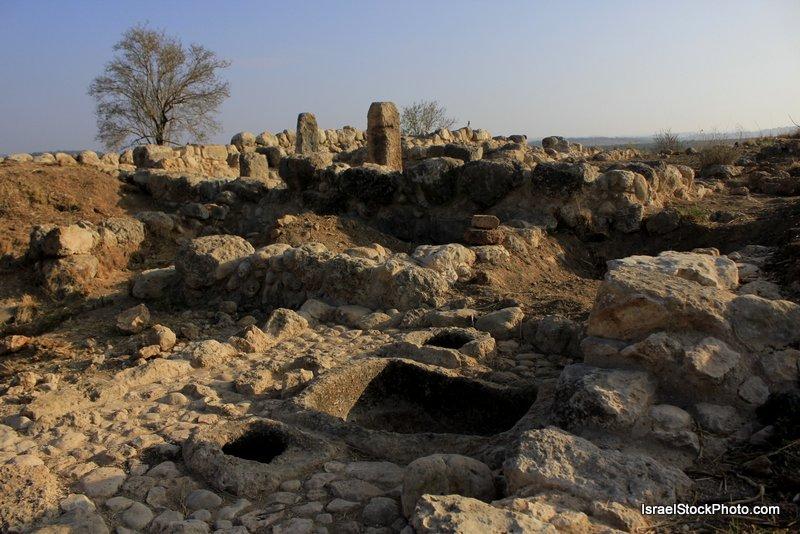
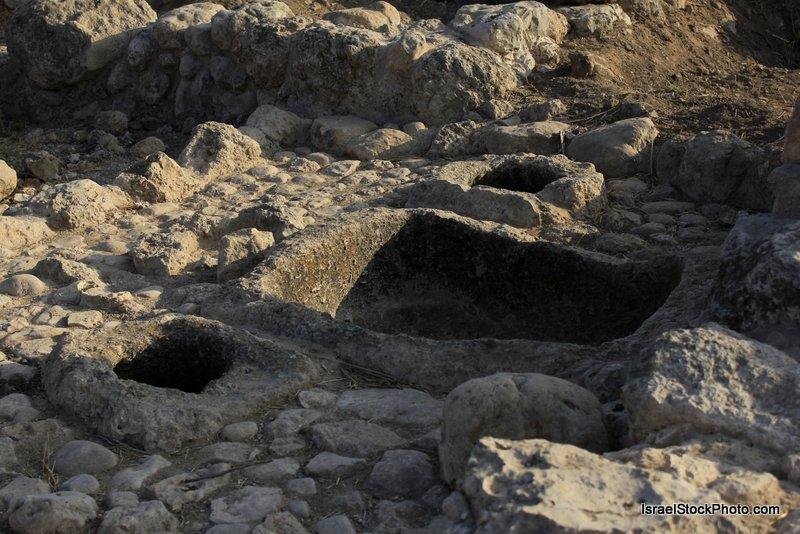
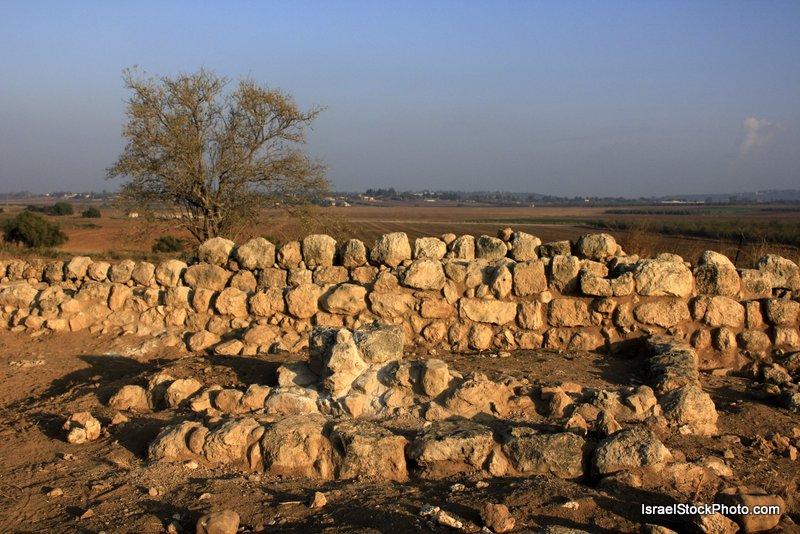
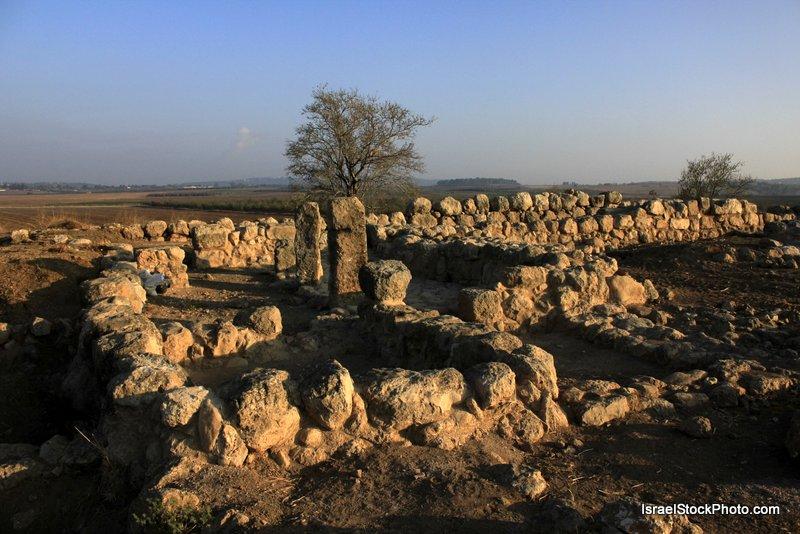
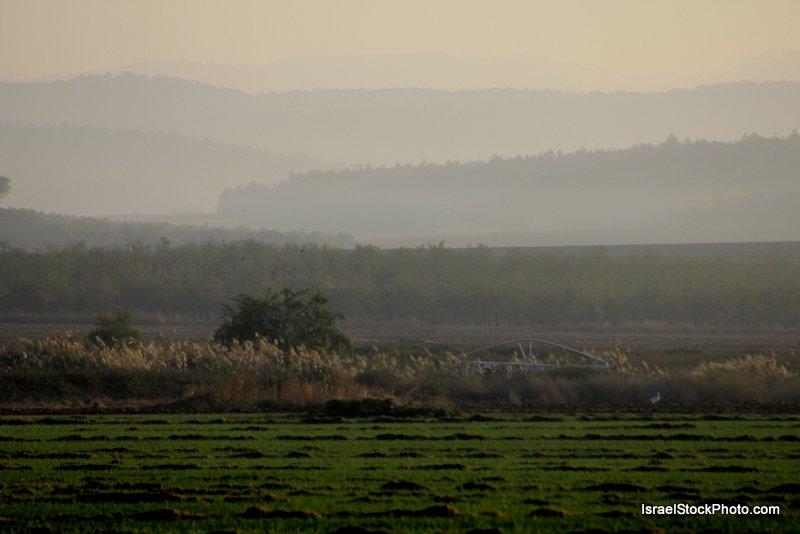
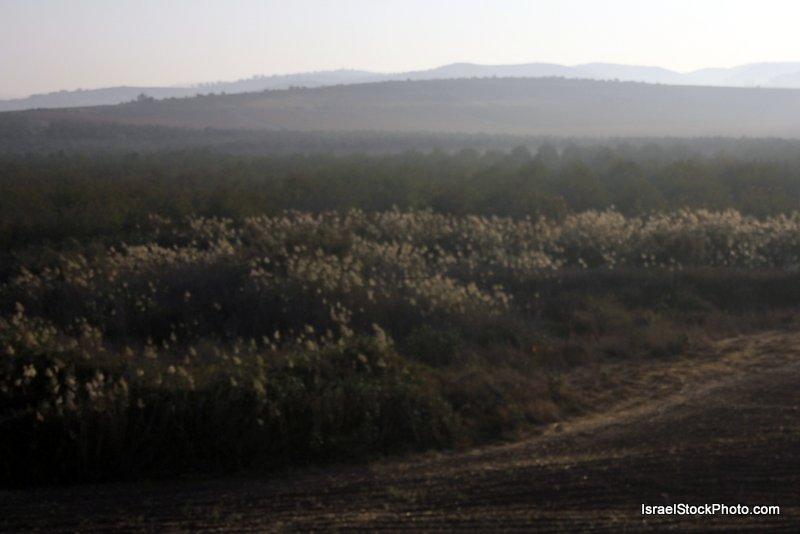
This is what Wikipedia's says regarding Timnath:
Timnath or Timnah was a Philistine city in Canaan that is mentioned in the Hebrew Bible in Judges 14. It has been identified with Tel Batash (Hebrew: תל בטש), a tel located in the Sorek Valley, near moshav Tal Shahar, Israel.
Based on verse twelve, Judah's wife was still alive after his first two sons died by the Hand of hwhy.
Looking at the word TIMNATH
The Hebrew word for Timnath is "Teem-nah"- Tav, Mem, Nun, Heh (hnmt). The Hebrew text for the word in this verse is "Teemnath" in the feminine form (tnmt). It is from Strong's Concordance number 8553, and its definition
From H4487; a portion assigned; Timnah, the name of two places in Palestine: - Timnah, Timnath, Thimnathah.
from 4487 "mahn-nah" (hnm), and its definition
A primitive root; properly to weigh out; by implication to allot or constitute officially; also to enumerate or enroll: - appoint, count, number, prepare, set, tell.
Not mentioned in the order, but there is a Hebrew word that connected with 4487, and its from 4521 "m'nath" (tnm), and its definition
From H4487; an allotment (by courtesy, law or providence): - portion.
It was most likely that Timnath means "Portion" or "Allotment", which we will see how it is applied later in this week's Torah portion.
Verses thirteen and fourteen
13 And was told (declared) to Tamar, to say, Behold, your father-in-law is ascending to Timnath to shear his flock. 14 And she removed the garments of her widowhood from upon her, and she concealed herself in a veil, and she was veilwrapped, and she sat in the entrance of Enaim which is upon the way to Timnath; for saw for Shelah was grown (greatened), and was not given of her to him for a woman (wife).
Why did Tamar dress like a prostitute? Why didn't she just confronted Judah and asked, "Why haven't you given me Shelah for a husband"? The thing is that she knew it would be impossible to do it that way, so she had a plan, which will be shown in a moment.
Looking at the word ENAIM
The Hebrew word for Enaim is "Ey-na-yeem"- Ayin, Yod, Nun, Yod, Mem Sophit (Mynye). It is from Strong's Concordance number 5879, and its defintion
Dual of H5869; double fountain; Enajim or Enam, a place in Palestine: - Enaim, openly (Gen. H38 : H21).
from 5869 "ai-yeen" (nye), and its definition
Probably a primitive word; an eye (literally or figuratively); by analogy a fountain (as the eye of the landscape): - affliction, outward appearance, + before, + think best, colour, conceit, + be content, countenance, + displease, eye ([-brow], [-d], -sight), face, + favour, fountain, furrow [from the margin], X him, + humble, knowledge, look, (+ well), X me, open (-ly), + (not) please, presence, + regard, resemblance, sight, X thee, X them, + think, X us, well, X you (-rselves).
Enaim means "Eye" and "Sight".
The name was based on the matter of the places "sight". It is ironic that Judah will see Tamar dressed as a harlot and looking at her based on her "sight", but Judah was spiritually blind in not giving his son, Shelah, to her for a husband.
Verses fifteen through nineteen
15 And Judah saw her, and reckoned (considered, presumed) her to be a harlot (an adulterer); for had concealed her face. 16 And bent away (inclined, stretched forth) to the way to her, and said, Come (Bring) now, I will go to you; for not had known for she was his daughter-in-law. And she said, What will you give to me for you will go in to me? 17 And said, I, I will send a young goat of the kids from the flock. And she said, If you will give a pledge (exchange) until you send. 18 And said, What is the pledge (exchange) which I shall give to you? And she said, Your signet ring (seal ring), and your thread bracelet, and your staff which is in your hand. And gave to her, and gone to her, and she was conceived (pregnant) by him. 19 And she arose, and she left, and she removed her veil from upon her, and she wrapped (clothed) on the garments of her widowhood.
Judah must have desperately wanted to go in to her, not realizing that she was Tamar. It is ironic that Judah will see Tamar dressed as a harlot and looking at her based on her appearance, but being "blind in the eyes" as referring to the location of the account, "Enaim", for not giving her to his son, Shelah. hwhy allowed it to happen, because Judah did not honor his word that he spoke to Tamar to wait until Shelah grew up. hwhy also allowed it to happen, because Judah was of the family, and Tamar, in a sense, was a "Leah" to him by hiding herself, in this case, by playing a harlot, as Jacob could not see that it was Leah that night until the daytime. Talk about a Labanism connection. It all runs in the family.
Also, in verse seventeen of this week's Torah portion passage, Tamar did not inquire one, nor two, but three items as collateral from Judah until he brings a kid of the goats to her. Why was Judah willing to give up that many items just to lay with Tamar who was playing the role of a harlot? What was he thinking? Was it because a kid was worth more than the three items he was giving her for collateral? To a herdsman, a kid or a sheep is very valuable in the culture of the day, more than silver or gold, because silver and gold doesn't grow and increase, but livestock do. Also, one has to factor in that a shepherd's staff was valuable item which contained markings of locations and routes containing areas that are lush where one can go to tend and feed the flocks, as well as other information and soures. The signet ring is also a seal as well as their identity ring. A thread bracelet, I am not sure.
Looking at the word PLEDGE (EXCHANGE)
The Hebrew word for pledge (exchange) is "ah-rah-vohn"- Ayin, Resh, Bet, Vav, Nun Sophit (Nwbre). It is from Strong's Concordance number 6162, and its defintion
From H6148 (in the sense of exchange); a pawn (given as security): - pledge.
from 6148 "ah-rahv" (bre), and its definition
A primitive root; to braid, that is, intermix; technically to traffic (as if by barter); also to give or be security (as a kind of exchange): - engage, (inter-) meddle (with), mingle (self), mortgage, occupy, give pledges, be (-come, put in) surety, undertake.
Notice that one of the definitions from the Hebrew word ah-rahv means "mixing" as in "mixing period" or "evening".
The real question one should ask is "What was hwhy's purpose for Judah giving these three items to Tamar? We will see as we reveal these three items later on.
Looking at the following words:
SIGNET RING (SEAL RING)
The Hebrew word for signet ring (seal ring) is "khoh-tham"- Khet, (Vav), Tav, Mem Sophit (Mtwx, Mtx). It is from Strong's Concordance number 2368, and its definition
From H2856; a signature ring: - seal, signet.
from 2856 "khah-thahm" (Mtx), and its definition
A primitive root; to close up; especially to seal: - make an end, mark, seal (up), stop.
This seal was symbolic of the seal of the Ruakh HaKodesh (the Holy Spirit). This is what the apostle Paul wrote in his letter to the assembly in Ephesus
Ephesians 4:30 And grieve not the Holy Spirit of hwhy, whereby ye are sealed unto the day of redemption.
This is one item to say that Tamar and on of her children would be "sealed" to be of the line of Yeshua.
THREAD BRACELET
The Hebrew word for thread bracelet is "pah-theel"- Peh, Tav, Yod, Lamed (lytp). It is from Strong's Concordance number 6616, and its defintion
From H6617; twine: - bound, bracelet, lace, line, ribband, thread, wire.
from 6617 "pah-thahl" (ltp), and its definition
A primitive root; to twine, that is, (literally) to struggle or (figuratively) be (morally) tortuous: - (shew self) froward, shew self unsavoury, wrestle.
This was not a typical metal bracelet, like the golden bracelets Rebekah received from Eliezer, Abraham's senior servant, which is noted in the Torah portion of Khai-yey Sarah, in the book of Genesis, which is the Hebrew "tsameed" (dymu), which guaranteed Rebekah to be betrothed to Isaac, but it was a "thread bracelet". This is the same Hebrew word used in hwhy's Commandment to Moses to make tassels, which is noted in the Torah portion Sh'lakh L'kha, in the book of Numbers
Numbers 15:37 And hwhy spoke to Moses, to say, 38 Speak to the Sons of Israel, and you shall say to them: and they shall do (make) for themselves tassels (fringes) upon the corners (wings) of their garments for their generations, and they shall give upon the tassels (fringes) of the corners (wings) a thread (lytp) of blue:
There is strong probability that this thread bracelet was "red" or "scarlet", and this scarlet thread bracelet is symbolic of the lineage of Yeshua, as compared to the example of Rahab, the harlot, who became part of the lineage of Yeshua, which is noted in the book of Joshua
Joshua 2:1 And Joshua, son of Nun, sent out of Shittim two men to spy secretly, saying, Go view the land, even Jericho. And they went, and came into an harlot's house, named Rahab, and lodged there.... 18 Behold, when we come into the land, thou shalt bind this line of scarlet thread in the window which thou didst let us down by: and thou shalt bring thy father, and thy mother, and thy brethren, and all thy father's household, home unto thee.... 21 And she said, According unto your words, so be it. And she sent them away, and they departed: and she bound the scarlet line in the window.
This shows that Tamar was guaranteed to be an ancestor of Yeshua through the possession of Judah's scarlet thread bracelet, as we will see shortly.
STAFF
The Hebrew word for staff is "maht-teh" or "maht-tah"- Mem, Tet, Heh (hjm). It is from Strong's Concordance number 4294, and its definition
From H5186; a branch (as extending); figuratively a tribe; also a rod, whether for chastising (figuratively correction), ruling (a sceptre), throwing (a lance), or walking (a staff; figuratively a support of life, for example bread): - rod, staff, tribe.
from 5186 "nah-tah" (hjn), and its definition
A primitive root; to stretch or spread out; by implication to bend away (including moral deflection); used in a great variety of applications: - + afternoon, apply, bow (down, -ing), carry aside, decline, deliver, extend, go down, be gone, incline, intend, lay, let down, offer, outstretched, overthrown, pervert, pitch, prolong, put away, shew, spread (out), stretch (forth, out), take (aside), turn (aside, away), wrest, cause to yield.
When Judah gave his staff to Tamar, this was saying that she would be guaranteed of the lineage of authority as well as the lineage of "the Shepherd" who is Yeshua, the Messiah, as He said Himself, which is noted in the Gospel of John
John 10:11 I am the Good Shepherd: the Good Shepherd giveth His Life for the sheep. 12 But he that is an hireling, and not the shepherd, whose own the sheep are not, seeth the wolf coming, and leaveth the sheep, and fleeth: and the wolf catcheth them, and scattereth the sheep. 13 The hireling fleeth, because he is an hireling, and careth not for the sheep. 14 I am the Good Shepherd, and know My Sheep, and am known of Mine. 15 As the Father knoweth Me, even so know I the Father: and I lay down My Life for the sheep. 16 And other sheep I have, which are not of this fold: them also I must bring, and they shall hear My Voice; and there shall be one fold, and One Shepherd. 17 Therefore doth My Father love Me, because I lay down My Life, that I might take it again. 18 No man taketh It from Me, but I lay It down of Myself. I have power to lay It down, and I have power to take It again. This Commandment have I received of My Father.
These three things that Judah gave Tamar were symbolic guarantees that she would be of the line of Yeshua, who is of the line of Judah, and these three things guarantee her to be Judah's wife. All I can say is "Amen, amen and amen".
Verses twenty through twenty two
20 And Judah sent ta-the young goat of the kids on the hand of his neighbor (friend), the Adullamite, to take back the pledge (exchange) from the hand of the woman: and did not find her. 21 And asked ta-the men of her place, to say, Where is the sacred prostitute she was in the Enaim upon the way? And they said, She has not a sacred prostitute in this (here). 22 And returned to Judah, and said, I have not found her; and also the men of the place, they said, She has not a sacred prostitute in this (here).
It sure sounds like Judah was duped. As Forrest Gump said in the self named movie "Stupid is, as stupid does".
Verse twenty three
23 And Judah said, she shall take for herself, lest we shall be for despisement (disrespect): behold, I sent this young goat, and you did not find her.
Judah said this, because he would have to keep his word to the pledge, but whether he realized it or not, what he said spoke volumes. When he said "...she shall take for herself", he was saying that she was guaranteed those three items. In other words, Judah was saying that "She would be of the lineage of Yeshua by the collateral of the signet ring, the scarlet thread bracelet, and the staff". Also regarding this week's Torah portion passage, when Hiram, the Adullamite, brought the kid of the goats to give to Tamar to get his three items back, she was not there. But, hwhy allowed it that way, because she was to be the one of the lineage of Yeshua, Another reason was that she was to receive "a goat", but didn't, because she was to be the lineage of "a shepherd" who tend "sheep", not of goats, who is Yeshua, the Good Shepherd, who tends sheep, and not goats.
Indirectly related, Yeshua gave a good example of the Parable of the Sheep and The Goats, where the sheep did things to Yeshua they did not know they did, wheras the goats did not, which is noted in the Gospel of Matthew
Matthew 25:31 When the Son of Man shall come in His Glory, and all the Holy Angels with him, then shall He sit upon the Throne of His Glory: 32 And before Him shall be gathered all nations: and He shall separate them one from another, as a shepherd divideth his sheep from the goats: 33 And He shall set the sheep on His Right Hand, but the goats on the Left. 34 Then shall the King say unto them on His Right Hand, Come, ye blessed of My Father, inherit the Kingdom prepared for you from the foundation of the world: 35 For I was an hungred, and ye gave Me meat: I was thirsty, and ye gave Me drink: I was a stranger, and ye took Me in: 36 Naked, and ye clothed Me: I was sick, and ye visited Me: I was in prison, and ye came unto Me. 37 Then shall the righteous answer Him, saying, Lord, when saw we Thee an hungred, and fed Thee? Or thirsty, and gave Thee drink? 38 When saw we Thee a stranger, and took Thee in? Or naked, and clothed Thee? 39 Or when saw we Thee sick, or in prison, and came unto Thee? 40 And the King shall answer and say unto them, Verily I say unto you, Inasmuch as ye have done it unto one of the least of these My brethren, ye have done it unto Me. 41 Then shall He say also unto them on the Left Hand, Depart from Me, ye cursed, into everlasting fire, prepared for the devil and his angels: 42 For I was an hungred, and ye gave Me no meat: I was thirsty, and ye gave Me no drink: 43 I was a stranger, and ye took Me not in: naked, and ye clothed Me not: sick, and in prison, and ye visited Me not. 44 Then shall they also answer Him, saying, Lord, when saw we Thee an hungred, or athirst, or a stranger, or naked, or sick, or in prison, and did not minister unto Thee? 45 Then shall He answer them, saying, Verily I say unto you, Inasmuch as ye did it not to one of the least of these, ye did it not to Me. 46 And these shall go away into everlasting punishment: but the righteous into life eternal.
In other words, Tamar was to receive sheep as well as being an ancestor of "the Shepherd" who tends to sheep.
Verse twenty four
24 And was according to [(as of)] three renewed months, and was told (declared) to Judah, to say, Tamar, your daughter-in-law, did harlotry (adultery); and also, behold, is pregnant by whoredom (adultery). And Judah said, Bring her out, and she shall be burned.
hwhy most likely based this statement by Judah to a daughter of a Levitical Priest, which is noted in the Torah portion of Emor, in the book of Leviticus
Leviticus 21:9 And if a daughter of a man of a Priest, she profanes (pollutes) herself to whore, she is profaning (polluting) ta-her father: she shall be burned up in the fire.
Judah has a surprise coming to him, which we shall see shortly.
Twenty five and twenty six
25 She was brought out, and she was sent to her father-in-law, to say, I have been conceived (pregnant) by the man which these belong to him: And she said, Discern now to whose are these: the signet ring (seal ring), and the thread bracelet, and the staff. 26 And Judah discerned, and said, Righteous of her than me [(Her righteousness than I)]; for upon thus I did not give her to Shelah, my son. And did not add still to know her.
Judah humbled himself and expressed her justness in what Tamar did, because he did not give her Shelah when he was grown up enough to be her husband. When Tamar revealed the items to him, she was saying to Judah "I am of the line of Yeshua, and you can't take that away from me". In picking up from verse twelve earlier in this week's Torah portion chapter, this also connects to the account earlier when Judah layed with Tamar in "Timnath", which means means "portion" or "allotment". When this Torah portion passage revealed that Timnah bore Judah's seed, it was saying that Tamar justly received her "portion" or "allotment" through Judah's seed in her to be part of the lineage of promise and blessing in the line of Abraham, and the future ancestor of Yeshua.
!!!hwhy Kl dbk
Verses twenty seven through thirty
27 And was in the time to her birthing, and behold, twins were in her womb. 28 And was, in her birthing, and a hand gave out: and the midwife, she took, and she tied scarlet upon his hand, to say, This came out first. 29 And was, as returning (withdrawing) his hand, and behold, his brother came out: and she said, What have you breached out (broken out) upon yourself a breach (break)? And called his name, Pharez. 30 And afterward, his brother which the scarlet was upon his hand came out: And called his name, Zarah.
As I noted earlier, the scarlet bracelet that Judah gave to Tamar for a pledge was symbolic for the lineage of Yeshua. In verse twenty eight, we see that they used a scarlet thread to say that Zarah was the firstborn. The Hebrew word "patheel" is not used, but the Hebrew word "sh'nee" meaning
scarlet" was used. It shows that Zarah has now been included to be of the lineage of Yeshua.
Looking at the following words:
PHAREZ
The Hebrew word for Pharez is "Peh-rets"- Peh, Resh, Tsade (urp). It is from Strong's Concordance number 6557, and its definition
The same as H6556; Perets, the name of two Israelites: - Perez, Pharez.
from 6556 "peh-rets" (urp), and it definition
From H6555; a break (literally or figuratively): - breach, breaking forth (in), X forth, gap.
from 6555 "pah-rats" (urp), and its definition
A primitive root; to break out (in many applications, direct and indirect, literally and figuratively): - X abroad, (make a) breach, break (away, down, -er, forth, in, up), burst out come (spread) abroad, compel, disperse, grow, increase, open, press, scatter, urge.
Pharez means "Break" or "Breech".
ZARAH
The Hebrew word for Zarah is "Zeh-rakh"- Zayin, Resh, Khet (xrz). It is from Strong's Concordance number 2226, and its definition
The same as H2225; Zerach, the name of three Israelites, also of an Idumaean and an Ethiopian prince: - Zarah, Zerah.
from 2225 "zeh-rakh" (xrz), and its definition
From H2224; a rising of light: - rising.
from 2224 "zah-rakh" (xrz) and its defintion
A primitive root; properly to irradiate (or shoot forth beams), that is, to rise (as the sun); specifically to appear (as a symptom of leprosy): - arise, rise (up), as soon as it is up.
Zarah means "Rising (of Light)".
Zerah bears the scarlet thread. Typically, one bearing a scarlet thread would mean that he was an ancestor of Yeshua, the Messiah, like Rahab, the Canaanite, hanging a scarlet thread on the wall in Jericho, saving her from the destruction of the people in the city of Jericho and becoming an ancestor to Yeshua. But Zarah was not an ancestor of Yeshua, but Pharez. But it is interesting that Zarah is noted in the genealogy of Yeshua, which is noted in the Gospel of Matthew
Matthew 1:1 The book of the generation of Yeshua Messiah, the Son of David, the Son of Abraham. 2 Abraham begat Isaac; and Isaac begat Jacob; and Jacob begat Judas and his brethren; 3 And Judas begat Phares and Zara of Thamar; and Phares begat Esrom; and Esrom begat Aram;
Why Zarah was included in the genealogy, I don't know. It is not normal for an ancestral uncle to be mentioned in the ancestral end of one's pedigree, but the fathers and mothers, other than the fact he received the scarlet thread. It has yet to be revealed. I give Don Broadhead the credit for guiding me with this realization. Thank you, Don.
CHAPTER 39
Genesis 39:1-23
Gen 39:1 And Joseph had descended (was brought down) to Egypt; and Potiphar, an officer (eunuch) of Pharaoh, Prince of the Executioners, an Egyptian (Egyptite) man, bought him from the hand of the Ishmaelim which had descended him [(brought him down)] there. 2 And hwhy was at ta-Joseph, and was a prosperous man; and was in the house of his lord (master), the Egyptian (Egyptite). 3 And his lord (master) saw for hwhy was with him, and of all (everything) which He did, hwhy was prospering in his hand. 4 And Joseph found grace (favor) in his eyes, and ministered him: and made him overseer (visitor) upon his house, and of all existed to him was given in his hand. 5 And was, from since the overseeing (visiting) of him in his house, and upon (over) of all which existed to him, and hwhy blessed ta-the house of the Egyptian (Egyptite) on the sake (circumstance) of Joseph; and the blessing of hwhy was on all which existed to him in the house and in the field. 6 And had relinquished all which belonged to him in the hand of Joseph; and did not know of him anything, for but the bread which he was eating. And Joseph was fair of form, and fair of appearance.
7 And was after these words, and the woman (wife) of his lord (master), she lifted up ta-her eyes to Joseph; and she said, Lay with me, 8 and refused. And said to the woman (wife) of his lord (master), Behold, my lord (master) does not know what is with me in the house, and of all which exists to him was given in my hand; 9 No one is greater in this house than I; and has not withheld (restrained) from me anything, for but you in which you are his woman (wife): and how can I do this great evil and I shall sin to Elohim? 10 And was, as her speaking to Joseph day at day, and did not listen to her to lay beside her, to be with her.
11 And was according to [(as)] this day, and went to the house to do his work; and a man from the men of the house was not there in the house. 12 And she caught (manipulated) him on his garment, to say, Lay with me: and relinquished (forsook) his garment in her hand, and fled, and went out to the outside. 13 And was, as saw her for had relinquished (forsook) his garment in her hand, and was fled to the outside, 14 And she called to the men of her house, and she spoke to them, to say, See, has brought a Hebrew (Hebrite) to us to mock (laugh) against us; had came to me to lay with me, and I cried in a great (loud) voice: 15 And was, as hearing him for I raised my voice and I cried, and relinquished (forsook) his garment beside me, and fled, and went out to the outside. 16 And she rested his garment beside her, until his lord (master) came to his house. 17 And she spoke to him according to [(as)] these words, to say, The Hebrew (Hebrite) servant, which you have brought to us, came to me to mock against me: 18 And was, as I raised my voice and I cried, and relinquished (forsook) his garment beside me, and fled to the outside. 19 And was, as his lord (master) was hearing ta-the words of his woman (wife), which spoke of her to him, to say, According to (As) these words your servant did to me; and his anger glowed.
20 And the lord (master) of Joseph took him, and gave him to the house of the prison (dungeon) place which the prisoners of the king were imprisoned: and was there in the house of the prison (dungeon). 21 And hwhy was at ta-Joseph, and extended (stretched out, bent out) kindness to him, and was given grace (favor) in the eyes of the Prince of the House of the Prison (Dungeon). 22 And the Prince of the House of the Prison (Dungeon) gave in the hand of Joseph ta all of the prisoners which were in the house of the prison (dungeon); and of ta all which they did there, he was doing. 23 The Prince of the House of the Prison (Dungeon) did not look at ta-any of anything in his hand; in the which hwhy was with him, and the which he was doing, hwhy was prospering.
(NOTE: Not all verses will have comments)
Verse one
1 And Joseph had descended (was brought down) to Egypt; and Potiphar, an officer (eunuch) of Pharaoh, Prince of the Executioners, an Egyptian (Egyptite) man, bought him from the hand of the Ishmaelim which had descended him [(brought him down)] there.
This is picking up where we left off from the last verse at the end of chapter thirty seven of this week's Torah portion.
Verse two
2 And hwhy was at ta-Joseph, and was a prosperous man; and was in the house of his lord (master), the Egyptian (Egyptite).
hwhy was doing the work for Joseph as one of the steps to a future event which will reveal hwhy's plan for Joseph, which will occur in the next Torah portions.
Verses three and four
3 And his lord (master) saw for hwhy was with him, and of all (everything) which He did, hwhy was prospering in his hand. 4 And Joseph found grace (favor) in his eyes, and ministered him: and made him overseer (visitor) upon his house, and of all existed to him was given in his hand.
How often does one hear or read that someone "saw" that hwhy was with somebody? King Abimelech also saw that hwhy was with Isaac in what he was doing, and he kicked him out of the area, which is noted in the Torah portion of Toldoth, in the book of Genesis
Genesis 26:26 Then Abimelech went to him from Gerar, and Ahuzzath, his companion, and Phichol, prince of his army. 27 And Isaac said to them, Why do you come to me, and you, you were hating me, and you have sent me away from with you? 28 And they said, Seeing, we have seen that hwhy is with you:...
The only way to see that hwhy was with them is through the fruition of their works and results, as in the case of Joseph. We as believers in Yeshua reveal that hwhy is with us through our faith, which the apostle Paul noted in his letter to the assembly in Rome
Romans 3:27 Where is boasting then? It is excluded. By what Torah? Of works? Nay: but by the law of faith. 28 Therefore we conclude that a man is justified by faith without the deeds of the Torah.
Joseph finding grace in the eyes of Potiphar can be compared to Noah finding grace in the eyes of hwhy, which is noted in the Torah portion of B'reyshith, in the book of Genesis
Genesis 6:8 And Noah found grace in the Eyes of hwhy.
In verse four of this week's Torah portion passage, in the Hebrew text, the Hebrew word for "exists" is "yesh" (sy). The Hebrew word "yesh" can be the shortened name for "Yeshua". This Torah portion could be phrased this way:
4 And Joseph found grace (favor) in his eyes, and ministered him: and made him overseer (visitor) upon his house, and of all Yeshua belonged to him was given in his hand.
!!!hwhy Kl dbk
Verses five and six
5 And was, from since the overseeing (visiting) of him in his house, and upon (over) of all which existed to him, and hwhy blessed ta-the house of the Egyptian (Egyptite) on the sake (circumstance) of Joseph; and the blessing of hwhy was on all which existed to him in the house and in the field. 6 And had relinquished all which belonged to him in the hand of Joseph; and did not know of him anything, for but the bread which he was eating. And Joseph was fair of form, and fair of appearance.
These are the four steps in verses two through six:
First: Verse Two: hwhy was at, or with Joseph.
Just like hwhy was with Abraham, Isaac, Jacob, Moses, Joshua, etc.
Second: Verse Three: Potiphar acknowledged hwhy, and all he did.
This could be a precursor to The First Word )Commandment) of the Ten Commandments, which is noted in the Torah portion of Va-Ethkhanan, in the book of Deuteronomy
Deuteronomy 5:6 I am hwhy, your Elohim [acknowledge hwhy], who brought you out from the land of Egypt, from the house of bondage (slavery) [acknowledge what hwhy did].
Potiphar's wife kept after Joseph to lie with her on a daily basis, but Joseph would not listen. I wished the movies would correctly portray this. Movie makers find it hard to believe that Joseph would be that pure.
Third: Verse Four: Joseph found favor in Potiphar's eyes.
Because Joseph found favor with hwhy, he also found favor with Potiphar, hence the Heavens-Earth connection. Yeshua also experienced the same favor, which is noted in Gospel of Luke
Luke 2:52 And Yeshua increased in wisdom and stature, and in favour with hwhy [Heavens] and man [Earth].
Fourth: Verse Five: Given position of high authority.
This was Potiphar's equivalent of giving Joseph a viceroyship of the whole household, except Potiphar was the owner of the estate.
Fifth: Verse Six: Relinquished his knowledge of what was happening in his household be the meal on his plate.
Joseph was blessed by hwhy what he was doing, that Potiphar never knew of the accounts of the place. This can be compared in an opposite means to a Parable, which is noted in the Gospel of Mark
Mark 12:1 And He began to speak unto them by parables. A certain man planted a vineyard, and set an hedge about it, and digged a place for the winefat, and built a tower, and let it out to husbandmen, and went into a far country. 2 And at the season he sent to the husbandmen a servant, that he might receive from the husbandmen of the fruit of the vineyard. 3 And they caught him, and beat him, and sent him away empty. 4 And again he sent unto them another servant; and at him they cast stones, and wounded him in the head, and sent him away shamefully handled. 5 And again he sent another; and him they killed, and many others; beating some, and killing some. 6 Having yet therefore one son, his wellbeloved, he sent him also last unto them, saying, They will reverence my son. 7 But those husbandmen said among themselves, This is the heir; come, let us kill him, and the inheritance shall be ours. 8 And they took him, and killed him, and cast him out of the vineyard. 9 What shall therefore the lord of the vineyard do? He will come and destroy the husbandmen, and will give the vineyard unto others. 10 And have ye not read this scripture; The stone which the builders rejected is become the head of the corner: 11 This was the Lord's doing, and it is marvellous in our eyes? 12 And they sought to lay hold on Him, but feared the People: for they knew that He had spoken the Parable against them: and they left him, and went their way.
This Parable in the Gospel is the opposite compared to what Joseph was doing.
It can happen to us as believers in Yeshua. I have had experienced some of these steps that Joseph experienced.
In verse five of this week's Torah portion passage, in the Hebrew text, the Hebrew word for "existed" is "yesh" (sy), and it is noted twice. The Hebrew word "yesh" can be the shortened name for "Yeshua". This Torah portion could be phrased this way:
5 And was, from since the overseeing (visiting) of him in his house, and upon (over) of all which Yeshua belonged to him, and hwhy blessed ta-the house of the Egyptian (Egyptite) on the sake (circumstance) of Joseph; and the blessing of hwhy was on all which Yeshua belonged to him in the house and in the field.
!!!hwhy Kl dbk
Ending, this is what the apostle Paul wrote to the assembly in Corinth
1 Corinthians 10:26 For the Earth belongs to hwhy, and the fulness thereof.
Verse seven through ten
7 And was after these words, and the woman (wife) of his lord (master), she lifted up ta-her eyes to Joseph; and she said, Lay with me, 8 and refused. And said to the woman (wife) of his lord (master), Behold, my lord (master) does not know what is with me in the house, and of all which exists to him was given in my hand; 9 No one is greater in this house than I; and has not withheld (restrained) from me anything, for but you in which you are his woman (wife): and how can I do this great evil and I shall sin to Elohim? 10 And was, as her speaking to Joseph day at day, and did not listen to her to lay beside her, to be with her.
The only other person that was not in Joseph's control was Potiphar's wife, and she knew that Joseph had full charge of the whole estate. This was Joseph's thorn in the flesh, and it was a test to him, not just one day but on a daily basis. This could be compared to the apostle Paul's thorn in the flesh, which he wrote in his letter to the assembly in Corinth
2 Corinthians 12:7 And lest I should be exalted above measure through the abundance of the revelations, there was given to me a thorn in the flesh, the messenger of Satan to buffet me, lest I should be exalted above measure. 8 For this thing I besought the Lord thrice, that it might depart from me. 9 And He said unto me, My Grace is sufficient for thee: for My Strength is made perfect in weakness. Most gladly therefore will I rather glory in my infirmities, that the power of Messiah may rest upon me. 10 Therefore I take pleasure in infirmities, in reproaches, in necessities, in persecutions, in distresses for Messiah's Sake: for when I am weak, then am I strong.
This is what HaSatan does to us believers in Yeshua by attacking us daily in our walk with Yeshua by putting a thorn in our flesh. How would you like to be tormented day by day to be seduced by a household owner's spouse? This was Joseph's test.
Also, hasn't Joseph learned his lesson yet by blabbing to others what Joseph knows? Why did he blabbed this to Potiphar's wife? It is like giving your enemy top secret information and provide information they should not know (sounds like current politicians today). She most likely capitalized on this information by saying to herself that her husband does not know what goes on in the house, so I will keep pursuing Joseph until he gives in.
In verse eight of this week's Torah portion passage, in the Hebrew text, the Hebrew word for "belongs" is "yesh" (sy). The Hebrew word "yesh" can be the shortened name for "Yeshua". This Torah portion could be phrased this way:
8 and refused. And said to the woman (wife) of his lord (master), Behold, my lord (master) does not know what is with me in the house, and of all which Yeshua belongs to him was given in my hand;
!!!hwhy Kl dbk
Verses eleven and twelve
11 And was according to [(as)] this day, and went to the house to do his work; and a man from the men of the house was not there in the house. 12 And she caught (manipulated) him on his garment, to say, Lay with me: and relinquished (forsook) his garment in her hand, and fled, and went out to the outside.
To me, there was no question that Potiphar's wife had something to do with keeping the servants away outside of the home without Joseph's knowledge, so she hoped that Joseph would give in to her seduction with nobody around. When she grabbed her, she held onto his garment, and Joseph had no other choice but to flee to the outside without the garment. The apostle Paul confirms this act, which he noted in his letter to the assembly in Corinth
1 Corinthinas 6:18 Flee fornication. Every sin that a man doeth is without the body; but he that committeth fornication sinneth against his own body.
But as Joseph fled, he lost his garment of authority, just like before, when Joseph's brothers removed his long robe of authority from him in Dothan in chapter thirty seven of this week's Torah portion, which would be an act that he would not be working in that place anymore, as we will see shortly.
Verse thirteen
13 And was, as saw her for had relinquished (forsook) his garment in her hand, and was fled to the outside,
Potiphar's wife was caught in a pickle, for she knew she failed to get Joseph to give in, but she had Joseph's garment, and she had to think of something quick in case someone she was asked to why she was holding Joseph's garment of authority.
Verses fourteen and fifteen
14 And she called to the men of her house, and she spoke to them, to say, See, has brought a Hebrew (Hebrite) to us to mock (laugh) against us; had came to me to lay with me, and I cried in a great (loud) voice: 15 And was, as hearing him for I raised my voice and I cried, and relinquished (forsook) his garment beside me, and fled, and went out to the outside.
OK. She made up a lie against Joseph to the servants. Now we will see what she says to her husband when he returns home.
Verses sixteen through eighteen
16 And she rested his garment beside her, until his lord (master) came to his house. 17 And she spoke to him according to [(as)] these words, to say, The Hebrew (Hebrite) servant, which you have brought to us, came to me to mock against me: 18 And was, as I raised my voice and I cried, and relinquished (forsook) his garment beside me, and fled to the outside.
Comparing the two statements Potiphar's wife said to her servants and to Potiphar, there is one part of the statement she did not stated to Potiphar that she said to her servants, which is in verses fourteen and fifteen
14 And she called to the men of her house, and she spoke to them, to say, See, has brought a Hebrew (Hebrite) to us to mock (laugh) against us; had came to me to lay with me, and I cried in a great (loud) voice: 15 And was, as hearing him for I raised my voice and I cried, and relinquished (forsook) his garment beside me, and fled, and went out to the outside.
Why did she not say this part to Potiphar in verse fourteen that Joseph wanted to lie with her when she told this part to the men of her house? Did she knew that Potiphar would not believe her? Was she afraid that Potiphar would kill Joseph, because such a crime would result in death? It is also possible that hwhy kept her from saying it, because He knew that this was part of Potiphar's wife's statement to the servant would hinder hwhy's bigger picture in His plan for Joseph's life and purpose, though Joseph did not felt it that way at the moment.
Also, Potiphar's wife was a liar, and a liar does one thing... lie, and that means that she can lie against her own words by adding "or deleting", which she deleted the part that Joseph wanted to lie with her in speaking to her husband. This can be compared to when Khavah (Eve) added words that hwhy did not tell Adam in her response to the serpent at the Tree of the Knowledge of Good and Evil, which is noted in the Torah portion of B'reyshith, in the book of Genesis.
Genesis 2:16 And hwhy Elohim commanded upon the Adam, to say, From every tree of the Garden, eating, you shall eat, 17 and from the Tree of the Knowledge of Good and the Evil you shall not eat of him, for in the day of your eating from him, dying, you shall die.... 3:2 And the woman, she said to the serpent, From the Fruit of the Trees of the Garden we may eat: 3 and from the Fruit of the Tree which is in the midst of the Garden, Elohim said, You shall not eat him, and you shall not touch on him, lest you die.
As hwhy commanded Moses to say to the Israeli People, which is noted in the Torah portion of Va-Ethkhanan, in the book of Deuteronomy
Deuteronomy 4:2 You shall not add upon the Word which I am commanding you, and you shall not diminish (remove, scrape off) from him, to keep ta-the Commandments of hwhy, your Elohim, which I am commanding you.
But a liar, like Potiphar's wife, can add or delete words in which not one story is the same.
Verse nineteen
19 And was, as his lord (master) was hearing ta-the words of his woman (wife), which spoke of her to him, to say, According to (As) these words your servant did to me; and his anger glowed.
There are multiple possibilities why Potiphar was angry:
One: Potiphar was upset that his wife made such a claim that would affect the success of his home, and cannot back out of it and blames her for ruining it. Since she was his wife, he would know enough that she is a schemer.
Two: Potiphar was Chief of the Executioners. He could have executed Joseph. Potiphar must have known that Joseph would not do such a thing. So he did not kill him, and put him into prison as a means to keep him safe.
Third: Potiphar took what his wife said at face value and was wroth against Joseph. I strongly doubt that this was the case.
Also, in a way, Potiphar's wife could have been saying to her husband what Abraham said to Sarah regarding Hagar in which Joseph was his servant, and he can do to him as he wished.
Also, this is the second time Joseph lost a part of his garment. The first time was in chapter thirty seven in this week's Torah portion when his brothers removed his long coat. This time he lost his garment of authority when escaping from Potiphar's wife. This was hwhy plan to have him removed of Joseph office through the removal of the garments of his office. Because hwhy wastaking him to another stage, or step, in his life.
Also Potiphar could have been a "eunich", and could have been impotent. If this is so, this could have been the reason Potiphar's wife wanted "sexual attention", and pursued Joseph.
!!!hwhy Kl dbk
Verse twenty
20 And the lord (master) of Joseph took him, and gave him to the house of the prison (dungeon) place which the prisoners of the king were imprisoned: and was there in the house of the prison (dungeon).
Notice that after Joseph lost his garment of high office in Potiphar's home that he was taken to the lowest state to be a prisoner.
The temptation of Joseph from Potiphar's wife would have resulted to getting him into trouble whether he gave in to it, or if he fled from it, because Potiphar's wife was a liar, and as I said above, a liar can lie against herself. But hwhy allowed it, because it was Joseph's time to go through the next phase in his life, terrible as it looks.
As I mentioned in the commentary in chapter thirty nine of this week's Torah portion, that Potiphar's name could potentially mean "Contempt Violation". When Potiphar's wife lied against Joseph to her husband, Potiphar, Potiphar had Joseph in "contempt violation".
In estimation, we can guess that Joseph was roughly twenty four years old, give or take when he was put in prison.
If this is correct, we can look to the year and the age of Joseph's ancestors when he was about twenty four years old
| YEAR OF MAN WHEN JOSEPH WAS ABOUT 24 YEARS OLD | NAME OF JOSEPH'S RELATIVE | AGE OF JOSEPH'S RELATIVES WHEN JOSEPH WAS ABOUT 24 YEARS OLD | AGE OF DEATH OF JOSEPH'S RELATIVE |
| 2223 YEARS OF MANKIND | Isaac | 175 years old | 180 years old |
| 2223 YEARS OF MANKIND | Jacob | 115 years old | 147 years old |
| 2223 YEARS OF MANKIND | Esau | 115 years old | (unknown) |
| 2223 YEARS OF MANKIND | Reuben | about 31 years old | (unknown) |
| 2223 YEARS OF MANKIND | Simeon | about 30 years old | (unknown) |
| 2223 YEARS OF MANKIND | Levi | about 30 years old | 137 years old |
| 2223 YEARS OF MANKIND | Judah | about 29 years old | (unknown) |
| 2223 YEARS OF MANKIND | Dan | about 29 years old | (unknown) |
| 2223 YEARS OF MANKIND | Naphtali | about 28 years old | (unknown) |
| 2223 YEARS OF MANKIND | Gad | about 28 years old | (unknown) |
| 2223 YEARS OF MANKIND | Asher | about 27 years old | (unknown) |
| 2223 YEARS OF MANKIND | Issachar | about 27 years old | (unknown) |
| 2223 YEARS OF MANKIND | Zebulun | about 26 years old | (unknown) |
| 2223 YEARS OF MANKIND | Dinah | about 26 years old | (unknown) |
| 2223 YEARS OF MANKIND | Benjamin | about 15 or 17 years old | (unknown) |
Compare it to Mark Biltz's chart
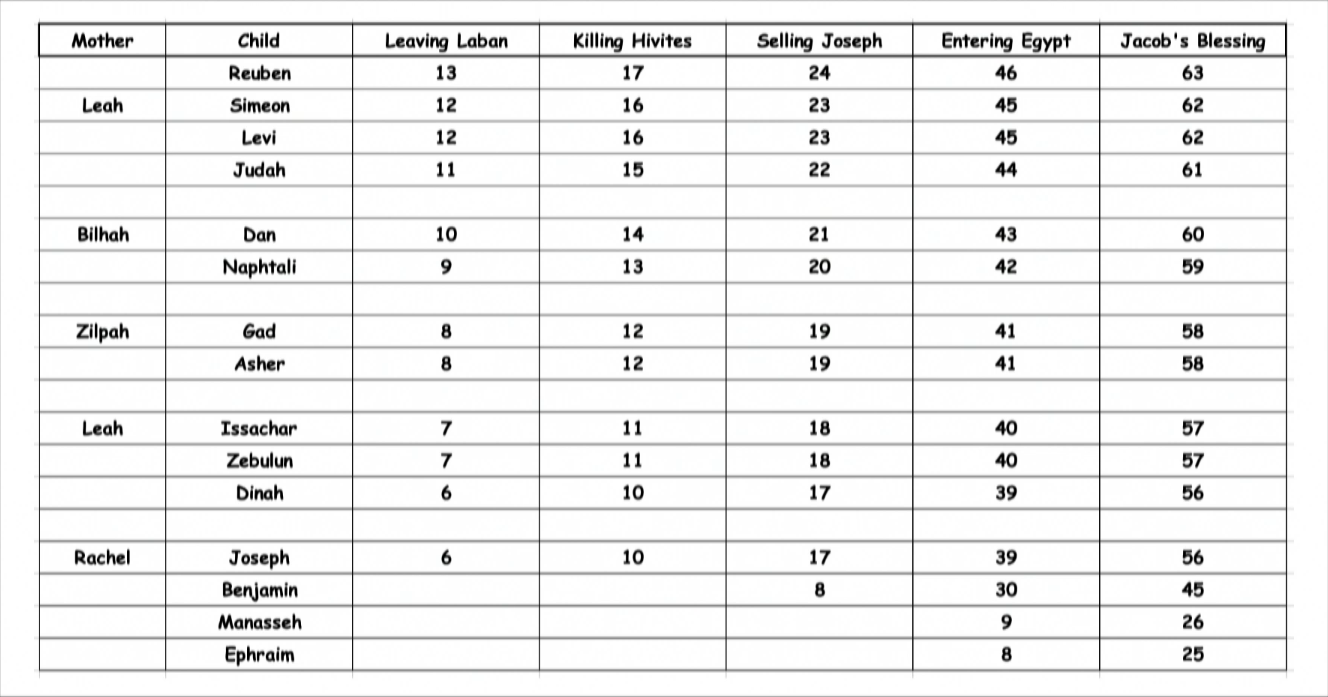
If this is the correct age of Joseph during this week's Torah portion passage, if the time line is correct, this would take it to about 1777 BC.
By the time that Joseph was twenty four years old, according to Wikipedia, based on the time line, two kings who ruled in Egypt at this year. One of them was Khaankhre Sobekhotep who ruled from 1780-1777 BC, of the Thirteenth Dynasty, in the Second Intermediate Period.
This is what Wikipedia says regarding Khaankhre Sobekhotep:
"Khaankhre Sobekhotep (now believed to be Sobekhotep II; known as Sobekhotep I in older studies) was an pharaoh of the Thirteenth Dynasty of Egypt during the Second Intermediate Period. According to egyptologists Kim Ryholt and Darrell Baker, Khaankhre Sobekhotep was the 13th pharaoh of the dynasty and had a short reign ca. 1735 BC. Alternatively, Jürgen von Beckerath sees him as the 16th pharaoh of the dynasty.
Sobekhotep appears in the Karnak king list as Khaankhre. A name Sobek[hote]pre is also given on column 6, line 15 of the Turin canon, which could be Sobekhotep I. However this identification is not certain and Sobekhotep I's chronological position within the 13th Dynasty is debated. Contemporary attestations of Sobekhotep comprise reliefs coming from a chapel which once stood in Abydos and a fragment of inscribed column. Furthermore, the name Khaankhre Sobekhotep appears in an inscription on a granite statue pedestal once in the Amherst collection and, since 1982, in the British Museum (exhibit BM 69497). His reign was most likely short, amounting to three to four-and-a-half years
Ryholt mentions that Sobekhotep I may be identical with Sobekhotep II, who is only mentioned as Sobekhotep in the Turin King List. Others, like Dodson, consider Khaankhre Sobekhotep II and Sekhemre Khutawy Sobekhotep I to be two different rulers from the 13th Dynasty, while Bierbrier lists Khaankhre Sobekhotep I and Sekhemre Khutawy Sobekhotep II. Recently Simon Connor and Julien Siesse investigated the style of the king's monument and argue that he reigned much later than previously thought (after Sobekhotep IV - who would become Sobekhotep III).".
These are the only images referring to Khaankhre Sobekhotep.
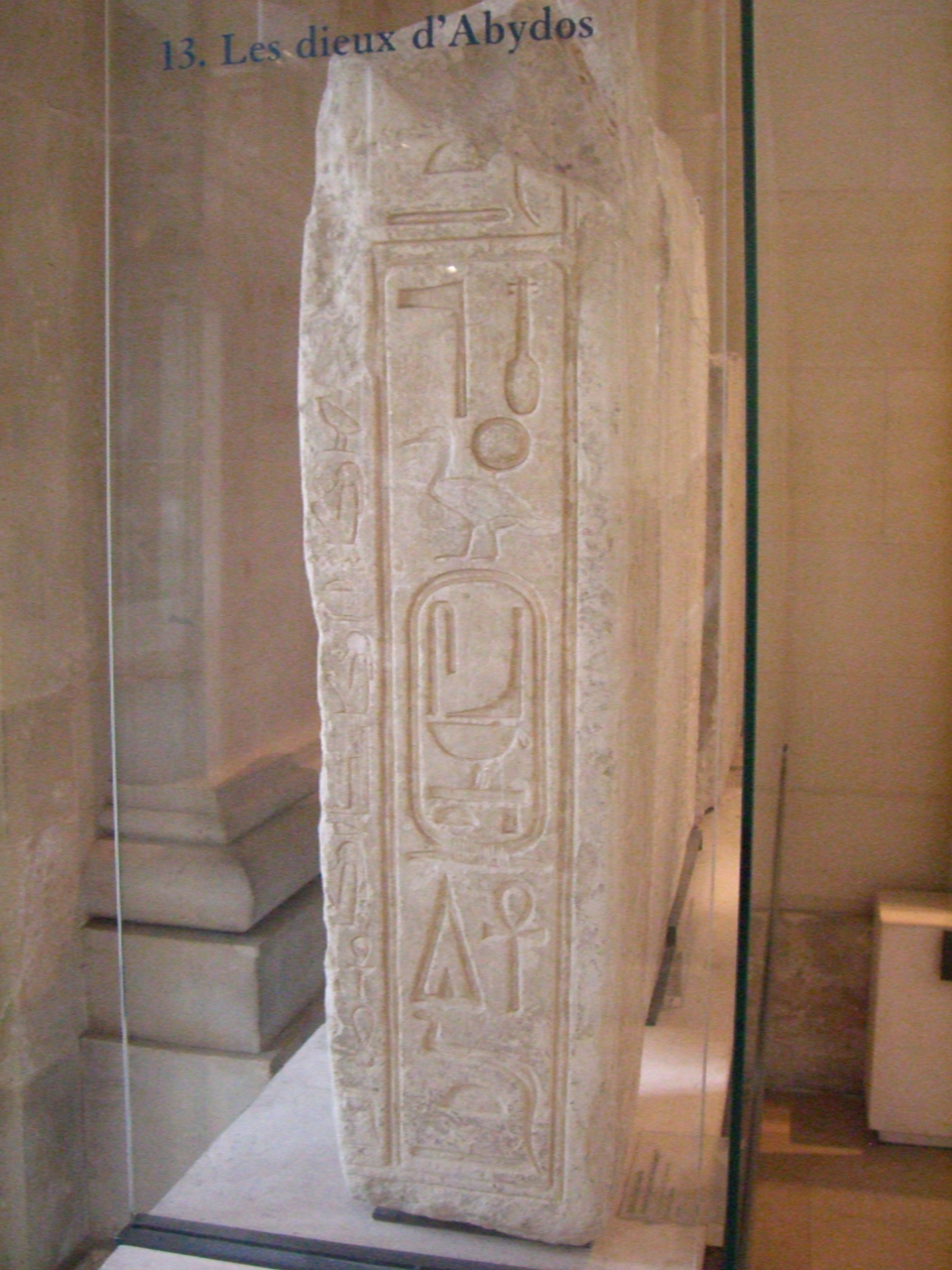
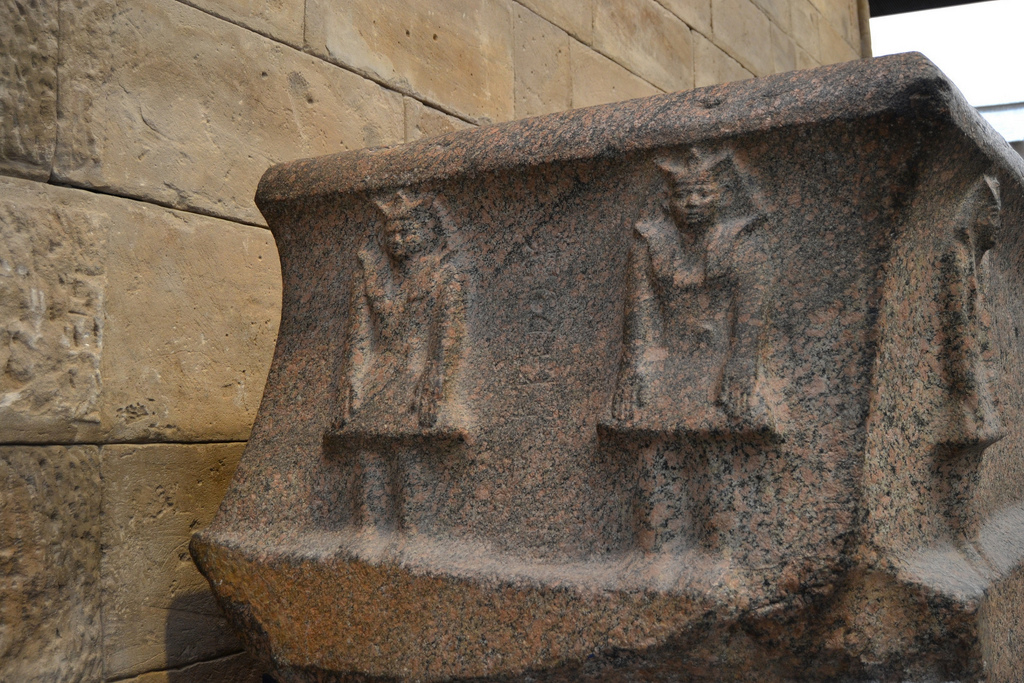
Another king who ruled in Egypt by the time that Joseph was twenty four years old, and according to Wikipedia, based on the time line, he was Ya'ammu Nubwoserre who ruled from 1780-1770 BC of the Fourteenth Dynasty, in the Second Intermediate Period. This is what Wikipedia says regarding Ya'ammu Nubwoserre:
"Nubwoserre Ya'ammu (also rendered as Ya'amu, Jamu and Jaam) was a ruler during the Second Intermediate Period of Egypt.
This Asiatic-blooded ruler is traditionally placed in the 16th Dynasty, an hypothesis still in use nowadays by scholars such as Jürgen von Beckerath; although recently Kim Ryholt proposed him as the second ruler of the 14th Dynasty.
This ruler seems to have made little use of the cartouche — which was a pharaonic prerogative — since it was used only for the throne name, Nubwoserre, though not always. His personal name never appears inside a cartouche, and is simply reported as "the son of Ra, Ya'ammu".
Similar to his suggested predecessor Yakbim Sekhaenre, there is no direct evidence that Ya'ammu's throne name was Nubwoserre: the association is based on stylistic features of the seals and was proposed by William Ayres Ward and later elaborated by Ryholt; Daphna Ben-Tor disputed this identification, pointing out that the seals of the many rulers living during this period are too similar to make such correlations on the basis of mere design features. The Turin King List can not help with this issue since the ruler does not appear on it, likely due to a lacuna.
Assuming that Ward and Ryholt were right, Nubwoserre Ya'ammu is attested by 26 rather crude scarab seals (more precisely, 19 naming Nubwoserre and 7 naming Ya'ammu); based on that, Ryholt estimated for him a reign length of around 10 years, in the interval 1780-1770 BCE. However, about the events of his reign absolutely nothing is known.
Israeli Egyptologist Raphael Giveon identifies Ya'ammu with his proposed predecessor Yakbim".
These are the only images pertaining to Ya'ammu Nubwoserre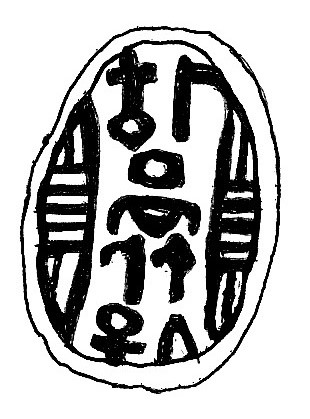
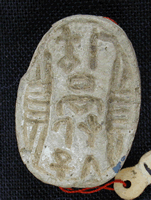
Verses twenty-one through twenty three
21 And hwhy was at ta-Joseph, and extended (stretched out, bent out) kindness to him, and was given grace (favor) in the eyes of the Prince of the House of the Prison (Dungeon). 22 And the Prince of the House of the Prison (Dungeon) gave in the hand of Joseph ta all of the prisoners which were in the house of the prison (dungeon); and of ta all which they did there, he was doing. 23 The Prince of the House of the Prison (Dungeon) did not look at ta-any of anything in his hand; in the which hwhy was with him, and the which he was doing, hwhy was prospering.
Is it possible that the Keeper of the House of the Prison was Potiphar, because he simply gave Joseph to run the place? One has never heard of a keeper of the house of the prison giving a prisoner the charge over the prison like that. It is strongly probable that it was also Potiphar, or Potiphar informed the Keeper of the House of the Prison to how Joseph prospered his estate, or it was hwhy doing it through Joseph. It was most likely hwhy that did it.
We as believers in Yeshua go through this state in life as well by being removed of a high status to be brought so low, even if we were innocent. If, or when, we go through it, we can say that hwhy is with us throughout our walk with Him through both thick and thin.
In Joseph case, hwhy prospered him wherever he was, especially in this case, the prison.
CHAPTER 40
Genesis 40:1-23
Gen 40:1 And was, after these words, the cup bearer and the baker of the king of Egypt, they had sinned to their lord (master), to the king of Egypt. 2 And Pharaoh was wroth upon two of his eunuchs (officers), upon the Prince of the Cup Bearers, and upon the Prince of the Bakers. 3 And gave them in guarding (keeping, observing, watching) in the House of the Prince of the Executioners, to the house of the prison (dungeon), the place which Joseph was imprisoned there. 4 And the Prince of the Executioners made ta-Joseph overseer (visitor) with them, and ministered them: and they were days in guarding (keeping, observing, watching).
5 And they calm-dreamed a calm-dream, both of them, a man of his calm-dream in one night, a man according to the interpretation (translation) of his dream, the cup bearer and the baker which belonged to the king of Egypt, which were imprisoned in the house of the prison (dungeon). 6 And Joseph came to them in the breaking period (morning), and looked at them, and behold, they were fretting (sad). 7 And asked ta-the eunuch (officer) of Pharaoh which was with him in guarding (keeping, observing, watching) of the house of his lord (master), to say, Why are your faces evil today (the day)? 8 And they said to him, We have calm-dreamed a calm-dream, and no one can interpret (translate) him. And Joseph said to them, That not the interpretations (translations) belong to Elohim? Account (Enumerate, Enroll, Scroll) now to me.
9 And the Prince of the Cup Bearers accounted (enumerated, enrolled, scrolled) ta-his calm-dream to Joseph, and said to him, Was in my calm-dream, and behold, a vine was to my face; 10 And in the vine were three branches (intwinings): and she was as budding, her blossoms (flowers) ascended her; her clusters, they were ripened of grapes: 11 And the cup of Pharaoh was in my hand: and I took ta-the grapes, and I squeezed (pressed, tread) them to the cup of Pharaoh, and I gave ta-the cup upon the palm of Pharaoh. 12 And Joseph said to him, This is His Interpretation (Translation): The three branches (intwinings), they are three days: 13 In still (yet) three days Pharaoh will lift up ta-your head, and you will return upon your station: and you will give the cup of Pharaoh in his hand according to [(as)] the first custom which you were his cup bearer. 14 For but remember me with you as the which shall be good (well) to you, and you do now kindness with me, and make remembrance of me to Pharaoh, and bring me out from this house: 15 For stolen, I was stolen from the land of the Hebrews (Hebrim): and here also, I have not done anything for they would put me in the bore-pit.
16 And the Prince of the Bakers saw the interpretation for goodness, and said to Joseph, Even (Also) I was in my calm-dream, and behold, three baskets of coriander bread were upon my head: 17 And in the ascended (highest) basket from all from the the food of Pharaoh was the doing (work) of a baker; and the birds (flyers) were eating them from the basket, from upon my head. 18 And Joseph answered and said, This is His Interpretation (Translation): The three baskets, they are three days: 19 In still (yet) three days Pharaoh will lift up ta-your head from upon you, and shall hang you upon a tree; and the birds (flyers) shall eat ta-your flesh from upon you.
20 And was, on the third day, the day of the birth of ta-Pharaoh, and did (made) a banquet for all of his servants: and lifted up ta-the head of the Prince of the Cup Bearers and ta-the head of the Prince of the Bakers in the midst of his servants. 21 And returned ta-the Prince of the Cup Bearers to his cup bearership; and gave the cup upon the palm of Pharaoh: 22 And hanged ta the Prince of the Bakers: as the which Joseph had interpreted (translated) to them. 23 And the Prince of the Cup Bearers did not remember ta-Joseph, and had forgotten him.
(NOTE: Not all verses will have comments)
Verses one through four
1 And was, after these words, the cup bearer and the baker of the king of Egypt, they had sinned to their lord (master), to the king of Egypt. 2 And Pharaoh was wroth upon two of his eunuchs (officers), upon the Prince of the Cup Bearers, and upon the Prince of the Bakers. 3 And gave them in guarding (keeping, observing, watching) in the House of the Prince of the Executioners, to the house of the prison (dungeon), the place which Joseph was imprisoned there. 4 And the Prince of the Executioners made ta-Joseph overseer (visitor) with them, and ministered them: and they were days in guarding (keeping, observing, watching).
Isn't it unusual to have two high positioned people thrown into the same prison house that Joseph was residing?
Verse five through eight
5 And they calm-dreamed a calm-dream, both of them, a man of his calm-dream in one night, a man according to the interpretation (translation) of his dream, the cup bearer and the baker which belonged to the king of Egypt, which were imprisoned in the house of the prison (dungeon). 6 And Joseph came to them in the breaking period (morning), and looked at them, and behold, they were fretting (sad). 7 And asked ta-the eunuch (officer) of Pharaoh which was with him in guarding (keeping, observing, watching) of the house of his lord (master), to say, Why are your faces evil today (the day)? 8 And they said to him, We have calm-dreamed a calm-dream, and no one can interpret (translate) him. And Joseph said to them, That not the interpretations (translations) belong to Elohim? Account (Enumerate, Enroll, Scroll) now to me.
hwhy allowed the two chiefs to dream in the same night, so that Joseph can be used by hwhy to interpret their dreams.
Verses nine through thirteen
THE CHIEF OF THE CUP BEARER'S DREAM
9 And the Prince of the Cup Bearers accounted (enumerated, enrolled, scrolled) ta-his calm-dream to Joseph, and said to him, Was in my calm-dream, and behold, a vine was to my face; 10 And in the vine were three branches (intwinings): and she was as budding, her blossoms (flowers) ascended her; her clusters, they were ripened of grapes: 11 And the cup of Pharaoh was in my hand: and I took ta-the grapes, and I squeezed (pressed, tread) them to the cup of Pharaoh, and I gave ta-the cup upon the palm of Pharaoh. 12 And Joseph said to him, This is His Interpretation (Translation): The three branches (intwinings), they are three days: 13 In still (yet) three days Pharaoh will lift up ta-your head, and you will return upon your station: and you will give the cup of Pharaoh in his hand according to [(as)] the first custom which you were his cup bearer.
hwhy is allowing the Chief Cup Bearer to be restored in three days, but look at what Joseph says in the next verses
Verses fourteen and fifteen
14 For but remember me with you as the which shall be good (well) to you, and you do now kindness with me, and make remembrance of me to Pharaoh, and bring me out from this house: 15 For stolen, I was stolen from the land of the Hebrews (Hebrim): and here also, I have not done anything for they would put me in the bore-pit.
Why did he tell the Chief Cup Bearer to remember him and told him that he was stolen from his land, and on top of that, that he was innocent of the incident of Potiphar's wife? Since they were of the royal court, and Potiphar was of the royal court, they would have heard of the accusation against Joseph regarding Potiphar's wife. The court would have also heard about Joseph's accomplishments at Potiphar's estate, because Potiphar would have told those around his office, and word would have spread as far as Pharaoh himself, which meant that both the Chief Cup Bearer and the Chief Baker would have heard about Joseph on both positive and negative accounts.
Notice in verse fourteen that the word "you" is bold in pink. In the Hebrew text, you is in the feminine gender. This means that Joseph was speaking to the Chief Cup Bearer's "soul" to remember Joseph when meeting Pharaoh to state Joseph's side of the story and get him out of prison. This can also apply to us as believers in Yeshua when we ask someone to help us defend our cause or case, but they forget, or it doesn't happen, because we are looking to the flesh of men instead of looking to our Heavenly Father to defend our cause.
Verses sixteen through nineteen
THE CHIEF OF THE BAKERS DREAM
16 And the Prince of the Bakers saw the interpretation for goodness, and said to Joseph, Even (Also) I was in my calm-dream, and behold, three baskets of coriander bread were upon my head: 17 And in the ascended (highest) basket from all from the the food of Pharaoh was the doing (work) of a baker; and the birds (flyers) were eating them from the basket, from upon my head. 18 And Joseph answered and said, This is His Interpretation (Translation): The three baskets, they are three days: 19 In still (yet) three days Pharaoh will lift up ta-your head from upon you, and shall hang you upon a tree; and the birds (flyers) shall eat ta-your flesh from upon you.
hwhy was saying to Joseph that the Chief of the Bakers will die.
Verses twenty through twenty two
PHARAOH'S BIRTHDAY PARTY
20 And was, on the third day, the day of the birth of ta-Pharaoh, and did (made) a banquet for all of his servants: and lifted up ta-the head of the Prince of the Cup Bearers and ta-the head of the Prince of the Bakers in the midst of his servants. 21 And returned ta-the Prince of the Cup Bearers to his cup bearership; and gave the cup upon the palm of Pharaoh: 22 And hanged ta the Prince of the Bakers: as the which Joseph had interpreted (translated) to them.
The three days later of Pharaoh's birthday was symbolized and the Baker died as predicted by Joseph, because he was a worker of the bread, which is symbolized by the flesh which represents death. Whereas the chief cup bearer was restored, which is symbolized by the blood which represents life.
There were symbols in Pharaoh's birthday event, and it relates to the end times:
PHARAOH
The Pharaoh was a type and shadow of Yeshua, the King of kings and Lord of lords. This will be clearer later.
THREE DAYS
Next, the three days could be symbolized for three thousand years. As the apostle Peter wrote in his epistle
2 Peter 3:8 But, beloved, be not ignorant of this one thing, that one day is with hwhy as a thousand years, and a thousand years as one day.
If we take it three thousand years after the resurrection of Yeshua, it would take it to the seventh millenium. This what the prophet Hosea noted in his book
Hosea 6:2 Shall keep us alive two days [two thousand years]: shall ascend us on the third day [three thousandth year], and we shall live to His Face.
PHARAOH'S BIRTHDAY
In my strongest of opinions, Pharaoh's birthday was the same day as Yeshua's birthday, which was on the first day of Sukkoth.
Also, it is theory that this could the day that Yeshua will judge the peoples, both believers and non-believers alike.
THE CHIEF OF THE CUP BEARERS
The Chief of the Cup Bearers is symbolized by those who do the work of the Kingdom through the blood of Messiah, who have the Ruakh HaKodesh (the Holy Spirit), and who are written in the Lamb's Book of Life, and are covered in Yeshua's "Blood"- the symbol of the grapes. The fact that this chief was spared of his life and was restored to his position, symbolized that we as believers who are covered in the Blood of Yeshua the Messiah, will be spared from eternal death.
THE CHIEF OF THE BAKERS
The Chief of the Bakers who bakes bread is symbolized by the flesh, and those who are of the world do the works of the flesh. When the three days have passed, coming to Pharaoh's birthday, the Chief of the Bakers' flesh was hanged on a tree, and that flesh is cursed, Moses said this to the Israelites, which is noted in the Torah portion of Ki Theystey, in the book of Deuteronomy
Deuteronomy 21:22 And if shall be against a man a sin of judgment (ordinance) of death, and will die [(shall be put to death)], and you shall hang him upon a tree: 23 You shall not have stay (leave) his carcass (flabby carcass) upon the tree, for burying, you shall bury in that day; for is a despisement (accursed) of Elohim of a hanging; and you shall not defile (make unclean) ta-your ground which hwhy, your Elohim, is giving to you of an inheritance.
As the apostle Paul wrote in his letter to the assembly in Galatia
Galatians 3:13 Messiah hath redeemed us from the curse of the Torah, being made a curse for us: for it is written, Cursed is every one that hangeth on a tree:
The Chief of the Bakers, who was hanged three days later, was also symbolized by those who did not accept Yeshua and walked after their flesh and in the three thousandth year, and the non-believers, who do not have the blood of Yeshua, will go into eternal darkness, which is noted in the Gospel of Matthew
Matthew 8:11 And I say unto you, That many shall come from the east and west, and shall sit down with Abraham, and Isaac, and Jacob, in the Kingdom of Heaven. 12 But the children of the kingdom shall be cast out into outer darkness: there shall be weeping and gnashing of teeth.
Matthew 22:12 And he saith unto him, Friend, how camest thou in hither not having a wedding garment? And he was speechless. 13 Then said the king to the servants, Bind him hand and foot, and take him away, and cast him into outer darkness; there shall be weeping and gnashing of teeth.
Matthew 25:30 And cast ye the unprofitable servant into outer darkness: there shall be weeping and gnashing of teeth.
and will go into the Eternal Lake of Fire, which is noted in the apostle John's book of Revelation
Revelation 20:14 And death and hell were cast into the lake of fire. This is the second death.
Revelation 21:8 But the fearful, and unbelieving, and the abominable, and murderers, and whoremongers, and sorcerers, and idolaters, and all liars, shall have their part in the lake which burneth with fire and brimstone: which is the second death.
The Chief of the Bakers who was executed on a tree was also symbolic of Yeshua's flesh who was crucified on a tree. Also, our flesh, or body, is to be crucified in Messiah, as the apostle Paul wrote in his letter to the assembly in Galatia
Galatians 2:20 I am crucified with Messiah: nevertheless I live; yet not I, but Messiah liveth in me: and the life which I now live in the flesh I live by the faith of the Son of Elohim, who loved me, and gave Himself for me.
YESHUA SYMBOLIZED IN THE TWO CHIEFS
When Yeshua took part of the Passover meal with His disciples by breaking the bread and drinking the cup, which are noted in the Gospels of Matthew and Luke
Matthew 26:26 And as they were eating, Yeshua took bread, and blessed it, and brake it, and gave it to the disciples, and said, Take, eat; this is My Body. 27 And He took the cup, and gave thanks, and gave it to them, saying, Drink ye all of it; 28 For this is My Blood of the New Covenant, which is shed for many for the remission of sins. 29 But I say unto you, I will not drink henceforth of this fruit of the vine, until that day when I drink it new with you in my Father's Kingdom. 30 And when they had sung an hymn, they went out into the mount of Olives.
Luke 22:13 And they went, and found as He had said unto them: and they made ready the Passover. 14 And when the hour was come, He sat down, and the twelve apostles with Him. 15 And He said unto them, With desire I have desired to eat this Passover with you before I suffer: 16 For I say unto you, I will not any more eat thereof, until it be fulfilled in the Kingdom of hwhy.... 19 And He took bread, and gave thanks, and brake it, and gave unto them, saying, This is My Body which is given for you: this do in remembrance of Me. 20 Likewise also the cup after supper, saying, This cup is the New Covenant in My Blood, which is shed for you.
These were symbols of Yeshua's Body (Chief of the Bakers) and Yeshua's Blood (Chief of the Cup Bearers). When Yeshua died on the cross, His Flesh was hanged on a tree and died, but His Blood is Eternal Life and gives Eternal Life to those who want to receive it and submit to it, as well as covers our sins.
This account of the two chiefs could be based on the Parable of the Ten Virgins, which is noted in the Gospel of Matthew
Matthew 25:1 Then shall the Kingdom of Heaven be likened unto ten virgins, which took their lamps, and went forth to meet the bridegroom. 2 And five of them were wise, and five were foolish. 3 They that were foolish took their lamps, and took no oil with them: 4 But the wise took oil in their vessels with their lamps. 5 While the bridegroom tarried, they all slumbered and slept. 6 And at midnight there was a cry made, Behold, the bridegroom cometh; go ye out to meet him. 7 Then all those virgins arose, and trimmed their lamps. 8 And the foolish said unto the wise, Give us of your oil; for our lamps are gone out. 9 But the wise answered, saying, Not so; lest there be not enough for us and you: but go ye rather to them that sell, and buy for yourselves. 10 And while they went to buy, the bridegroom came; and they that were ready went in with him to the marriage: and the door was shut. 11 Afterward came also the other virgins, saying, Lord, Lord, open to us. 12 But he answered and said, Verily I say unto you, I know you not. 13 Watch therefore, for ye know neither the day nor the hour wherein the Son of man cometh.
This parable relates to the time of the Biblical Fall High Holy Days of Yom Teruah, Yom Kippur and Sukkoth. In verses ten through twelve, is the time of Sukkoth, and those who have the oil- a symbol of the Ruakh HaKodesh (the Holy Spirit), get to be with the Bridegroom- Yeshua. Whereas the ones who did not have the Ruakh HaKodesh (the Holy Spirit) in the time appointed, did not get to be with the Bridegroom. In other words, the wise virgins would be equivalent to having the Blood of Messiah, while the foolish virgins were walking after the flesh. You can find my teaching "The Parable of the Ten Virgins" by clicking on the link below to get to the webpage.
THE PARABLE OF THE TEN VIRGINS
Verse twenty three
23 And the Prince of the Cup Bearers did not remember ta-Joseph, and had forgotten him.
Joseph must have felt abandoned when he did not hear from anyone responding to his case that he told to the Chief of the Cup Bearers. I think we as believers can identify with Joseph. We at one point have told someone to hear our cases, or situations, or circumstances, in our lives, but have never heard from them since. But don't worry, hope is coming around the corner. Have faith.
Based on the torah portion of Mikeyts, in the book of Genesis, Joseph was thirty years old when the Chief Cup Bearer confronted Pharaoh regarding Joseph interpreting his dream, which he noted was two years prior. This would put Joseph at twenty eight years old when he interpreted both the chiefs' dreams.
This is a chart the shows the year and the age of Joseph's relatives when he was twenty eight years old
| YEAR OF MAN WHEN JOSEPH WAS 28 YEARS OLD | NAME OF JOSEPH'S RELATIVE | AGE OF JACOB'S RELATIVES WHEN JOSEPH WAS 28 YEARS OLD | AGE OF DEATH OF JOSEPH'S RELATIVES |
| 2226 YEARS OF MANKIND | Isaac | 179 years old | 180 years old |
| 2226 YEARS OF MANKIND | Jacob | 119 years old | 147 years old |
| 2226 YEARS OF MANKIND | Esau | 119 years old | (unknown) |
| 2226 YEARS OF MANKIND | Reuben | about 35 years old | (unknown) |
| 2226 YEARS OF MANKIND | Simeon | about 34 years old | (unknown) |
| 2226 YEARS OF MANKIND | Levi | about 34 years old | 137 years old |
| 2226 YEARS OF MANKIND | Judah | about 33 years old | (unknown) |
| 2226 YEARS OF MANKIND | Dan | about 32 years old | (unknown) |
| 2226 YEARS OF MANKIND | Naphtali | about 32 years old | (unknown) |
| 2226 YEARS OF MANKIND | Gad | about 31 years old | (unknown) |
| 2226 YEARS OF MANKIND | Asher | about 31 years old | (unknown) |
| 2226 YEARS OF MANKIND | Issachar | about 30 years old | (unknown) |
| 2226 YEARS OF MANKIND | Zebulun | about 30 years old | (unknown) |
| 2226 YEARS OF MANKIND | Dinah | about 29 years old | (unknown) |
| 2226 YEARS OF MANKIND | Benjamin | about 19 or 21 years old | (unknown) |
If the time line is correct, this would take us to about 1774 BC.
By the time that Joseph was twenty eight years old, according to Wikipedia, based on the time line, Two Pharaohs ruled in Egypt. One of them was Sekhemrekhutawy Khabaw who ruled from 1775-1772 BC of the Thirteenth Dynasty, in the Second Intermediate Period.
This is what Wikipedia says regarding Sekhemrekhutawy Khabaw:
"Sekhemrekhutawy Khabaw was an Egyptian pharaoh of the early 13th dynasty during the Second Intermediate Period. According to the egyptologist Kim Ryholt, he was the sixteenth king of the dynasty, reigning for 3 years, from 1775 BC until 1772 BC. Thomas Schneider, on the other hand, places his reign from 1752 BC until 1746 BC. Alternatively, Jürgen von Beckerath sees him as the third king of the dynasty. As a ruler of the early 13th Dynasty, Khabaw would have ruled from Memphis to Aswan and possibly over the western Nile Delta".
These are the only images pertaining to Sekhemrekhutawy Khabaw
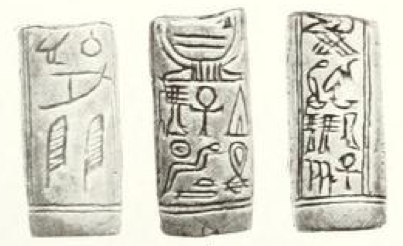

The other pharaoh who ruled in Egypt during this time line was Ya'ammu Nubwoserre who ruled from 1780-1770 BC of the Fourteenth Dynasty, in the Second Intermediate Period, which was noted earlier.
Keep this matter in mind as this will be picked up in next week's Torah portion.
That ends this week's Torah portion commentary.
Any questions or comments can be written to
the.aleph-tav.project@msn.com
SHABBATH SHALOM

__________________________________________________________________________________________________________________________________________________________________________________________
__________________________________________________________________________________________________________________________________________________________________________________________
Copyright 2014 The Aleph-Tav Project - NVU's Website Design Software by The Premier Group